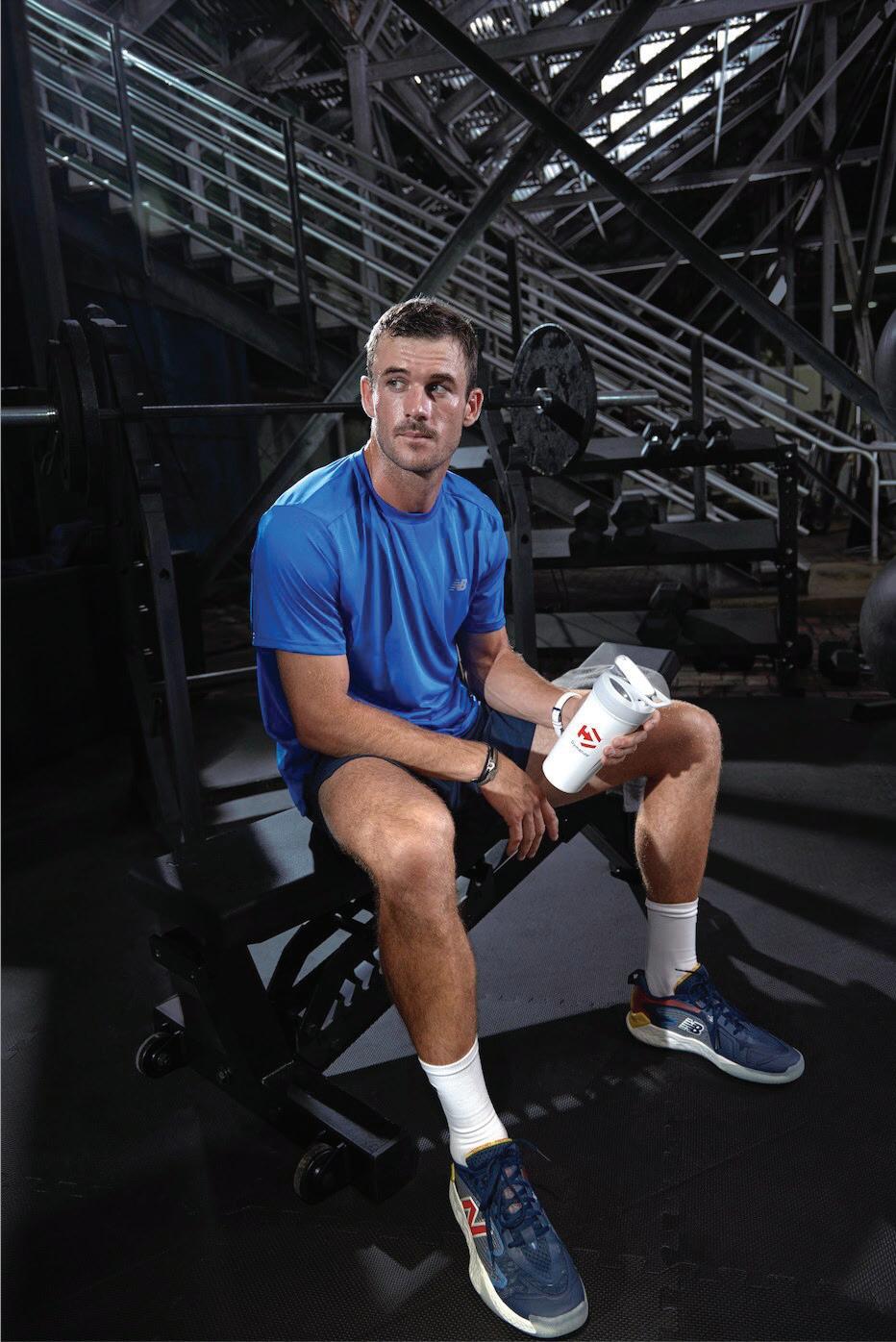Sweet Dreams
Coffee Makers Seek to Balance Flavor & Function

Best of 2024 Awards p. 34
Flavor & Ingredient 2025
Preview p. 40
Tracking Trends in Spirits p. 56








By Jeffrey Klineman

Coffee Makers Seek to Balance Flavor & Function

Best of 2024 Awards p. 34
Flavor & Ingredient 2025
Preview p. 40
Tracking Trends in Spirits p. 56








By Jeffrey Klineman
As I write this, we’re almost through with Dry January and not since I sleep-trained my last kid have I ever been this ready for something to be over. It’s not because I’ve been enduring a stretch of sobriety made all the more painful by my inability to put booze between me and the current jackassery coming out of Washington – there’s no way I’d have gone into the new administration without some emergency brown liquor – but because I’m getting bored to death of the one-size-fits-all marketing approach that this annual fad has unleased.
If I get one more mocktail recipe, or receive one-more midJanuary pitch for a story on the latest alcohol-free spirit based on a Dry January news peg, I’m going to use them to fire the still long enough to make Molotov Cocktails for the entire brand communications industry.
It’s time for a new approach, kids. Dry January might be catching on, but aside from wreaking havoc on the beverage alcohol side of the business, it’s doing more for the PR agencies of the world than it is the brands they represent. We need a year-long approach to selling the adult non-alcoholic (ANA category), not a pit stop.
The fact is, this monthly paean to preening self-affirmation has caused as much delusion around its ability to ignite a business as chugging a bottle of Night Train. With so much innovation coming out of the NA category, it’s weird that we have a product set whose core marketing initiative is based around one Dry month per year.
For as much momentum as the NA category has – and you’ll read plenty about its effects on everything from the mixer business to the spirits category to Gerry Khermouch’s own drinking habits in this issue – it can’t simply use Dry January as its Pumpkin Spice moment. These product types aren’t wired to have NA as a flavor-based LTO – they need to be enduring brands whose utility isn’t as a try-me-I’m-not-so-bad crutch to help you get through to February.
Of course, you’d think that the hype wouldn’t be necessary. The consumer intent is there – we all want to drink less, of course, but we need it to be an interesting experience, one that
gets us somewhere in place of the booze, or that offers a flavor or textural experience that makes for a premium experience. Sell us on the food friendliness, the positive feelings, the killer design. Don’t just exert peer pressure around a fad.
So far, the idea that Americans might be drinking less hasn’t been enough to float an entire category. Last year, according to Nielsen, retail sales of NA products hit $823 million in the U.S. And that’s including the relative behemoth that is Athletic Brewing. By way of comparison: Last year, Ocean Spray sold more than $1 billion in cranberry juice cocktails alone. I’d argue that while a lot of that Ocean Spray was used for Cape Codders, an equal amount was mixed with club soda for an NA treat.
Yes, the Adult NA category is expected to hit about $5 billion by 2028, and yes, there are some wonderful stories like Athletic Brewing and Ritual. Those are brands which have long since left the idea of Dry January behind. A while back I wrote about why the NA beer occasion feels much more compelling than the spirits occasion, but if you really believe in the concept, why just look to January (or “Sobertober” as your backup plan). NA substitutes can’t just look to one month a year to build awareness, because they’re competing with hundreds of refreshment beverages whose reason for being isn’t just that they don’t have booze in them.
And there’s a much larger market out there in the American consumers who want to drink less over the course of the year – and those who aren’t going to drink at all.
According to a recent survey by NCS Consumer, 30% of Americans tried Dry January this year. That might seem like an impressive bump until you consider that the same survey revealed that about 25% of adult Americans don’t drink.
Now, you’d be justified in complaining that those numbers don’t tell the whole story. You’d probably be right. But at the same time, Dry January isn’t telling the whole story either – and if you can’t tell it the other 11 months of the year, chances are you’re going to need a lot more relief than what they’re selling in the Sober Bar down the block.


By

I’d been procrastinating for far too long: it was time to clean up the old credenza. Knowing it would be a quiet day, I went in to do it on MLK Jr. day. But like many a credenza-cleaning publisher, the enterprise took me elsewhere. No, not Narnia (although I’d love to know what’s really in Turkish Delight) but down memory lane.
Early in my career in beverage publishing, a mentor showed me a system to keep track of my accounts. Remember, I’m 76, and I started working on this stuff way before anyone would deploy computers. I know: as with credenza ownership, that’s just something most of you cannot relate to. It was a simple system: a 5”x8” card for every company I would work with. I would have the vitals – name, address, phone number, assistant’s name, birthdays, suit size, really anything. I would write notes of our interaction, pricing, which issues vexed the client, and other important stats. I still use the system today. People have ridiculed me for years, but I stand by my cards.
I kept every one of the accounts, and now have a record of 32 years of work (give or take some long lunches). At this stage it’s a pretty formidable stack of cards, well over 1500. I separate them into companies that have advertised with me, and those that have not: The stack of advertisers was greater than the non-advertisers, which was surprising to me. Over the years I’ve
had about 950 companies that have run with me. Going through the piles brought back incredible memories. Once I saw the name, I actually remembered the person, the brand and the circumstances of our working together. Yes, I’ve been blessed with a terrific memory.
As we’re all well aware, the failure rate in beverages is 80-85%, so most of them are no longer in existence, but they were still vivid. This trip down Memory Lane was becoming exhilarating!
Each card brought back a time and place in the industry’s time line. Categories were exploding, with new brands at every turn. The growing stack chronicled the evolution of beverages. There were so many cycles of products. Early on, I dealt with the presidents and CEOs of the companies, the legends of the beverage universe. The personalities were larger than life. Today’s climate isn’t the same. One of my pet peeves is that most people don’t even put their phone numbers on their cards or in their email signatures. That’s sad. How can I call them to discuss selling my old credenza? It’s nice and clean.
The industry has evolved so much over the years. Through my cards I was a witness to a special kind of history: beverage history. The 32 years have flown by. I can recount them, card by card.
www.bevnet.com/magazine
Barry J. Nathanson Publisher bnathanson@bevnet.com
Jeffrey Klineman Editor-in-Chief jklineman@bevnet.com
Martín Caballero Managing Editor mcaballero@bevnet.com
Ray Latif Contributing Editor rlatif@bevnet.com
Brad Avery Reporter bavery@bevnet.com
Justin Kendall Editor, Brewbound jkendall@bevnet.com
Monica Watrous Managing Editor, Nosh mwatrous@bevnet.com
Adrianne DeLuca Assistant Managing Editor, Newsletters adeluca@bevnet.com
Sales
John McKenna Director of Sales jmckenna@bevnet.com
Adam Stern Senior Account Specialist astern@bevnet.com
John Fischer Senior Account Executive jfischer@bevnet.com
Jon Landis Business Development Manager jlandis@bevnet.com
Art & Production
Aaron Willette Design Manager
Nathan Brescia Director of Photography
BevNET.com, Inc.
John F. (Jack) Craven Chairman
John Craven CEO / Founder / Editorial Director jcraven@bevnet.com
Headquarters
65 Chapel Street Newton, MA 02458 617-231-8800
Publisher’s Office
1120 Ave. of the Americas, Fourth Floor New York, NY 10036 646-619-1180
Subscriptions
For fastest service, please visit: www.bevnet.com/magazine/subscribe email: magazinesupport@bevnet.com


By Gerry Khermouch

Often on a Sunday evening I head down to a country-style Irish bar off the Bowery called The Scratcher that features a couple of acoustic music acts performing in what’s supposed to temporarily be an attentive “listening room” setting. Many weeks I’ve never heard of either act but, given the talent pool in New York, I’m almost never disappointed. And you can’t beat the price: no cover, just a tip bucket for the musicians.
But here’s the catch: the owner, who’s offering such a nice amenity, makes no money unless we keep drinking. True, they pour an excellent pint of the very sessionable Guinness Stout. But even we imbibers sometimes approach our limits. Enter Athletic Beer, which these days seems to be on every table in the joint.
That may, or may not, have been a consumption occasion that the earlier developers of alcohol-alternatives envisioned when they threw their hat into the ring. But we’re all learning that the occasions where these beverages fill a need are vast. Certainly, it’s not just alcohol abstainers: all indications are that the vast majority of alc-alternative drinkers continue to consume alcohol – “zebra striping” between alcohol and NAs, as the Brits say these days. That proliferation of occasions encourages me to believe that this alc-alternative segment isn’t just a fad but something that may have legs. (Another unlock in my own un-stylish lifestyle: going to Flannery’s to watch Tottenham Hotspur soccer games from England at 9 in the morning. Now there are options beyond alcohol in the morning or bad coffee.)
Of course, there are probably too many entrants already. Hundreds of them, and more materializing every week. Ya gotta love capitalism! But the experimentation is fascinating. The NA beers just keep getting better and better. As my wife often points out at the Scratcher, after toggling between Founders All Day IPA and Athletic through a couple of cycles, you kind of forget that the beer in your hand might be non-alcoholic. It tastes great and keeps the party going. What more do you need? Even more fascinating is what’s going on outside of fake beer. You have beverage geniuses trying to
replicate such challenging segments as red wine and Scotch whisky (so far with so-so results, to my palate) and others trying to create entirely new recipes that are nurse-able (is that a word?), complex and maybe offer some kind of sensation to replace the one we get from alcohol. I have my money on some of those, like Kin, because they’re putting themselves into an apples-and-oranges comparison rather than being judged on how closely they replicate some established alcohol category.
You may have heard all this before, from more convincing voices than mine. But there are a couple of aspects of these brands that I want to highlight here. For one, they are intriguing but most don’t make overt, and potentially overstated, functional claims, which I feel has been a slippery slope for many other categories of non-alcoholic beverages. As I’ve pointed out before in this column, some segments may start with the promise of a true functional benefit but seem inevitably, in the course of going broader, to start dumbing down the very attributes that make them more unique, migrating from a specific functional positioning to a more “lifestyle-y” vibe. We’ve seen that with brands like Bai and Essentia Water, and some of the gut pops may now be making that migration. So they develop decent-sized businesses but it’s disheartening to recognize that they’re no longer moving the ball forward on health and wellness in a very meaningful way.
By contrast, alcohol-alternatives for the most part avoid that trap, targeting sheer flavor and enjoyment, and offering a way to balance or omit consumption of an ingredient, alcohol, that should be consumed in moderate amounts. (And no, I don’t buy the Surgeon General’s report that alcohol should never be consumed at all.)
The other point I want to make relates to distribution. Readers of this column will know that I view the beer distribution networks as crucial for the incubation of new nonalcoholic beverages and am constantly wishing they would give this segment the focus and resources it deserves, to their own financial benefit. Too often, though, they only pay lip
service to this part of their portfolio, in part because of the flight risk of these brands but also because of misaligned incentives as well as sheer institutional inertia.
Yet you could not come up with a more close-in category adjacency to alcohol than this segment. It serves the same sets of occasions, in the same on- and off-premise settings, often closely mimicking beer, wine, whiskey or canned cocktails. (Even more so than those Delta-9 THC drinks I covered in a recent column, and without the regulatory risk.) Might this finally be the NA category that fully gets their attention?
Of course, their core suppliers are assuring them, as usual, ‘don’t worry, we’ve got this covered.’ On the beer side, nonalc extensions from Guinness and Heineken are doing well. But as often happens in newer categories, the independents have a fair amount of momentum, most of all Athletic. On the wine and spirits side, it’s more up for grabs, though major players like Diageo and Pernod Ricard are wheeling and dealing to get promising brands into their orbit.
For the entrepreneurs involved, the potential exits are a model of clarity: those same alcoholic beverage giants to whose products they’re offering an alternative. (“Disrupting,” if you must.) Because these are so close an adjacency, I like to think there’s less post-acquisition execution risk, as these drinks slot right into the muscle memory of sales and marketing people who flog Bud Light or Tito’s or Jameson. Looking through the lens of consumption occasions had
me flashing back to an episode some years back when bicycle advocates like me were invited to participate in the initial planning sessions (called “charrettes”) for New York’s bike share program, Citi Bike. They sat us at big round tables with large city maps on which we were to suggest where the bicycle docks should be located. But before we got started, the Department of Transportation people asked us to take a moment to think of occasions when folks would actually want to take a series of short bike rides, for a master list they were compiling. My hand shot up. “Beer-biking!” I said. I was referring to brewery outings by my neighborhood homebrew club where, if the beers were particularly delicious, it would be nice not to have to ride our own bikes home over the 59 Street Bridge, which always seemed steeper on the way back. “Brilliant!” the DOT guy at my table exclaimed. Then he thought about it a moment and said, “I can’t write that down. The city can’t be encouraging alcohol consumption on our bikes.” Well, Citi Bikes duly arrived in 2013 and have been a great boon to our city. And now there’s another answer to that quandary. Switch to some delicious NAs to keep the party going! Back then, who knew?
Longtime beverage-watcher Gerry Khermouch is executive editor of Beverage Business Insights, a twice-weekly e-newsletter covering the nonalcoholic beverage sector.


Anheuser-Busch is still gunning for a share of the energy drink segment, announcing on January 15 a new partnership with sports nutrition business 1st Phorm to launch a RTD energy line.
According to a press release, Ultimate Fighting Championship (UFC) CEO Dana White will be included in the partnership. White and UFC previously entered a multi-year marketing partnership with AB which involves branded integration between the companies.
“1st Phorm brings over 20 years of category experience and deep relationships in the sports nutrition industry and fitness community,” said 1st Phorm CEO Sal Frisella in the release. “By combining our strengths with Anheuser-Busch’s experience in beverage innovation and scale, we look forward to creating a new wave of energy and other beverages.”
“Building on our commitment to consistently deliver quality and innovation, Anheuser-Busch is excited to partner with 1st Phorm, a company and brand that shares our vision and passion for creating products that meet the evolving needs of consumers,” said AB CEO Brendan Whitworth. “This brings together two American manufacturers with proud St. Louis roots and complementary expertise.”
Founded in 2009, 1st Phorm produces a variety of nutrition supplements and powder mixes, and currently makes a line of zero sugar, functional RTD energy drinks available in six flavors.
A representative for AB confirmed that the partnership will involve a new energy drink line, and is not related to 1st Phorm’s existing RTD portfolio. The forthcoming product is expected to launch by the summer.
The announcement is the first signal that AB is still interested in carving out a stake for itself in the non-alc energy drink sector, following the $990 million acquisition of Ghost Lifestyle – in which AB was a minority stakeholder and distributor – by Keurig Dr Pepper in October.
Finding a consistent foothold in energy has been a longtime goal for the business; in 2017 AB acquired Hiball Inc. for an undisclosed sum, but the brand struggled in the market post-acquisition and was officially discontinued in 2023. Energy drinks and other NA offerings have become increasingly important to AB-affiliated distributors in recent years, with brands ranging from giants Monster and Bang to newer entries like yerba mater brand CLEAN Cause spending time on distributors’ trucks. 1st Phorm was founded around 2009 in Missouri by entrepreneurs Sal and Andy Frisella. Andy Frisella is the founder of several brands and previously reported earning over $100 million in sales across his business ventures, but he also recently courted controversy.
Spindrift Beverage Company announced in January that it had reached an agreement for San Francisco-based private investment group Gryphon Investors to acquire a majority stake in the sparkling water brand, and is tapping experienced CPG executive Dave Burwick as its new CEO.
The deal, expected to be closed sometime in Q1 of this year, will see Spindrift founder and current CEO Bill Creelman retain a “significant equity stake” in the company while shifting into a new role as chairman of the board.
Creelman will be joined on the board by Ryan Fagan, managing director at Gryphon, as well as Gryphon partners Matt Farron and Mike Ferry.
Founded in 2010, Massachusettsbased Spindrift hit its stride after early experiments in craft soda evolved into its flagship product: sparkling water blended with fresh squeezed fruit juice, a concept that proved a hit with consumers and retailers seeking a differentiated product within the saturated category. Over the 52-week period ended December 28, 2024, Spindrift dollar sales totaled over $275 million while volume increased 22%, according to Goldman Sachs analysis of NielsenIQ data. The brand has also dabbled in innovation, including Spindrift Spiked hard seltzer.
A Wall Street Journal story in December indicated that a deal with Gryphon Investors could be valued above $650 million.
“I’m incredibly proud of what we’ve built at Spindrift over the past 15 years,” said Creelman in a press release. “For this next stage of growth, we looked for two things: a leader who could understand our business and the brand as natively as the people who work here today and an investment partner with the right financial and operational resources to galvanize our market leadership.
“I have known and respected Dave for nearly a decade, and with his experience and Gryphon Investors’ expertise, I’m

confident that we will continue to have tremendous success in growing the brand and inspiring consumers to choose beverages that are based on the belief that the best tastes come directly from nature.”
In tapping Burwick, Spindrift is bringing in deep executive experience with large CPG brands. In addition to two decades at PepsiCo, Burwick has served as president and CEO of both The Boston Beer Company and Peet’s Coffee, as well as president, North America at Weight Watchers. During his tenure at Boston Beer, which concluded last February, he helped develop Truly Hard seltzer into a billion-dollar brand.
“I’m excited to join this dynamic team,” said Burwick. “Spindrift’s combination of talented professionals, superior products, and loyal customers has created a fantastic brand with a great future — one I can’t wait to be a part of.”
Gryphon Investors’ portfolio includes CPG brands like Dessert Holdings and Eight O’Clock Coffee, as well as investments in other industries.
“Spindrift has a strong, beloved brand and differentiated product portfolio because it’s made with exceptional thought and care,” said Fagan. “This attention to quality underlies the company’s outsized share of growth across beverage categories — nearly tripling in size since 2020 — and it’s what attracted us to invest in the business. We are thrilled to be partnering with both Bill and Dave, as well as the entire Spindrift team.”
Morgan Stanley & Co. LLC and Lazard acted as financial advisors to Gryphon. Simpson Thacher & Bartlett LLP and Morgan, Lewis & Bockius LLP acted as legal advisors to Spindrift. Piper Sandler and JP Morgan acted as financial advisors to Spindrift.


The Food and Drug Administration (FDA) announced in midJanuary it has banned the use of Red Dye 3 (Red No. 3) in food and beverage due to its potential to cause cancer.
The FDA has revoked the authorization to use the synthetic dye using a 1958 provision, the Delaney Clause, prohibiting the use of any carcinogenic food additives from the Food, Drug and Cosmetic Act.
Food makers using the synthetic dye have two years to reformulate their products, according to the FDA, and imported food will also need to comply with the directive by that time. Common foods that use the synthetic coloring are candy, cakes and cupcakes, cookies, frozen desserts, and frostings and icings.
The FDA did concede that Red No. 3 is “not as widely used in food and drugs when compared to other certified colors,” but the food coloring has been shown in studies to cause cancer in male rats.
The dye has already been banned almost completely in Europe, Australia and New Zealand.
The news was initially teased in a Biden White House Fact Sheet yesterday, explaining the administration’s food system investments. Similar rumors had surfaced in December during a U.S. Senate health committee meeting. At the time, FDA deputy commissioner for human foods Jim Jones said that a petition calling for a Red Dye 3 ban was being reviewed by the authorization board.
Various industry groups have applauded the decision, with the Environmental Working Group (EWG) calling it a “monumental victory.”
Ready-to-eat meal purveyor Proper Good, Inc. announced on Jan. 13 that it closed a $3.5 million funding round in the fourth quarter of 2024, backed by internal investors. The capital infusion will help fuel brick-and-mortar growth and increase household penetration.
“We’re absolutely thrilled to have the incredible backing of our investors as we deepen our retail partnerships. This support empowers us to bring an even wider variety of delicious, easy meals to Walmart shelves in 2025,” said Christopher Jane, co-founder and CEO, in a press release.
Launched by Jane and his sister Jennifer in 2020, the Austin, Texas-based company produces a portfolio of simple-ingredient, single-serving meals, ranging from oats to soups to pastas. In 2021, Proper Good secured a $400,000 investment for 20% equity from entrepreneur Mark Cuban during an appearance on “Shark Tank.”
“For years, Red 3 remained in food products, despite growing evidence linking it to health problems, particularly in kids,” said EWG president and co-founder Ken Cook in a statement. “This ban sends a strong message that protecting the health of Americans – especially vulnerable children –must always take priority over the narrow interests of the food industry.”
Food safety advocate and co-founder of Yuka Julie Chapon said the rule was “about time.”
“The FDA’s decision is a step forward, but we must continue to push for stronger regulations – dozens of risky additives are still allowed in the U.S.,” she said.
The National Confectioners Association (NCA) had a more tempered response to the decision, saying that “the conversation around state-level proposals that seek to ban certain FDA-approved food additives has been filled with myths pushed by unqualified voices and lacking facts.”
The trade group’s public statement went on to note that Indiana, Maryland, South Dakota, Washington and West Virginia had all rejected laws that would ban certain food additives because the “proposals lack scientific basis.”
“We are in firm agreement that science-based evaluation of food additives is needed – and we follow and will continue to follow regulatory guidance from the authorities in this space, because consumer safety is our chief responsibility and priority,” said NCA president and CEO John Downs. “Usurping FDA’s authority does nothing but create a stateby-state patchwork of inconsistent state requirements that increase food costs, create confusion around food safety, and erode consumer confidence in our food supply.”
The direct-to-consumer brand expanded into brick-and-mortar retail in 2022 with a rollout to over 2,000 Walmart stores nationwide. Today, Proper Good has 19 items across three categories in 2,500 Walmart stores throughout the U.S., which retail for under $5 each.
To support the Walmart launch, the company closed a $3.5 million seed funding round in 2022 led by YETI Capital and The Artisan Group, with additional participation from Doug Bouton, cofounder of Halo Top and Gatsby Chocolate.
Jane previously told Nosh that for Proper Good to become a household name as a premium shelf-stable brand, it recognized it couldn’t be a DTC-only company. The brand chose to build its position at Walmart instead of pursuing natural and specialty retailers immediately.
“We’re proud to partner with Walmart as our first entry into the brick-andmortar scene, given that over 90% of the U.S. population lives within 10 miles of a Walmart store,” said Jane in 2022. “However, we’re able to move upstream
into more natural, specialty channels in the future since we also offer items made with high protein and low sugar.”
In late 2023, the company raised $5 million from current and new investors, including YETI Capital, to fuel retail growth and marketing.
Proper Good isn’t the only DTC meal company to venture into brick-and-mortar retail in recent years. In 2018, Kroger purchased Home Chef and launched a collection of retail meal solutions. In 2023, Daily Harvest made the jump into store freezers across the country, debuting at over 1,000 Kroger stores nationwide.
Beyond retail expansion, Proper Good’s new funds will be deployed to accelerate product development, expand operations, and enhance consumer offerings, per today’s announcement.
Though the company didn’t disclose specifics regarding potential new product releases, it told Nosh via email that it remains “focused on continued innovation in clean-ingredient and ready-to-eat meals that are under $5.”
Tosi Snacks has installed its board chair, Kevin Rutherford, as CEO and raised a new tranche of funding to fuel new marketing campaigns in the coming year.
The announcement came as the Anaheim, Calif.-based company closed a Series B round of nearly $16 million, led by previous investor Cambridge SPG.
Founded in 2012, Tosi makes USDA Organic certified, gluten-free, vegan meal and snack bars and clusters sold in over 1,200 U.S. stores as well as in Dubai, Hong Kong and the Dominican Republic.
Tosi previously announced a “significant multi-million dollar” funding round in 2018, also led by Cambridge SPG. The current round included other previous investors who have remained undisclosed.
Tosi’s Series B round “marks an important capital milestone for Cambridge SPG, which has invested over $250 million of equity in the organic food sector,” said Cambridge Companies SPG managing partners Filipp and Polina Chebotareva in a written statement.
“We are committed to investing hundreds of additional millions in this sector going forward because there is such a strong need to clean up the broken food system in America,” the partners said.
Cambridge SPG’s portfolio includes other food and beverage brands like Once Upon a Farm, The Coconut Cult, Sol-ti, Vive Organic, Suja, 4th & Heart, Lifeaid Beverage Company and Starbird Chicken.
With the blessing of Cambridge SPG, mother-daughter cofounding team Stefanie and Chelsea Hults had encouraged Rutherford to take on a more hands-on leadership role in Tosi’s day-to-day operations. He became board chair about two years ago.
The Hults will remain in “critical roles” as the team evolves into the new leadership structure and “builds out lanes” in job responsibilities, Rutherford said.
“Obviously, these two founders did everything and now just can’t do everything because we are about to scale to a whole different level,” he said.
Rutherford said he was ready to jump back into leading a team where he could directly impact a brand’s trajectory. Drawing from his marketing and leadership roles at companies like SC Johnson, Miller Brewing Co., Kashi and Nuun Hydration, Rutherford will help steer the brand’s efforts in building out awareness and trial. The new funding will most directly go towards more marketing spend on demos and sampling.
The business has grown sales about “300% for the last couple years,” Rutherford said, but is ready to add more fuel to the fire in not only its wide retail distribution network but also in ecommerce channels, where it has been focusing in the last year.
“There is real energy behind the brand. Interest in Tosi remains strong,” Rutherford said. “Consumers are looking beyond the overly used term ‘better-for-you.’ That’s what Tosi is. It’s very distinctive and highly differentiated.”

The Brewers Association (BA) has named Bart Watson as the trade group’s next president and CEO.
Watson succeeded Bob Pease, who retired from the organization on January 3. His first day in the new role was January 6.
“I am honored to be chosen to lead the Brewers Association, and I look forward to building on the strong foundation laid by the leaders before me,” Watson said in the announcement. “Craft has been going through a difficult period and I am committed to finding ways to help our members navigate those challenges. Our members are incredibly innovative and adaptable entrepreneurs, and I’m ready to work with them and for them to support their businesses and bring excitement back to the category.”
The BA board of directors confirmed his appointment at a December 12 board meeting.
“Bart’s in-depth understanding of the craft beer industry and landscape and his decade-plus of experience within the Brewers Association makes him uniquely poised to step into the president and CEO role on day one with a strategic vision and plan,” Leah Cheston, board chair, said in the announcement. “The board of directors is excited for the next chapter and looks forward to working with Bart to chart the path forward for our members and our industry.”
In his new role, Watson will be tasked with addressing “legislative and regulatory issues impacting independent craft breweries and producers,” championing brewers in the media and across industries, overseeing the development of events and member resources and supporting the organization’s board in its “ongoing development as a strategic governing body.”
Watson has served as chief economist of the BA since 2013. He was promoted in April to VP of strategy and later was named as VP of strategy and membership in a staff reorganization last month.
Pease announced plans to retire in July, after 32 years with various versions of the trade group.
Two New England legacy craft houses are merging in a deal that unites 14 brands.
The parent companies of Harpoon and Smuttynose – Mass. Bay Brewing Company and FinestKind Brewing, respectively – have merged to form Barrel One Collective, the companies announced in news first shared with Brewbound on December 31.
Barrel One Collective is poised to become the largest maker of craft beer in New England and the 14th largest in the country by Brewers Association (BA) data. Combined, the brands produced 165,000 barrels of beer in 2023, according to the release.

“This merger is about much more than just growth,” Mass. Bay founder Dan Kenary said in the announcement. “It’s about honoring our legacy while writing an exciting next chapter for our companies and the Northeast craft beer industry at large.”
Mass. Bay and FinestKind each bring a wide portfolio of brands to the new rollup. Mass. Bay’s book includes Harpoon, UFO, Long Trail, Clown Shoes, Otter Creek, The Shed, Catamount, Dunkin’ Spiked and Right Coast Spirits, while FinestKind makes and sells Wachusett, Five Boroughs and Island District Cocktails, in addition to Smuttynose.
Kenary will lead Barrel One Collective as CEO and FinestKind CEO Steve Kierstead will serve as chief commercial officer, according to the release.
“FinestKind Brewing is a fellow Northeast craft trailblazer that shares our passion for brewing excellence, innovation, and creating quality brews our communities can be proud of,” Kenary said in the release. “With a combined 75 years of craft brewing expertise, this merger represents our commitment to setting these companies on an exciting growth trajectory and continuing to bring the very best products to our fervent customer base.”
With the combination of companies there are “unfortunately, some redundancies,” Kenary told Brewbound and declined to specify how many jobs have been eliminated.
The new company’s name pays homage to Harpoon’s brewing permit, which was numbered #001 as the first the Commonwealth of Massachusetts had issues for commercial brewing after several dormant decades. Harpoon was founded in 1986, two years after fellow Boston-based craft pioneer Samuel Adams, which was contract brewed elsewhere.
Cynthia Fisher, the wife of Boston Beer founder and chairman Jim Koch for more than three decades, will one day inherit his controlling interest in the company, Koch told the Wall Street Journal.
“She doesn’t hit anybody’s radar screens, but she is a force of nature,” Koch said of Fisher, a Boston Beer board member who became a successful healthcare entrepreneur, founding cord blood stem-cell banking company ViaCord in 1993 and selling it for $300 million in 2007.
The actual succession plan is a marked change from 75-year-old Koch’s typical answer of “don’t die.”
Koch holds the entirety of Boston Beer’s Class B voting shares, which will transfer to Fisher in the future, he told the outlet.
When the succession plan will unfold is still unknown since Koch has no plans to retire, he told the Journal.
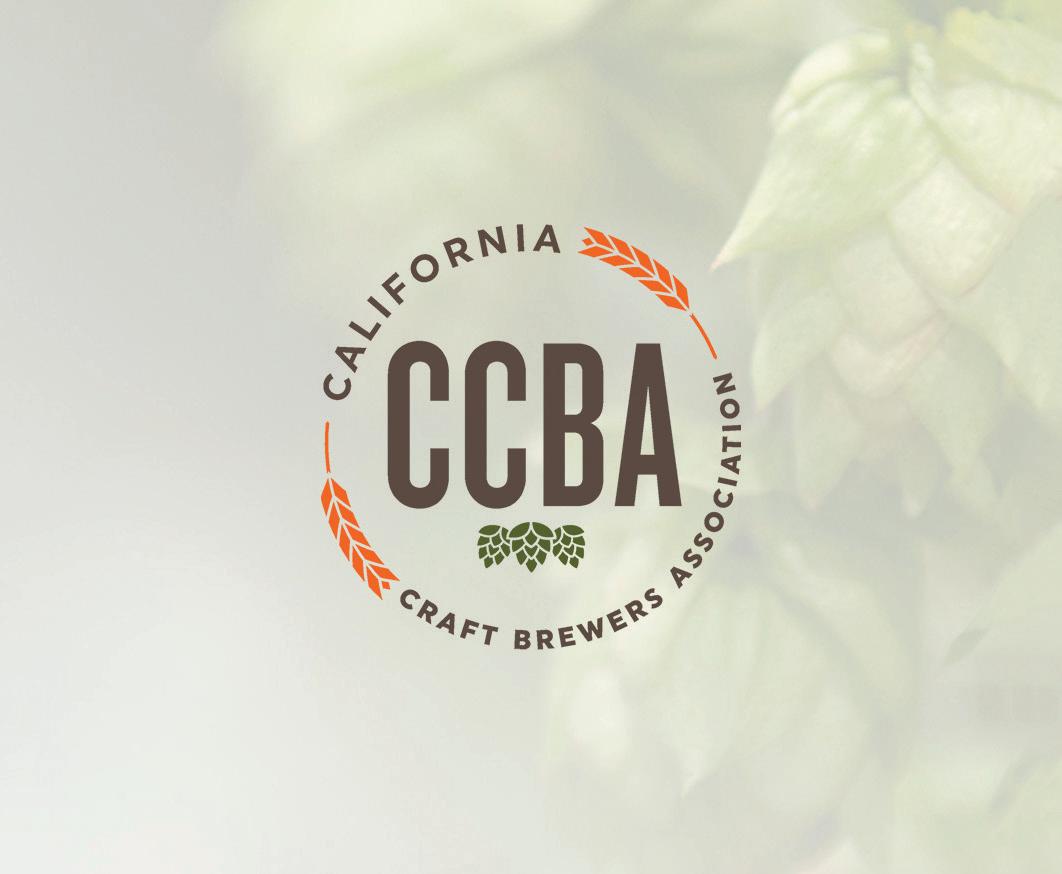
The California Craft Brewers Association (CCBA) has appointed Kelsey McQuaid-Craig as the state trade group’s new executive director.
McQuaid-Craig succeeds Lori Ajax, who announced plans to exit the role at the end of the year. The leadership transition has already begun, which the trade group described as “collaborative and overlapping transition” that “ensures the CCBA will remain at the forefront of advocating on behalf of its membership, as well as ensuring strategic partnerships with allied organizations will continue.”
Ajax had held the executive director role since January 2021, taking over for long-time executive director Tom McCormick, who retired.
McQuaid-Craig joins the CCBA from outside of the beer and bev-alc industries. She most recently served as director of policy and programs with the California Chapter of the American College of Emergency Physicians. She holds a master’s degree in Public Administration and is a Certified Association Executive.
“As a dedicated association professional who enjoys a good craft beer, I look forward to learning from and engaging with the CCBA Board and members to strengthen the California craft brewing industry,” McQuaid-Craig said in the announcement.
CCBA board chair Sierra Grossman added: “The Board knows that Kelsey will focus on ensuring the CCBA’s organization is as strong as it can be as we continue to be challenged in our ever-changing economic climate. With a strong association, we can continue to play a pivotal role in being the voice of craft brewers at the state Capitol.”
The CCBA is the largest and oldest state trade organization representing craft breweries in the U.S. having formed in 1989. California ranks first in the nation with 987 craft breweries and more than 3.245 million barrels of beer produced, according to national trade group Brewers Association.

Spindrift debuted its latest flavor innovation: the Cosnopolitan. As its name suggests – mind the ‘No’ – the new offering is a zero-proof cranberry and citrus seltzer. This isn’t the first time Spindrift has reframed its juicy sparkling waters as a mocktail – in late 2022, the brand added the Nojito to its core lineup. Spindrift’s Cosnopolitan is now available on the brand’s website for $26 per 24-pack of 12 oz. cans. For more information, visit drinkspindrift.com.
Amidst rising interest in the modern soda category, Liquid Death has released a collection of three soda-inspired sparkling water flavors: Killer Cola, Doctor Death and Rootbeer Wrath. All three varieties are available at Target for $7.99 per 6-pack of 12 oz. cans. For more information, visit liquiddeath.com.
Organic energy drink brand Unity has introduced its newest flavor, Peach Mango. Each 12 oz. can features 180mg of caffeine derived from organic green coffee bean extract and contains just 40 calories. According to co-CEO Caleb Weidenaar, the brand recently switched from glass bottles to cans to improve convenience for consumers. Unity Peach Mango is available on the brand’s website for $23.94 per 6-pack or $47.88 per 12-pack. For more information, visit idrinkunity.com.
Red Bull kicked off the new year by launching Red Bull Zero in the U.S. The new energy drink variety is sweetened with monk fruit extract and features tasting notes of pineapple, vanilla, and tutti frutti. Red Bull Zero is now available at retailers nationwide in 8.4 oz. matte, light blue cans. For more information, visit redbull.com/us-en.
Recognizing a growing consumer interest in higher protein content, plant-based shake producer Koia has unveiled its latest product line, Koia Elite. Offered in two flavors – Vanilla and Chocolate – each 12 oz. bottle has 32 grams of protein derived from complete pea protein containing all nine essential amino acids. Koia Elite is currently available in the refrigerated functional beverage set at Whole Foods Market nationwide in 12 oz. bottles. For more information, visit drinkkoia.com.
Slate Milk bulked up its portfolio of high-protein,

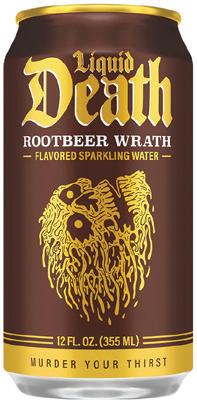



low-sugar shakes with the debut of 32g Protein Nutrition Shakes. Available in the brand’s signature milk chocolate flavor, each 11 oz. ultra-filtered milk beverage contains 150 calories, 1 gram of sugar, and 2 grams of net carbs. Slate Milk Chocolate Nutrition Shake 32g Protein is now available on the brand’s website for $41.99 per 12-pack. For more information, visit slatemilk.com.
In anticipation of what it’s calling a “cherry-coded” 2025, Pepsi has announced the launch of its Wild Cherry & Cream flavor, available in regular and zero sugar varieties. Starting the week of January 20, both varieties will join the CSD giant’s permanent portfolio in 12 oz. cans nationwide. Additionally, for a limited time, Pepsi and Pepsi Zero Sugar Wild Cherry & Cream will be available in 20 oz. bottles. For more information, visit pepsi.com.
New Zealand-based craft soda brand Sidekick Soda has dropped three new flavors: Pear, Strawberry and Cherry. For the Cherry flavor, Sidekick has partnered with the Cherry Rescue Project, which addresses food waste by rescuing cosmetically imperfect cherries suitable for consumption. Additionally, the brand has released a 300ml eco-friendly can format. The new flavors are now available online and at select retailers like Erewhon and Pop-Up Grocer with a SRP of $3.98 per can and $4.95 per 275ml glass bottle. For more information, visit sidekicksoda.com.
RECOVER 180 has expanded its portfolio of premium hydration beverages with its newest flavor, Strawberry Banana. Like the rest of the brand’s lineup, the new flavor features a mix of coconut water, essential vitamins and key minerals. RECOVER 180 Strawberry Banana is slated to launch in 20 Kroger divisions next month, followed by Sprouts Farmers Market in April. For more information, visit drinkrecover.com.
Hydration beverage brand HOIST has teamed up with Folds of Honor, a non-profit providing educational scholarships to children and spouses of America’s fallen or disabled military service members and first responders, to create its newest flavor, Five Star Punch. The new offering comes in a custom-designed bottle featuring relics of the American flag, and a portion of proceeds from each bottle sold will go to Folds of Honor. Hoist Five Star Punch is available on the brand’s website for $28 per 12-pack of 16 oz. bottles. For more information, visit drinkhoist.com.





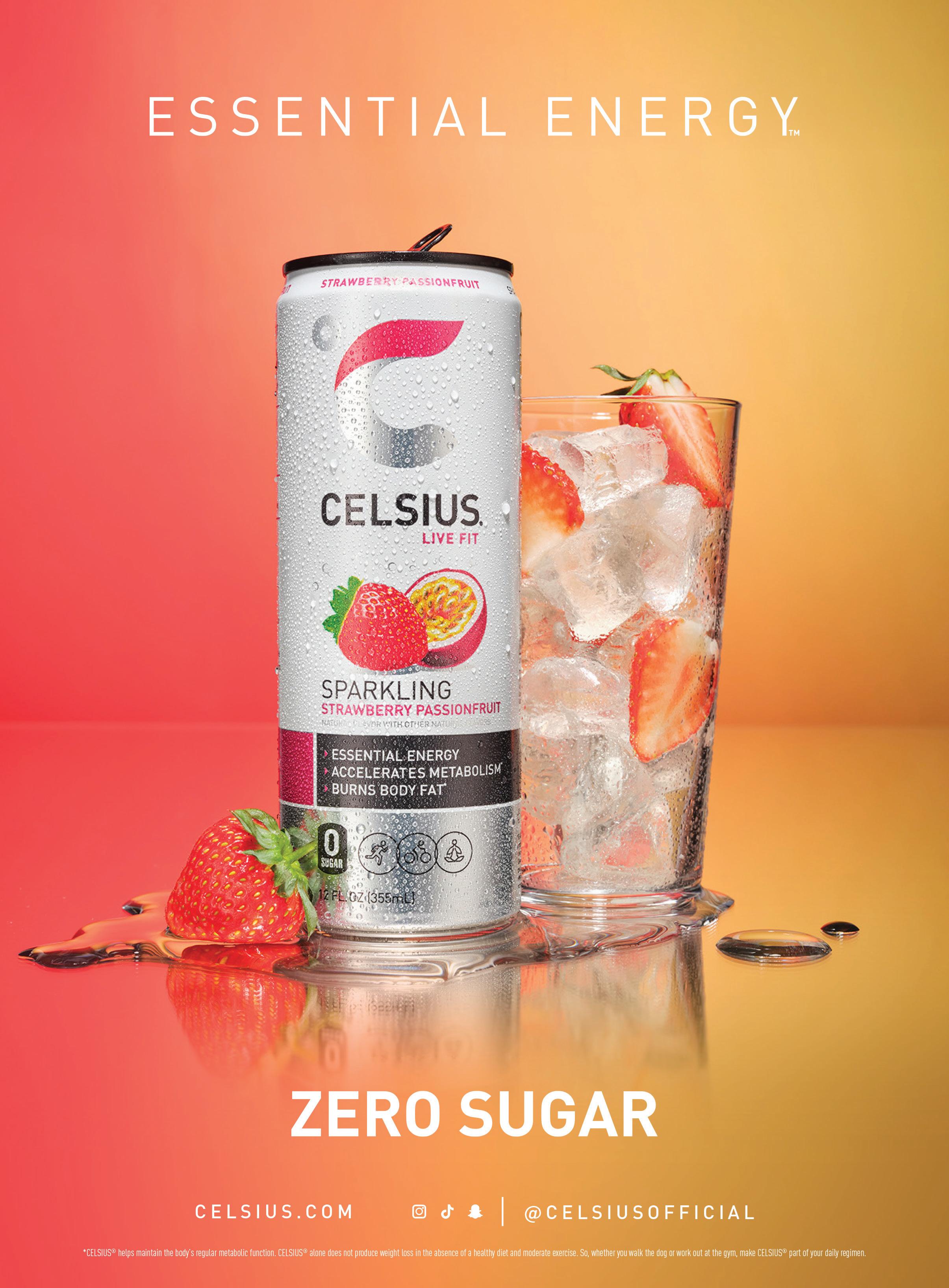
Halfday has expanded its lineup of better-foryou, gut-healthy iced teas with the launch of Sweet Tea. According to the brand, the new flavor is “the classic southern sweet tea taste you expect without the sugar crash that usually comes with it.” Each 12 oz. can has 30 calories, 5 grams of sugar, and 8 grams of fiber. Halfday Sweet tea is available at Whole Foods Market Nationwide. For more information, visit drinkhalfday.com.
AriZona is kicking off the new year with a slate of new product releases. The brand has launched its new 22 oz. cans in four flavors: Blueberry White, Rx Watermelon, Frost Chillzicle, and Mango Dragonfruit. Originally limited to exclusive 2024 releases, Frost Chillzicle and Mango Dragonfruit have returned due to overwhelming demand, AriZona claims. All four new 22 oz. can flavors are available for a SRP of $1.49 at major retailers like 7-Eleven, Sheetz, and BP. Additionally, the brand has expanded its 34 oz. PET line with Kiwi Strawberry, Blueberry White, and Tropical Chillzicle flavors. For more information, visit drinkarizona.com.
Organic farmer-owned cooperative Organic Valley is moo-ving into non-dairy creamers with the launch of four new products: Cinnamon Spice Oat Creamer, Caramel Oat Creamer, Vanilla Oat Creamer and Oatmeal Cookie Oat Creamer. The dairy-, nut- and lactose-free creamers have 30 calories per serving and are made with oats sourced directly from Organic Valley’s U.S. organic family farms. For more information, visit organicvalley.coop.
MALK announced the return of its Organic Holiday Nog. The seasonal offering is crafted with filtered water, organic almonds, organic maple syrup, organic nutmeg extract and Himalayan pink salt. MALK Holiday Nog is available at retailers nationwide in a 28 oz. bottle for a limited time. For more information, visit malkorganics.com.
PKN, which claims to have been the first brand to introduce pecan milk to the market, has unveiled its latest offering: PKN JOY Barista. The new offering, made in partnership with baristas, features sustainably sourced, upcycled pecans rich in flavonoids and antioxidants.
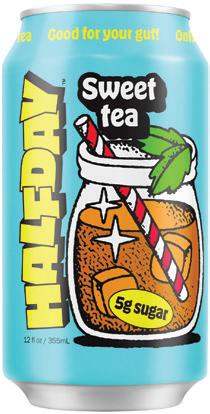




Consumers can purchase PKN JOY Barista on the brand’s website for $15.99 per 2-pack of 32 oz. cartons or $44.99 per 6-pack of 32 oz. cartons. For more information, visit thispkn.com.
Ocean Spray is seeking to give consumers a new way to enjoy juice drinks by introducing its new powdered drink mixes, crafted in collaboration with Dyla Brands. Available in three flavors – Cran x Grape, White Cran x Peach, and White Cran x Strawberry – the stick packs are made with cranberry juice powder sourced from Ocean Spray’s co-op and are free of sugar and synthetic dyes. Ocean Spray Drink Mixes are available on Amazon for $14.95 per 40-count box. For more information, visit oceanspray.com.
San Francisco-based food tech company Compound Foods, the makers of Minus Coffee, have abandoned their initial approach to CPG– a two-SKU line of 7.5 oz. single-serve cans – for an instant alternative. The company has unveiled a new powdered oat milk latte, now available for $35 per 9.7 oz. bag to subscribers. The instant beanless coffee touts 50 mg caffeine, 100 mg L-theanine, and 6 grams of pea protein per serving. For more information, visit drinkminuscoffee.com.
Marrying Constellation Spirits’ heavy hitters for the first time, High West and Casa Noble have teamed up for a unique whiskey blend that combines High West’s straight rye whiskeys with the deep flavors of Marques de Casa Noble Añejo barrels. Tequila and whiskey alike lovers will likely get down with the caramel and oak notes in this limited edition. Priced at $174.99. For more information, visit highwest.com.
Black-owned premium tequila company Jon Basil by founder Uduimoh Umolu announced a perfect wintertime addition to the company’s lineup: an 18-month oak barrel-aged tequila. Priced at $59.99-64.99, Jon Basil has steadily been expanding this year with additional distribution in New York, California, and Miami. Available at major retailers now. For more information, visit jonbasiltequila.com.

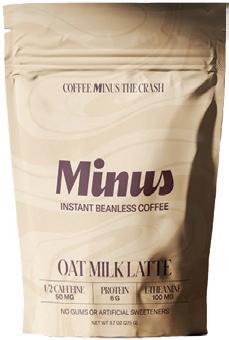



It’s still a bull market for Red Bull. At year end, according to our Circana numbers, the company that invented the category grew revenue 5% — the same amount as the category itself. But Red Bull isn’t the whole category anymore: extreme growth brands like Celsius, Alani Nu, C4 and Ghost together added more than $1.2 billion in new revenue to the category last year, each growing 15% or more. With 8 out of the top 10 brands growing last year, it just shows why so many convenience stores are squeezing more energy into those aisles.
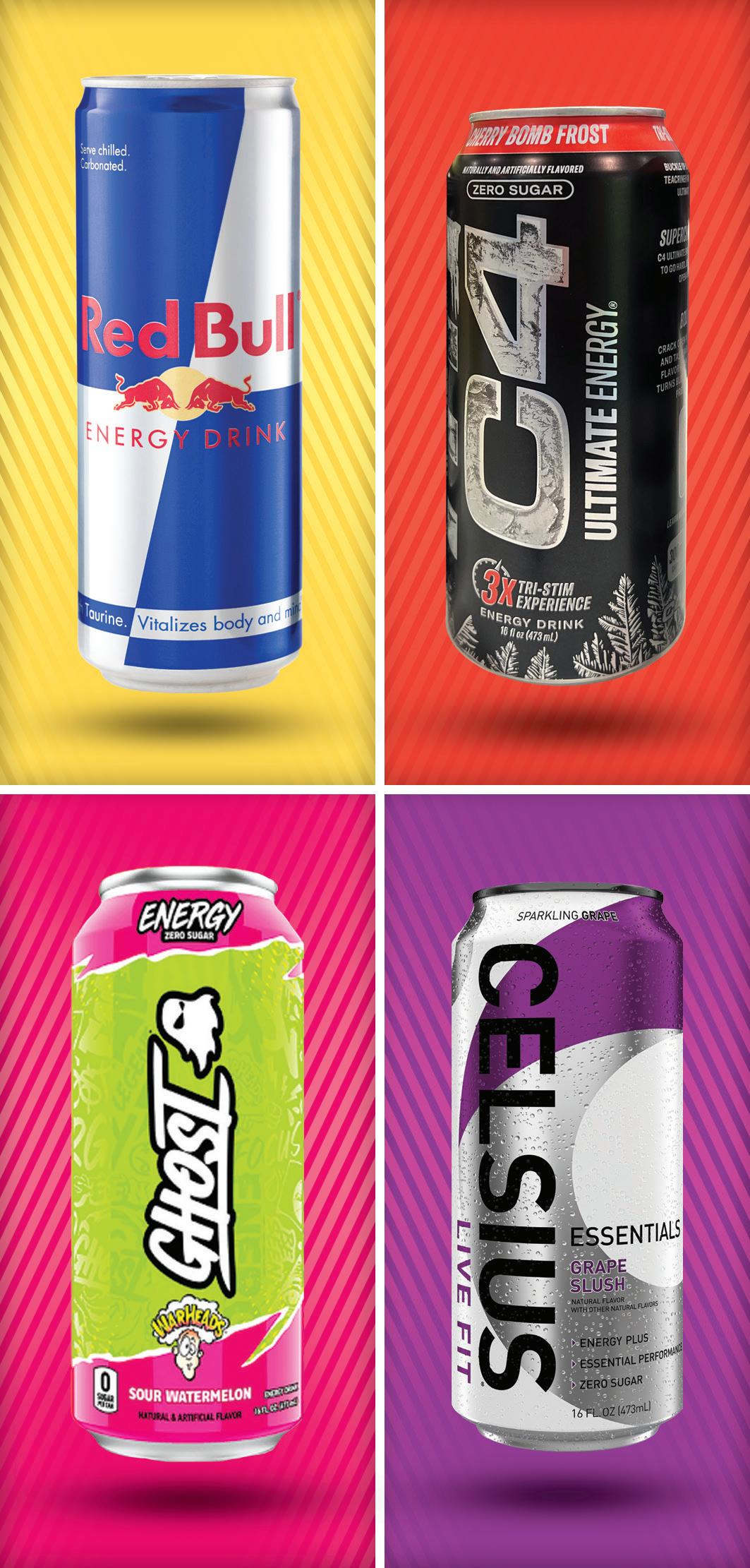

SOURCE: Circana OmniMarket™️ Shared BWS - 52 Weeks Ending 12-29-24
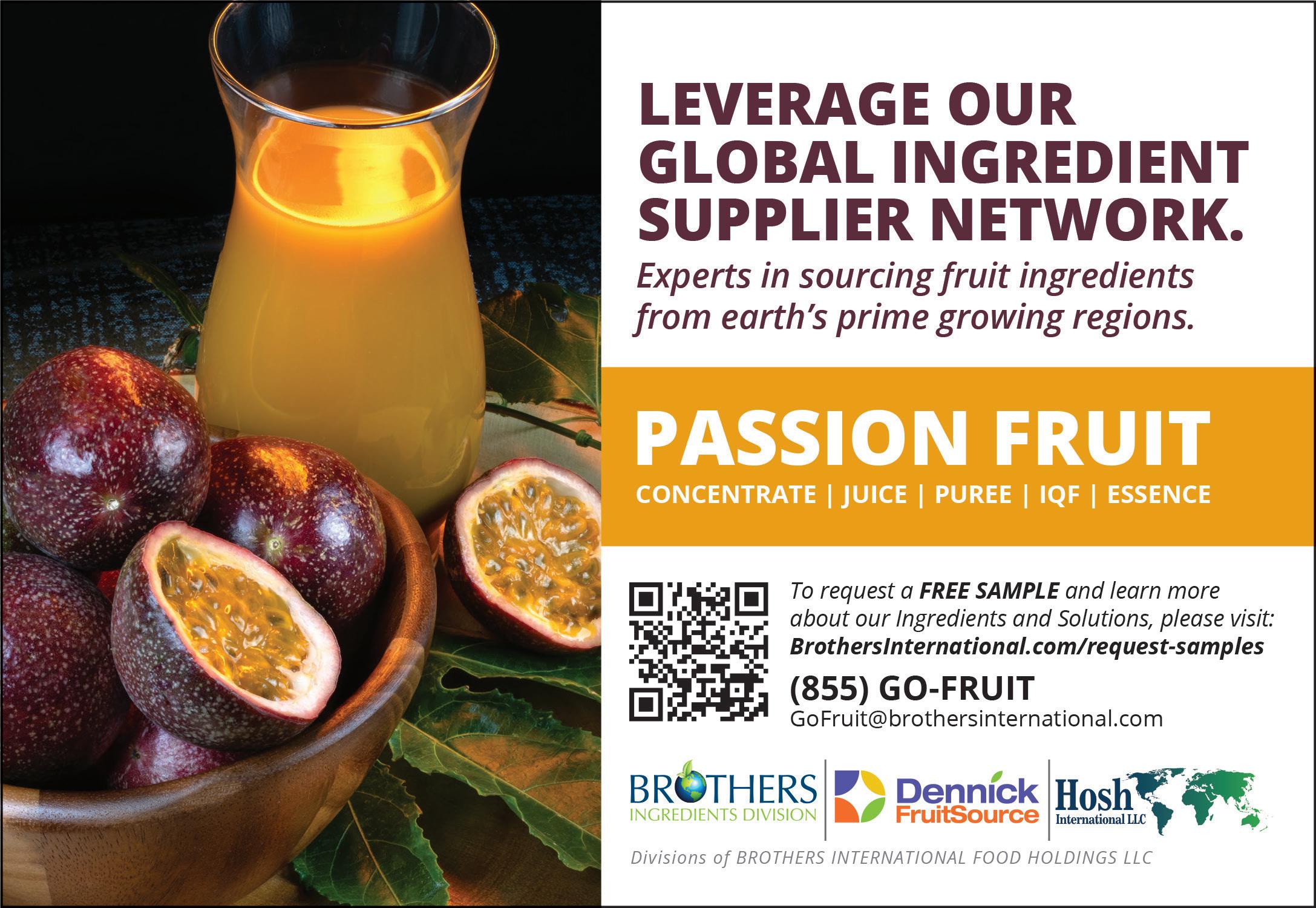
SOURCE: Circana OmniMarket™️ Shared BWS - 52 Weeks Ending 12-29-24

The 2024 edition of BevNET’s annual winter conference in Marina Del Rey brought the expected high levels of energy and excitement across the two-day event in December.
A wide range of topics were discussed but the recurring theme among beverage business entrepreneurs, investors, experts, distributors and retailers presenting on-stage was how to succeed in a time of economic uncertainty and what the true meaning of category-disrupting innovations is.
In a presentation that kicked off the first day, Craig Dubitsky discussed how he’s bringing his experience creating “joyful” CPG brands into his new coffee venture happy, co-created with actor Robert Downey, Jr.
“I’m allergic to this word ‘disruption,’ Dubitsky said during the presentation. “It’s not about disrupting anything. No one ever said, ‘honey, next time you’re getting some toothpaste, can you get me some of that Hello toothpaste, they’re such challengers the way they disrupted my routine.’ No one says that.”
Dubitsky, who has also founded breakthrough brands such as cleaning products company Method, lip balm maker Eos and toothpaste company Hello, believes that in order for a product to bring the type of magic that upends a category, it has to innovate with emotion in mind.
Later in the day, a diverse panel including Rocana Venture’s co-founder and general partner Gurdeep Prewal, Willow Growth Partner’s founder and general partner Deborah Benton and Barrel Ventures managing partner Nate Cooper discussed whether or not VC cash is right for your business is dependent on the firm itself and the relationships a founder has built.
“Beverage can be a fantastic VC investment, because the outcomes can be huge, and have been huge, which is very much in alignment with how venture capital and portfolio construction for venture capital works,” said Benton. “Why it may not be a great investment for venture capitalists, candidly, a lot of VCs [don’t] know beverage very well.”
She cautioned founders to seek out firms that at the least are focused on the space or are run by former operators. Prewal added that raising at any stage, even for the VCs themselves, is extremely difficult in the current market. Cooper said he believes money will begin to move once again, as long as there are more exits to PE and dollars flowing from other streams beyond “the big three.”
Closing out day one, Cameron Gould-Saltman, TikTok Shop’s head of food and beverage explained that companies that have seen success on the platform are taking a creator-first approach to building their reach. While they must be comfortable ceding some control to influencers and creators, he believes this approach has been most effective to authentically build followings for a new storefront and introduce U.S. consumers to the concept of shopping via social media.
During the event’s second day, Recess founder and CEO Ben Witte discussed how brands establish new categories. He told the audience that although CBD was a pivotal first step for establishing the business as being at the forefront of the emerging relaxation drinks sector, he “saw the writing on the wall” that the regulatory environment would not turn in the ingredient’s favor. So, business innovated and evolved while Witte made sure not to lose sight of the core proposition around the relaxation need state he was con-

fident would remain in vogue with or without cannabidiol.
CBD-infused Recess products are still on the market, but they now represent less than 10% of the business’ sales, whereas its mocktails are over 90%.
“Consumers buy solutions, not ingredients,” Witte said. “I really believe it’s important to focus on the key value propositions and the specific occasions and need states you’re most relevant for.”
Later in the day, Thirstwell founder and CEO Brandy Rand picked back up on the subject of rising demand for relaxation drinks in a session focused on how cultural shifts have led to changes in how consumers “drink their feelings.” She pointed to a decline in American happiness, dropping from the 15th happiest country in the world to 23rd, out of 140 tracked nations, according to at least one survey.
In response, she said brands could benefit from working to uplift consumers who are feeling down through positive messaging and upbeat ad campaigns.
“Marketing through feeling for beverages is not a revolutionary thing, the biggest companies in the world have done this for decades,” Rand said, pointing to trends during the 2008 recession when brands like Coca-Cola mounted marketing campaigns focused on happiness and “lifting people up” that proved highly successful.
For founders facing the ultimatum of “get profitable or get packing” amid economic uncertainty, LifeAID founders Orion Melehan and Aaron Hind walked through some of the steps they took to get to this point and aimed to demystify at least some of the fog that surrounds the path to profit.
Among the steps they took included hiring a proper accounting team to identify inefficiencies, optimizing inventory and learning how to prioritize their key accounts, slashing marketing and reducing payback periods, and – hardest of all, they said – layoffs. In the end, the business accrued 24% in savings and is still running at a profit today.
Achieving profitability, Melehan said, is a key to longevity for a brand, and suggested it can be a proper marker of success.
Closing out the event, New York City-based hydration beverage brand Recoup took home the New Beverage Showdown title in a tight competition that featured five other finalists, including Dappy non-alcoholic functional beverage, Passion Joy sparkling passion fruit beverage, Melo sparkling kava drink, Guinep nonalcoholic cocktail, and Grind with Gratitude performance water and THC-infused seltzer.
Nosh Live 2024 kicked off with panels, presentations and conversations that pieced together fundamental components of successful CPG businesses and offered brands advice on how to navigate current economic headwinds, shifting consumer habits and prepare for an uncertain landscape in the years to come.
During the first session of the first day, Once Upon a Farm co-founder and CEO John Foraker and chief brand officer Jennifer Garner explained how the team’s early idea to “Fresh Pet” the baby food aisle allowed it to not only differentiate itself within a stale and stagnant category, but also secure early buyin from its retail partners. Now, “every major retailer” is scaling coolers as demand for fresh products grows, said Foraker.
This past year, OUAF launched nine new products and he claims six of those SKUs are the fastest selling dry baby snacking items across “the entire MULO universe… I’m talking [about] Gerber, Nestle, everybody.” That fast growth was made possible because the brand was clear on its mission from day one, he said.
“When you’re an emerging brand, and you hammer your core, and you build a loyal audience of millions of households, and then you launch some great innovation that they view as additive to building the brand. You can get that innovation to go really big, really fast,” Foraker said.
Later in the day, Rachel Hirsch, managing partner at Wellness Growth Ventures, Steve Young, managing partner at Man-

na Tree and Wayne Wu, managing partner at VMG, discussed why tinned fish, cottage cheese and sparkling water are the apple of some VC’s eyes
While the trio took to the stage to share their thoughts on the state of VC investing, they also emphasized the importance of not taking on institutional capital unless absolutely necessary. Hirsch detailed how despite being a venture firm, Wellness advocates for its portfolio brands to explore the many forms of non-dilutive capital that are often untapped, particularly among its core focus on women-owned businesses.
For those in need of capital, panelists put a heavy emphasis
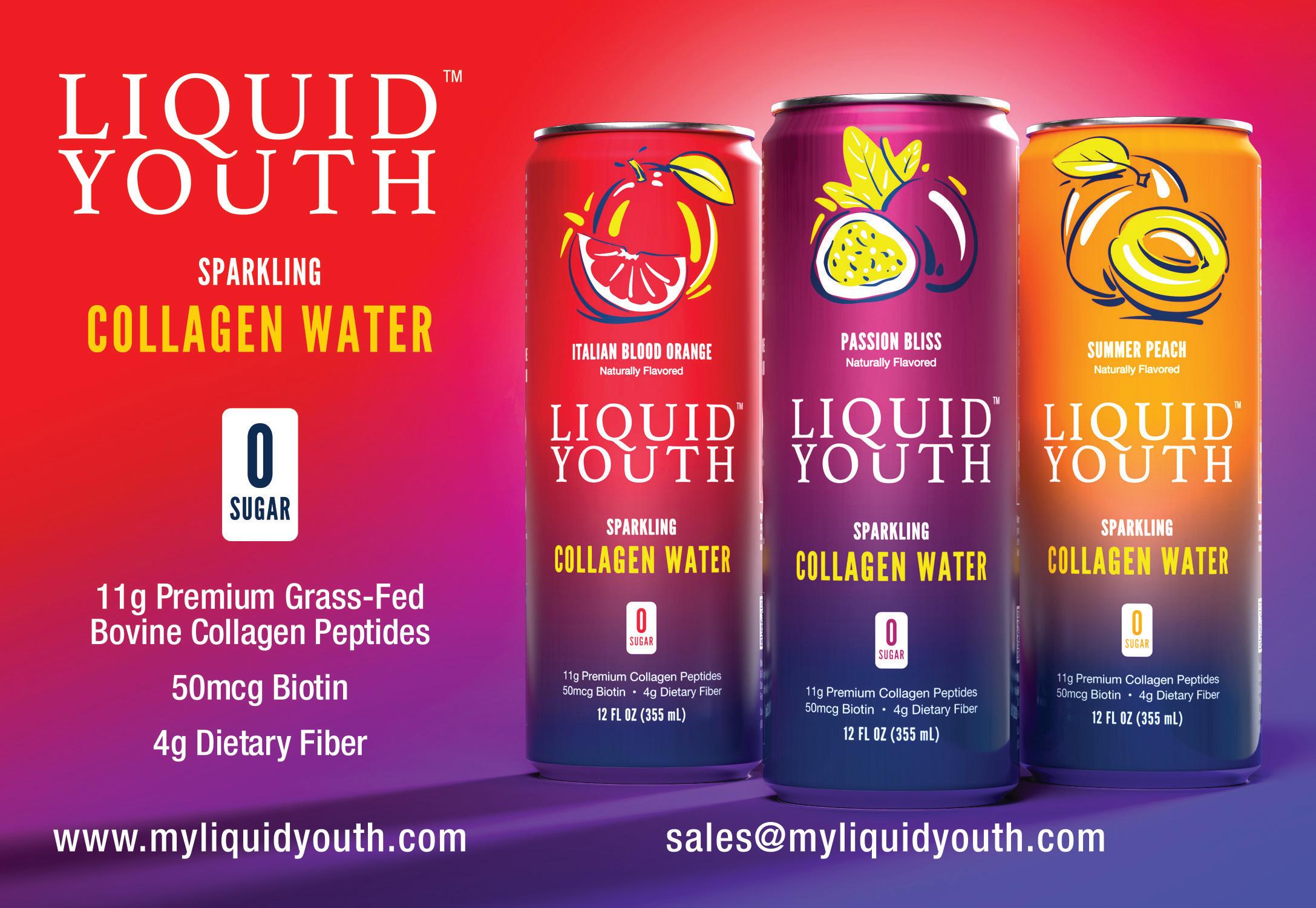
on why simplicity, focus and strong gross margins remain essential to getting investors to buy in. Wu believes that despite the environment being tough, there’s more early stage capital available to food and beverage brands today than there was 20 years ago, adding that interest has shifted back onto those with less aggressive go-to-market strategies, simpler teams and focused product portfolios.
On day two, brand leaders, founders, and industry stakeholders took the stage to tell their stories and give attendees useful advice on building long-lasting success in CPG food.
Brad Charron discussed how he became the “re-founder” and CEO of ALOHA in 2017 and why he saw the potential for success.
“The company was trying to do too much, too fast, too soon. Not an original story,” he said. “Here’s what I saw: Untapped, enormous potential. I love to compete, and I love to compete for something that’s worthwhile fighting for.”
When Charron took over the leadership role, one of the first meetings he had with a retail buyer ended with Charron being told ALOHA was being dropped from Target. Charron said he couldn’t blame them because it was a “beautiful idea that wasn’t executing.”
Fast-forward seven years and the company is a profitable, employee-owned B Corporation with more than $100 million in sales.
How did Charron help turn ALOHA around? His first task was SKU rationalization because there were “too many products.”
Although ALOHA makes protein drinks and powders, the focus needed to be on bars, which were the brand’s core line.
“Be great at something first and then expand,” he said. “Get excited about your ideas, get excited about the future, innovate in your heart and execute with mental focus.”
Closing out the annual winter conference, California-based “crème cloud” producer Mochi Love took home the Pitch Slam trophy in a tight competition that featured five other finalists, including Doosra modern Indian snacks, Brune Kitchen clean label cookies, Harken functional, better-for-you candy bars, NOOISH matzo ball soup, and Chutni Punch finishing seasoning powders.
As the champion of Pitch Slam 15, Mochi Love walked away with a $10,000 awareness-building advertising package from Nosh and bragging rights.

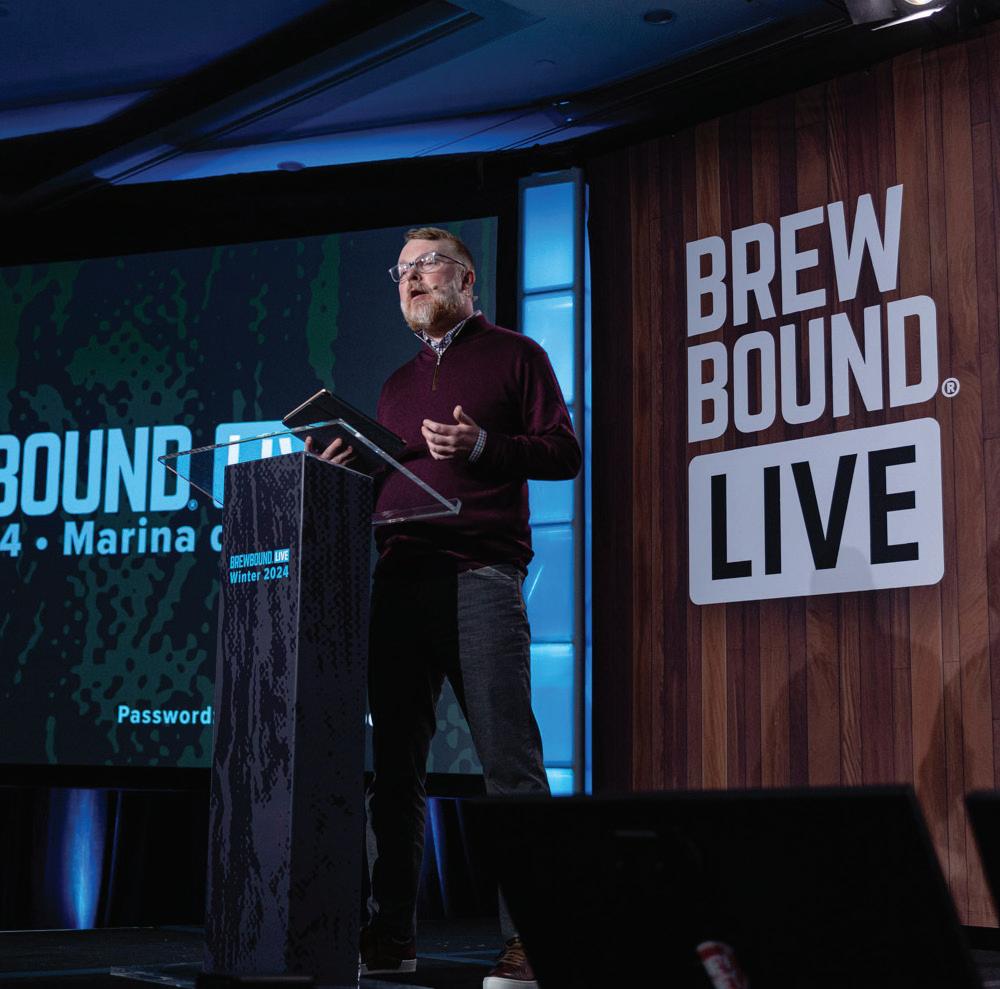
As craft beer enters a new uncharted era, leaders of established breweries shared how they keep decades-old flagship brands fresh and relevant for new generations of drinkers during the Brewbound Live business conference.
“Something that’s really important, particularly with a decades-old brand, is you don’t want to alienate your fan base that has built and followed you just to chase innovation,” Bell’s Brewery EVP Carrie Yunker said. “You really want to make sure that it makes sense for that family and that is what they expect to be drinking.”
Yunker discussed how Bell’s has evolved two of its biggest beers, flagship Two Hearted IPA and seasonal Oberon, into brand families. For Two Hearted, Bell’s found drinkers appreciated classic styles brewed excellently, but Oberon fans were different.
“That consumer really gave us a lot of permission to play with flavor, to play in a space where things were a little more vibrant and exciting,” Yunker said.
Rogue Ales president Steven Garrett discussed the Newport, Oregon-based craft brewery’s journey to launching an entire family of Dead Guy-branded beers, named for the brewery’s flagship.
“In one word, it was terrifying. Dead Guy Ale has been around for 32 years. We probably get pictures once a week of someone who has tattooed the Dead Guy logo onto their body, so this is a brand that has passion, that people care about. They’ve been drinking it for a long time,” Garrett said. “The idea of ‘Is there going to be backlash? Or is there gonna be an uprising?’ as we do this was definitely top of mind.
“There’s a risk to innovating, but there’s probably a bigger risk to just standing still,” he continued. “Now that we’re doing it, now that it’s starting to work, it’s interesting to see all the people that have worked at Rogue for a lot of years that are like,
‘Oh, we thought about this for a long time, and it’s just hard to pull the trigger.’”
Craft beer ended 2023 with dollar sales roughly flat (-0.9%) at multioutlet grocery and convenience stores but volume -4.4%, according to market research firm Circana. Could craft brewers seek to emulate other beer category segments that found more growth last year, such as non-alcoholic beer, which grew dollar sales +29.3%?
Only if it makes sense to consumers, CANarchy Craft Brewery Collective chief commercial officer Chris Russell said.
“When it comes down to it, you don’t want to overextend or extend too quickly and come across as inauthentic,” he said. “For us, we sometimes overthink it and evaluate it in every different way you possibly can, but I think at the end of the day, if it’s something that the consumer is going to identify with, if they can see a connection between Dale’s Pale Ale, the flagship that’s been around for almost 25 years, and a non-alcoholic beer, then it works.”
CANarchy line-extended Oskar Blues Dale’s Pale Ale in 2023 to include Dale’s Light Lager, a counterweight to the Dale’s Double IPA that rolled out in 2022. All three beers got refreshed branding that highlighted the Dale’s name, rather than Oskar Blues.
“I’ve worked with the Oskar Blues Dale’s brand for about 11 years now. I can still tell somebody that I work for Oskar Blues and they look at me like, ‘Huh, what’s that?’ and then you say Dale’s Pale Ale and they know exactly what you’re talking
about. I think the idea of getting out of your own way sometimes is important,” Russell said.
“For us, we wanted to really simplify the overall art and focus in on that iconic oval that the Dale’s is front and center with,” he continued. “It’s not hiding or trying to remove Oskar Blues by any means, but letting the franchise brand stand out more.”
Lawson’s Finest Liquids, the youngest brand represented on the panel, has taken its time when extending its Sunshine brand to new products, CEO Adeline Druart said.
“Our goal is not to mess it up, but really to enhance the brand,” she said. “We’re very intentional about line extension and we’re slow at it because we started with Double Sunshine almost 15 years ago and then Sip of Sunshine is going to be celebrating 10 years.”
The Waitsfield, Vermont-based craft brewery ships its offerings through a cold supply chain. Because of the complexities associated with that, Lawson’s has yet to launch a variety pack, a popular package format in craft beer of late. But they are “determined to figure it out,” Druart said.
“We focus on core values,” she said. “When we make the product, we want it to be the finest, the freshest and always kept cold. It’s a 100% refrigerated supply chain, and it’s short shelf life. It’s 60 days. … We do intend to solve this, because a variety pack not only anchors your consumer into your flagship brand – our Sip of Sunshine – but then introduces the consumer to a product that they may not have found or picked or wanted to try.”

More than 270+ beverage brands and approximately 60,000+ attendees
Where
Anaheim Convention Center Anaheim, CA
Exhibitor Booth
Abstinence Spirits 4399C
Acai Roots 2899B
Alexandre Family Farm F2
Alexandre Family Farm N836
Amaz 4912
Amy & Brian Naturals N1117
AQUA 9+ 2445
Ardor Organic N1940
Atomico 5369
Bala Enzyme 2215
Bear Maple 4936
Beekeeper Coffee N236
BeGOAT 227
Belvoir 5246
Best Day Brewing 4916
Better Booch N718
Betty Buzz 8606
Bigelow Tea 881
Blue Bottle Coffee 5412
Blue Diamond (Almond Breeze) 5779
Blue Monkey 5621
Blue Monkey N324
Blueshift Nutrition 3743
Blume Honey Water 4498A
Exhibitor
Bollygood N1206 Boochcraft F80
Bored & Thirsty 4695
Bragg Live Food Products 5478 BrainJuice N435
Brooklyn Food and Beverage N1804
Califia Farms 923
Caliwater N2206
CatSpring Yaupon F78
CForce by Chuck Norris 5153
Chlorophyll Water N1033
Cirro Water 242 CLEAN Cause 1406 Clear Theory N1248
Clearly Canadian 5068
Cloud Water
and Events • March 4-7, 2025 Trade Show • March 5-7, 2025
BevNET, NOSH and Taste Radio will be interviewing, broadcasting and filming throughout the event. If you’re attending or exhibiting, let’s connect! Reach out at news@bevnet.com, news@nosh.com, or ask@tasteradio.com

Exhibitor Booth
Flow Alkaline Spring Water 5389
Fomilk 494
Forager Project 5081
Four Sigmatic N507
Fresh Fizz Sodas 8707
Fruga 4788
Garden of Life
Nuun Hydration
Solgar Vital Proteins 3535
Gatorade 5727
Gatorade N728
Gavina 358
GnuSante Creations N1243
Good Idea 5761
GoodBelly, Cheribundi N729
GoodSport Nutrition N1108
Gorgie N1346
Goya Foods 1473
Groundwork Coffee N813
Guayaki Yerba Mate 2027
Harmless Harvest 376
Harney & Sons Tea 2018
Hawaii Volcanic Beverages 5009
Hawaiian Soda Co N919
Health Verve 5130
Health-Ade 5347
Hethe Water 8508
heywell N1806
Hint 5307
hiyo N1146
Holy! Water 7814
HOP WTR 5704
Hoptonic Tea F32
HP Hood (Planet Oat) 5758
Huel 3895
Huxley N1341
Exhibitor Booth
Huzzy Smart Sips 8812 Iba 7820
Ito En (North America) 5505
Jayone Foods 978 JOCKO FUEL 994
Joe Coffee 5299B
JuneShine 3999
Juni 5045
Just Ice Tea N833
Karma Water 3097
Kefir Lab 5644
Ketone IQ 8509
Ketone Labs 4373
Kimino N339
Kin Euphorics 4790
Koia 3599
Koko & Karma 2999C
Kor Shots N929
L.A.Libations 5005
Lakewood Organic 1517
Lavazza 363
Leisure
Local Weather 5496
Machu Picchu Energy N547
Magic
Exhibitor
Booth
Organic Valley 1641
OWYN 5189
Pacific Gold Creamery 8212
Panera Coffee N1010
Panos Brands 905
PathWater N1900
Peace Coffee N1329
Peerless Coffee & Tea 1528
Perfy 5652
Pickle Juice 5465
PIRQ 5472
Plant Press N1753
Plink! 7824
Pocas International 896
Polar Beverages 5688
Pop and Bottle 5069
Pop and Bottle F42
Positive Beverage 5707
Pressed Juicery N1709
Pricklee 7821
Proper Wild N2231
Protein2o N1012
Proud Source Water N1609
Pulp & Press 5593
Q Drinks 5599
RAMBLER 4969
Rasa F36
RAW FARM 5595
Recess 5791
Recoup Beverage N1529
Remedy Organics N2001
Ringa 8203
Rishi Tea & Botanicals N2003
ROAR Beverages 5464
Ryl Tea 5682
Saint James Iced Tea 5105
Exhibitor
Booth
Sambazon 5338 Sang 8306
Sanzo N138
Sati Soda F125
Say When Beverages N1839
Sencha Naturals 5320
Shine Water 5666
Sisters Coffee Company N2252
Skinny Mixes 5174
Slice Soda 5681
Smart Juice 2205
Smith Teamaker 3594
Som Sleep 5207
Spade Soda N2026
SPI West Port (ALO, Jenji) N504
Spindrift
Strive
Suja
N2316
SYSTM Brands (Rebbl, Humm, Chameleon) 5689
Tache Milk N1447
Taika N337 Teapigs 1576
Teeccino 534
The Ginger People 1455
The NA Beverage Company 4694
The Republic of Tea F109
The Republic of Tea N1952
The Vita Coco Company 1877
The Wonderful Company 311
Beverages 5490
Tonic F82
Juices N2121
Brothers Tea F87
Water N1114

Each year bestows upon the beverage industry a unique set of challenges and obstacles, presenting brands and entrepreneurs a delicate puzzle rife with opportunities and pitfalls. The scope and the complexity of this endeavor is enough to intimidate – or worse, defeat –even the most experienced of hands and deepest of pockets, so it’s only right that each year we honor those who have run the gauntlet and emerged from the struggle with tangible gains intact.
As we enter 2025, all semblance of so-called normality feels under threat. The prodigious rise of GLP-1 drugs is exerting its own gravitational force on various categories and sections of the store, while a new White House administration promises to be anything but predictable with regards to health and commerce policies. At a state level, some governors are pulling the reins on hempderived THC, and others are clearing its path. Even things that feel timeless – the sweet indulgence of a fizzy soda, the subtle elegance of a perfect cocktail – are being carefully reimagined in ways that both fit modern tastes and harken back to simpler times.
This year’s Best of Award winners exemplify the bravery, ingenuity and persistence required to pass through these uncertain times, a group boldly moving into the future and illuminating the way for others to follow in their footsteps.

David Crooch, General Manager, Non-Alcoholic Beverages, Diageo; CEO & Co-Founder, Ritual Beverage Co.
David Crooch is the Person of the Year for 2024 because he’s going to be playing the role of Designated Driver for the NonAlcoholic Spirits Category.
The brand he co-founded and still leads, Ritual Beverage Co., is already the NA spirits category leader by a wide margin, and it was recently purchased by spirits giant Diageo. The beverage giant then put Crooch in charge of the company’s entire NA Spirits portfolio, including previous purchase Seedlip, one of the category’s pioneers.
Crooch, a repeat entrepreneur, now finds himself with the responsibility of fulfilling the widespread expectation taking root among spirits companies, bars, and restaurants that consumers are thirsty for non-alcoholic analogs of their most popular cocktails. That he’s doing it at one of the largest spirits companies in the world makes the task extra daunting – but also confers resources to him that no one else in his category has had to date.
The normalization of any new category concept has to happen from a brand standpoint. For nonalcoholic beer, that movement has been established by Athletic Brewing. In the realm of non-alcoholic spirits, Diageo has added NA versions of category leaders like Captain Morgan’s, Gordon’s, and Tanqueray to its portfolio, but it has put its biggest stack of chips on Ritual, and on David Crooch.

When we’ve spoken with entrepreneurs about the brands that inspire them, about the marketing strategies they admire, they just can’t decide: is it Poppi, or is it Olipop?
We’ve decided for them. It’s Olipop. And it’s Poppi.
Right now, the spotlight on both far outshines any daylight between them, and they’ve captured the collective imagination of retailers, entrepreneurs, and consumers alike. Together, these brands have busted through the long-held notion that soda is on the way out, that craft soda would always be a bit player, that gut health would never live up to its promise, or that premium pricing was never coming back to CSDs. And in doing so, the competitors have found close to $1 billion in revenue between them.
Olipop is the creation of a pair of entrepreneurs who had been burned before, only to come back stronger, with a better plan and an easier-to-understand product in classic soda flavors. Poppi is the result of a pivot, with investor Rohan Oza and founders Allison and Stephen Ellsworth rebooting Mother, an apple cider vinegar-based health drink as the wildly flirtatious, fruitforward and TikTok-friendly Poppi.
Together, these brands have finally legitimized alternative sodas as a category, initially flying under the aegis of gut health but gradually forming brand identities of their own. Poppi has made it clear that it’s angling for the mainstream, while Olipop continues to hew more closely to its prebiotic roots. Regardless, both brands are trending up sharply: around 300% year-over-year, according to a recent analysis of Nielsen IQ data by Goldman Sachs. Both brands hold steady price points well in excess of $2 per can, and have solid conventional runways, eyeing multipacks in grocery, single serve convenience, and heavier food service presence as ways to build share. Their respective dives into pro sports partnerships this year signals they still have plenty of new venues and audiences to capture, as well.
Who will sell first? Who will sell the highest? Right now, that question doesn’t matter - the only thing that matters is that they’re in lockstep as they share the title of BevNET’s Best Brand of 2024.


Three years ago, we gave the 2021 Best Marketing award to Poppi in recognition of the next gen soda’s mastery over the young medium of TikTok, after it turned an inadvertent viral post into a social media machine that’s still chugging along at full power. At the time, Poppi was a fresh brand, full of promise, establishing its name on a new marketing frontier. But in 2024, it found time to shine on one of advertising’s oldest and boldest stages.
Poppi’s 60-second Super Bowl LVIII ad in February became, according to at least one analytics firm, the most watched commercial out of this year’s game – no small feat for a multi-million dollar introduction declaring loudly and proudly that “soda is not a dirty word.” Titled “The Future of Soda is Now,” versions of the commercial have continued to play on TV throughout 2024, including during the World Series for another big eyeball-grabbing sports event. Fittingly, like Poppi’s TikTok phenomenon before it, the success was also somewhat unexpected; the commercial wasn’t originally intended to premiere during the Super Bowl, but a last minute opening thrust the brand into prime time and it’s a testament to the company that it was prepared to meet the moment.
That the spot would turn into one of the most successful campaigns from the entire event is all the more evidence that our CoBrand of the Year has its thumb on the pulse of the market, and that is easily worth our recognition.

Just Ice Tea has been an astounding business story since it launched in the wake of Coca-Cola’s discontinuation of Honest Tea in May 2022. Honest cofounder Seth Goldman – dismayed to see his life’s work ended so abruptly – created Just Ice Tea to fill the coming void for an organic RTD tea brand, and moved with such speed that consumers could still find stray bottles of Honest in stores when it first hit shelves. This year, as Just became the core focus of its parent company Eat the Change, it continued writing a powerful growth story that’s just as impressive as its founding.
Goldman often likes to measure Just’s development in terms of his experience building Honest Tea, and by his estimations the brand has grown about as big in two years as Honest was after 10. Sales were up triple-digits in 2024 and the business is projecting a footprint of 10,000 doors over the next year, with the brand just beginning to broach mainstream outlets in a serious manner. In one sense, Just is the reborn phoenix that rose from the ashes of an iconic brand, but as it racks up sales this is clearly a company that’s swiftly making its own name known.
Recess was crowned the “LaCroix of CBD” when it debuted in 2019 as part of a wave of trendy cannabinoid brands that rushed into the market at the turn of the decade, bolstered by an “It Factor” hype that surrounded its modern branding and function-forward product. But like hipster-fave LaCroix, CBD’s time in the media limelight was very 2010s, and Recess wasn’t about to be left behind as last decade’s fad.

Over the last five years, Recess has embraced the pivot, seeking to become – as CEO Ben Witte calls it – “the Red Bull of relaxation.” There’s now the Recess Mood functional sparkling water line, powder mixes and its canned mocktails that are striking the Adult NA trend while it’s hot. Now in over 18,000 retailers with a robust ecomm business as well, the company is reporting that it’s doubling its revenue annually, and it’s now scaling with eyes set on crossing the coveted $100M threshold. The beverage industry, and the world at large, has constantly shifted under this brand’s feet but Recess has proven time and again it’s able to move fast, innovate and stay on top of the trends. For a brand encouraging consumers to take a break and chill, Recess doesn’t appear to be slowing down for a minute.

Some brands succeed by confirming accepted notions of how the beverage market works – and some succeed by doing the total opposite. Consider Brēz a leader within the latter group, as evidenced by its inventive and disruptive approach to slanging cans of low-dose, cannabis-and-mushroom-infused sparkling drinks. Under the auspicious guidance of its outspoken founder Aaron Nosbisch, Brēz has done more than put up around $25 million in sales (per Nosbisch) since formally launching in summer 2023; Brēz’s D2C sales focus, slick branding, creative social media presence and clear identity as a true alternative to alcohol has given it a distinctive edge amongst a rising competitive field, proving it a vital force in normalizing cannabis drinks. Its ability to, so far, effectively realize even some of the enormous potential in next-gen functional beverages – wellness-minded products with real appeal across demographics and need states, that can look the part at a corner store or in Miami for Art Basel, and that, most importantly, taste damn good – is worth celebrating.
Barcode

It’s still early, but after just four years in the game, Barcode is shooting with a hot hand. The upstart brand -- created by Bar Malik, an experienced sports trainer and former head of player performance with the NBA’s New York Knicks -- got off the blocks strong in 2021, profiting from Malik’s formidable combination of sports nutrition expertise and deep connections in the league (Kyle Kuzma of the Washington Wizards is a co-founder). Its novel approach won over scouts from top retailers and DSDs eager for innovative hydration products capable of taking share from Gatorade and BodyArmor.
Barcode has been doing exactly that, and in 2024 its momentum accelerated. Continuing to work from its winning playbook, Barcode has gone deeper with its NBA partners; after scoring a deal with the Brooklyn Nets at the end of 2023, this year saw Barcode team up with the Miami Heat and San Antonio Spurs -- home to Barcode investor/partner Victor Wembanyama -- as both teams’ official performance drink, and as a concession in Miami’s Kaseya Arena. Former NBA star Metta World Peace (née Ron Artest) has backed the company with investment through his wellness-focused fund, True Skye Ventures.
That traction has attracted authentic partnerships taking the brand outside of sports and into broader lifestyle and culture: see the arrival of hip hop legend Jadakiss as an investor and ambassador this summer (complete with his own signature flavor, Blue Kiss) or its Erehwon smoothie collab with Winnie Harlow.
Blending a science-driven approach with a growing constellation of the NBA’s most promising young stars, Barcode has set a course to become the hydration drink of choice for a new generation of athletes and fans.

Innovation within ready-to-drink coffee has been hit-or-miss in recent years, though not for lack of trying to dazzle consumers with wacky flavors, added functional ingredients or plant-based milks of seemingly every kind. Since launching in 2018, Sahra Nguyen and her Brooklyn-born company, Nguyen Coffee Supply, have followed a deeper, more personal strategy for disrupting the stagnant category; this year, the buzz has been palpable.
Led by their inspirational eponymous entrepreneur, Nguyen Coffee Supply has emerged as a torch-bearer for robusta beans, specifically those grown in prodigious quantities on the gentle slopes of Vietnam, the world’s second-largest coffee producer. With robusta advocacy at its core, the brand has elegantly highlighted Vietnamese styles (its take on the traditional *cà phê sữa đá*) in its RTDs -- think condensed milk and coconut flavors -- that pack more caffeine than their 100% arabica counterparts. This year saw Nguyen make inroads with mainstream shoppers in Target, Sprouts and gopuff, yet fast growth has been tempered by a sharp focus on efficiency and sustainable gains, efforts that have helped maintain healthy COGs and reasonable price points. Standing at the crossroads of modernity and tradition, Nguyen is forging a new path through the middle, taking inspiration from both Vietnam’s centuries-old coffee culture and Brooklyn’s in-the-moment hustle vibes.
Every ad executive would tell you not to call your product “strange” -- but they must never have seen packaging like this. Strange Water flips accepted convention on its head, serving up its mildly sweet coconut water in 12 oz cans wrapped in a matte finish shrink-sleeve label emblazoned with retro-inspired typography and abstract patterns in green and cream colors, with nary a coconut image in sight. Rather than “strange,” the aesthetic is refreshing, modern, unexpected and wholly welcome to the category.
OOSO Tea
What is it about sparkling tea that captures the imagination of designers? We’re not totally sure, but keep ‘em coming. Following past honorees like Sound and Sarilla, this year sees OOSO Sparkling Tea pick up the award thanks to a bold-yet-minimalist design on its 8 oz cans. Against a green (Green Tea) or orange (Hibiscus) backdrop, it’s all black bars, straight lines and clear callouts to its three main ingredients. The simple four-letter name is a slick design choice in itself: short, sweet and memorable.
Little Saints
As many brands have found, just making a drink that consumers feel good holding -- let alone sipping -- is an achievement in itself. That’s particularly true for a disruptive space like adult non-alcoholic drinks, and Little Saints has risen to the occasion. A tasteful combination of art and science, the label centers your attention with an “altar” for “plant magic,” adorned on either side by understated callouts for ingredients and sugar, along with the tagline “taste the magic.” It’s the perfect combination of mystery and seduction.
Mayawell
Soda’s comeback has been well-documented on this site, but as consumers increasingly embrace a new crop of gutfriendly CSDs, there’s plenty to love outside the can as well. Case-in-point: Mayawell, the Austin-based brand fresh off a shiny new makeover this year. Leaning into both classic soda fountain aesthetics and iconography inspired by its founders’ Mexican heritage, the result is something truly captivating and different within the resurgent category.



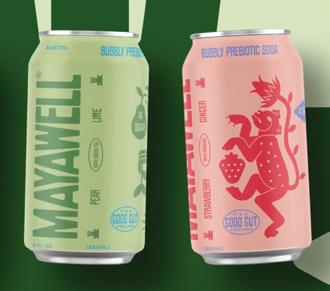

Cactus waters have been a plant-based beverage mainstay for years, but it took Magic Cactus to pair the replenishing refreshment of cacti with a sessionable low-dose symphony of hemp-derived THC, CBG and CBD. Sweet to the taste with a mild lift in each can, Magic Cactus has made a stylish, highly drinkable and balanced line of mood-enhancing beverages that ought to provide newcomers to the cannabis category with an easy entry point while also giving those with a little more experience a flavorful Southwestern buzz.
Olipop Ridge Rush

Olipop has been in the midst of a veritable innovation onslaught for several years now, releasing new flavors with impressive regularity to fill out its portfolio with all the major soda fountain favorites in order to firmly establish itself as a modern CSD with a BFY version of whatever flavor may desire. We were particularly taken with this year’s Ridge Rush, a crisp citrus soda flavor that one might say ‘Does the Dew’ in a way that fully satisfies the palate, though what gamer cred it may earn is still TBD.

If Loom is indeed “Juice from the Future” as its slogan proclaims, then we’re happy to declare that the future is now. On its “Space Disco” visuals alone Loom Juice is eyegrabbing, sleek and simply cool, but it’s the crisp flavor of its product line that elevates this brand to Best Of the Year status. With offerings like Cosmic Candy Grape, Aurora Orange and Moon Punch, Loom offers a refreshing beverage that in texture is halfway between juice (15% per bottle) and enhanced water, but full of flavor that in our opinion fully lives up to the bottle it fills.
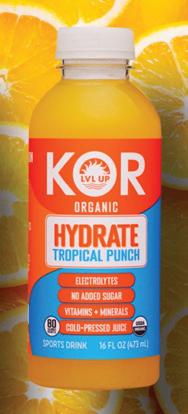
KOR Shots is growing up. The juice shot brand rolled out its full-size, 16 oz. Hydrate sports drink line this year and we personally couldn’t be happier with how they’ve turned out. In a category that has been disrupted by upstarts over the past few years, KOR’s move into sports drink makes sense from the strategic lens, but it also works beautifully from the product perspective as well. With flavors such as Tropical Punch and Superfood Quench (made with blue spirulina providing natural color) KOR Hydrate lives up to the quality standard this brand established in its mini-sized OG format.
Casamara Club Superclasico

Is it a soda? A mocktail? Neither – it’s a “superclasico,” and we’re in love. Casamara Club’s first “cocktail-strength” non-alc beverage drinks like a bittersweet aperitivo, balancing earthy botanicals and Italian chinotto with bright sweetness of berries and Demerara cane sugar. It’s unique, attractive, and ultimately its own thing.

We’ve long enjoyed Wildwonder’s sparkling gut health beverage portfolio, but their collaboration with RuPaul’s Drag Race champ Nymphia Wind does something extra special – it’s a banana flavored beverage you want to go back to again and again. Made with banana puree, vanilla bean and “fresh brewed” marigold flowers, the drink is decadent, clean and worth celebrating.

HappyPop is the latest venture from Koia cofounders Maya French and Dustin Baker, and we feel by now we can say that they know a thing or two about formulating a quality beverage. Their functional, better-for-you energy drink brand is readily approachable with fruit-forward flavor and a 100mg organic caffeine kick to boot. With strong branding, a tasty liquid and an energypositioning that sets it apart from other “Pop” brands, we’re quite happy with this lineup and overjoyed to see what else this brand has in store for us.

Did someone say Negroni? The BevNET team takes its bitter cocktails quite seriously, if you were wondering, so believe us when we say that Lapo’s non-alcoholic canned riff on the classic meets the moment. Made with orange, juniper and bitters, this is a zero-proof drink fit for a Count (or a Craven).

What is it about sparkling tea that captures the imagination of designers? We’re not totally sure, but keep ‘em coming. Following past honorees like Sound and Sarilla, this year sees OOSO Sparkling Tea pick up the award thanks to a bold-yet-minimalist design on its 8 oz cans. Against a green (Green Tea) or orange (Hibiscus) backdrop, it’s all black bars, straight lines and clear callouts to its three main ingredients. The simple four-letter name is a slick design choice in itself: short, sweet and memorable.

Matcha in a can has been a notoriously tough ask for even skilled formulators; if that was all that Taika managed to do here, we’d be pretty happy. But matcha is just the start: Taika’s bold, adaptogen-boosted take on “creative fuel” balances the gentle sweetness of strawberry essence with creamy macadamia milk and organic ceremonial grade matcha. It’s a reach into functionality and flavor that would be easy to get wrong, and we’re so glad they didn’t.



By Martín Caballero
Whether it’s global political strife, acute natural disasters or the allimportant price of eggs, living in 2025 is a veritable buffet of anxieties and uncertainties. And in such times, consumers reach into coolers for something comforting and familiar.
That’s one thing we heard from ingredient suppliers and flavor houses in our preview of flavor and ingredient trends at the start of the new year: nostalgic products and “flavor escapism” are expected to be major CPG trends in 2025. That in itself is of little surprise, but it’s a shift that has the potential to dampen the importance of functional claims and betterfor-you attributes, accelerating a change that some already see happening. Rather than touting health claims (and exposing themselves to potential litigation), brands may respond to functional drink fatigue by “incorporating beneficial ingredients without loudly broadcasting the benefits, trusting consumers to connect the dots,” as noted by beverage development house Flavorman in its annual trend preview.
That’s not to say that consumers have radically changed; they still “are seeking a balance of adventurous taste profiles and wellnessdriven goals,” said Kerry Group’s Global Research and Insights Director, Soumya Nair, in the company’s 2025 Taste Chart. As external factors – from the rise of Ozempic to the rapid virality of social media-driven drink trends – exert pressure on CPG, many are predicting sweet, versatile flavors and ingredients from around the globe will be the star this year, whether they bring functional benefits or not.
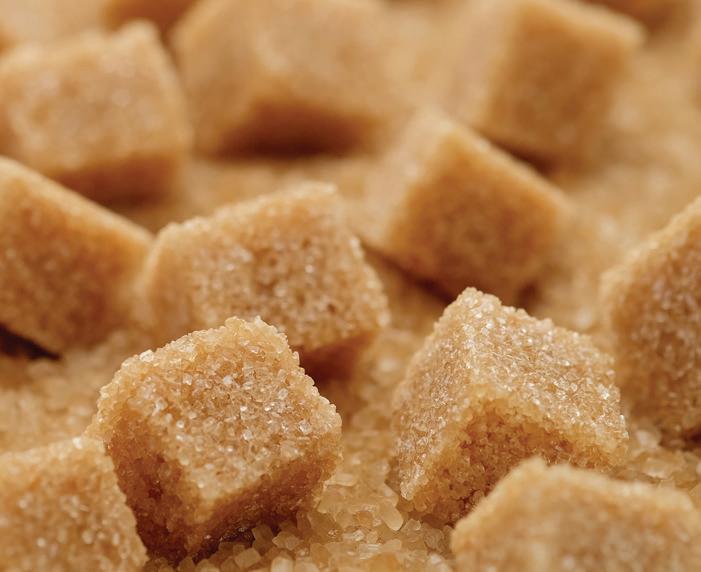
With the CPG landscape so fragmented across demographics, categories, need states and other classifications, it’s not entirely surprising to see an increased prioritization of versatile ingredients from industry watchers.
For Tastewise, it’s something like Hawij, a Yemeni spice that’s little known in the U.S. but its use has grown 75% in the last two years. The spice, with notes of cinnamon and ginger, can be used in cooking and ticks several important boxes — purported benefits include immunity, digestion and anti-inflammation — but Tastewise sees it as a driver specifically within coffee, where it has potential to offset declines in pumpkin spice latte (-8% in the last two years) that suggest consumers have flavor fatigue.
Other players found something sweet to look forward to in 2025: natural sugar substitutes that bring consumers closer to nature. In tagging brown sugar as its “Flavor of the Year” for 2025, flavor house T. Hasegawa highlighted the ingredient’s popularity with two key groups that often overlap: chefs and social media influencers. Brown sugar’s versatility fits with the needs of both demographics; the rich flavor profile works as a culinary ingredient or with drinks ranging from Old Fashioneds to brown sugar lattes, and the warm color and indulgence factor means it’s ready-made for sharing photos.
For Dutch flavor house dsm-firmenich, color is arguably as important as flavor, noting that its choice for 2025 Flavor of the Year, “Milky Maple,” closely aligns with “Mocha Mousse,” named by Pantone as its Color of the Year 2025. In terms of taste experience, it promises “richness and indulgent associations” that again ties back to flavors that tease an escape from immediate earthly stresses; The flavor is “an invitation for
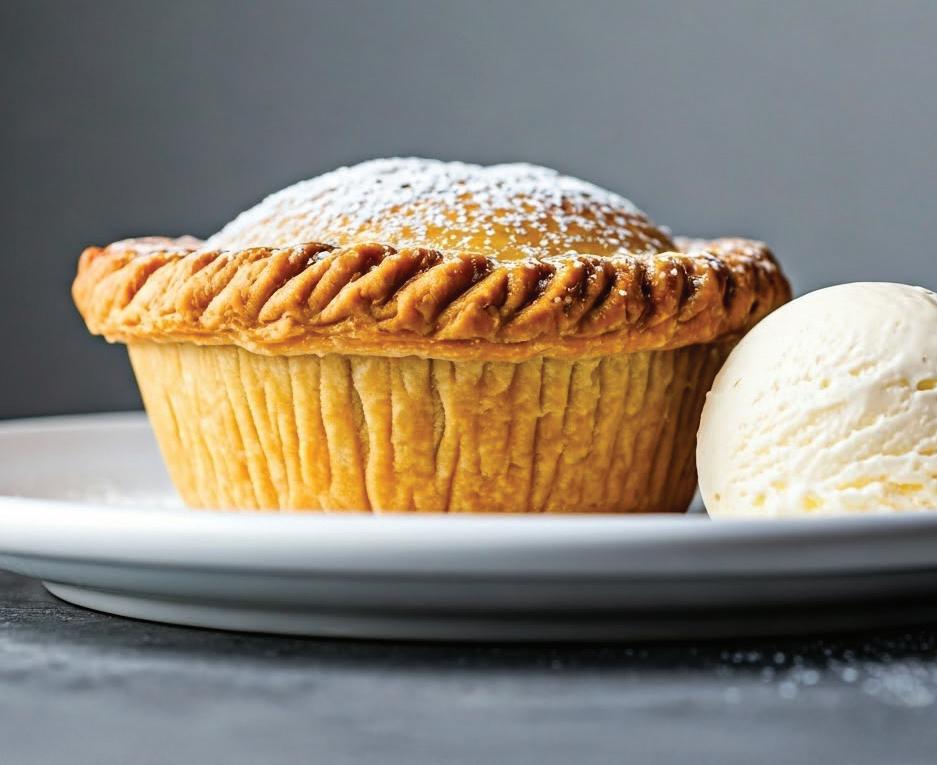
people to pause and savor a moment of pure warmth and decadence,” said Maurizio Clementi, dsm-firmenich EVP of Taste, Texture, and Health, in a statement.
According to Kerry Group’s 2025 Taste Chart for the U.S., pistachio is also expected to grow this year, building upon gains made over the past half-decade during which the nut has translated its popularity as a sweet ingredient (particularly in Europe) into other applications, most notably Hot and Dairybased Drinks and Cold and Water-based Drinks. Pistachio is one of the fastest growing flavors of the past three years, per Kerry, and its ability to pair with hot drinks like coffee and tea have helped grow pistachio product launches 8% over the past three years, and stimulate budding beverage brands like Tache and Edenesque.
With so many products on the market fighting for ever-smaller share of attention from consumers, conditions may favor those willing to take some risks, or at least not take themselves so seriously.
It’s part of a trend ADM identifies as

“unbridled experimentation,” in which a playful approach to both color and flavor helps create products that feel tailored to each customer’s personal joy. This can take the form of unexpected pairings or even sensations like cooling and heating, but it isn’t limited: as ADM notes, both highbrow (nuanced, complex non-alc cocktails) and lowbrow (candy!) flavor concepts can work here. But a simple approach is still appealing, too. ADM noted “reinventing or even updating a classic profile” as a trend; it used familiar fruit as an example, though the resurgence of better-for-you soft drinks via classic fountain soda flavors seems to align with that idea as well.
Like it or not, artificial intelligence is making an impact on flavor and ingredient development, as noted by several industry groups. Brands are using AI to enhance flavor experiences and experiment with new pairings, but its adoption may also make a “human touch” even more appealing, argues Kerry. As technology permeates all aspects of society, food and beverage products “resplendent with flavors and colors that bring human experience to life in new and unexpected ways” will be in high demand.

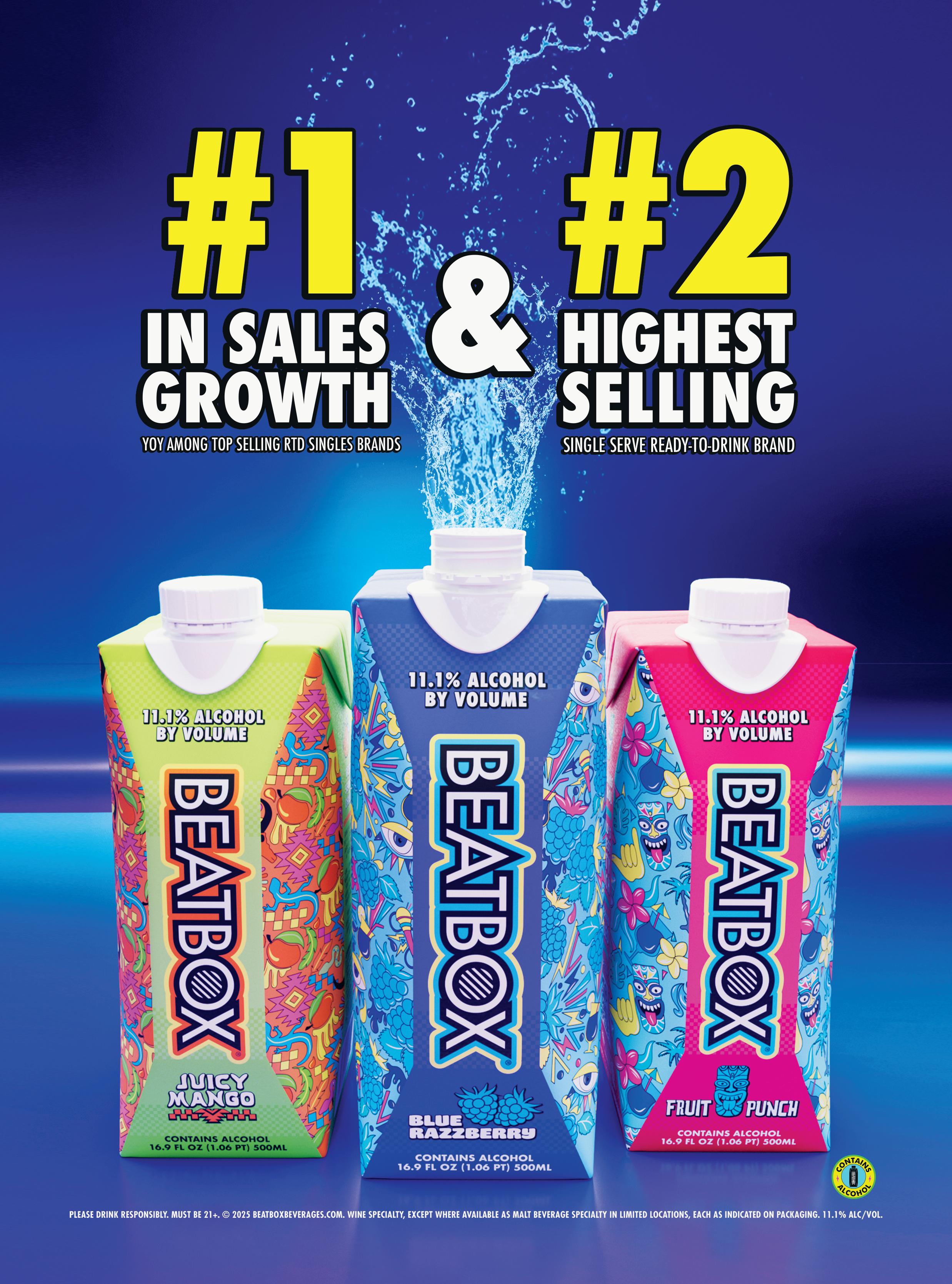
By Lukas Southard

It wasn’t that long ago that the ready-to-drink cold case offered minimal coffee options. But after years of mostly being dominated by familiar names, the set has swelled with cold brews, nitro infusions and alt-dairy lattes, providing numerous choices for the on-the-go coffee drinker.
With that increasing competition, lots of high-end or innovative coffee brands have come and gone; meanwhile, recognizable names like Starbucks, Monster, and relative newcomer Dunkin’ have continued to dominate share with sweet, calorie-dense offerings. So how should new brands battle the Vanilla, Caramel, Mocha varieties?
Some aren’t - they’re just taking their otherwise high-quality ingredients and mixing them in with those sweet profiles. Others are taking a different route, however, iterating on coffee’s caffeine-centric functionality and either doubling down on enhanced energy or focus propositions, or other functions, like protein, hydration or vitamins.
Here, the sweetness is paired with cross-category value propositions for health-conscious consumers that go beyond lower calories or higher caffeine. Still, with the divide so
strong between beverage giant distributed brands and the rest, even brands bringing functional ingredients packaged as indulgent treats need patience, scale and a segmented growth strategy to brew success in RTD coffee.
Starbucks, as it has for years, still sits comfortably at the top of the RTD iced coffee category, dominating about 63% of cappuccino/iced coffee dollar sales in the last 52-week period ending December 29, according to Circana’s most recent MULO+C data. Monster trails Starbucks in the set with nearly 22% of dollar sales.
Leveraging their respective names’ weight in coffee and energy, the two companies have leaned into what consumers are demanding: dessert as an on-the-go coffee drink.
“Leaning into indulgence is a very viable play with coffee,” said James Watson, Rabobank senior beverage analyst.
In March 2024, Starbucks introduced canned coffee drinkers to updated packaging of some of its RTDs. The refreshed labels called out higher caffeine levels while also

going after sweet-toothed consumers with new flavors like Caramel Waffle Cookie, Dark Chocolate Brownie, Vanilla Sweet Cream and Oatmilk Brown Sugar.
In the last two years, The CocaCola Company has attempted to pull share in coffee by pushing deeper with its two licensed brands: Dunkin’ and Costa Coffee. On the one hand, the Dunkin’ Bakery Series screams ‘sweet-treat’ with flavors like Cake Batter Donut or Coffee Cake Muffin.
On the flip side, Costa offers a more toned-down approach with familiar offerings like Mocha or Caramel that are 150 calories or less and claim to have 40% less sugar than leading RTD coffee drink brands.
Meanwhile, Wisconsin-based Trilliant Food & Nutrition’s Victor Allen’s brand made its own licensing moves starting with Snickers- and Twix-flavored coffees and adding in Breyer’s Cookies and Cream ice cream and Cinnamon-Toast Crunch branded drinks. The strategy appears to be paying off with dollar sales up 26.2% and Victor Allen’s edging out La Colombe in MULO.
It could be the pendulum swinging back after specialty roasters flooded shelves with pricier products or it could be price-conscious consumers looking for something satisfyingly sweet, but “people just want good flavor and they are willing to sacrifice some health benefits for that,” said Los Angeles Distributing Company president Arthur Flores.
Cold brew, once seen as a big opportunity in RTDs, has seen numbers return to growth. Dollar sales were down 35.5% to $163.1 million in Circana’s January 2024 MULO data; in the latest 52-week period, cold brew dollar sales hit $221 million up just over 1% year-over-year. Unit sales were down 0.5%.
Part of that recovery might be coming from following the caffeinated indulgence playbook.
With a nod toward familiar sweet treats, Bones Coffee brought its playful style to five new cold brew latte flavors – Sinn-o-bun, French Toast, Holy Cannoli, S’morey Time and Electric Unicorn Fruity Cereal. While still trailing far behind category leaders, Bones is now just behind RISE Brewing and Stok in cold brew with sales up 57,818.3% to $6.1 million in the last year. Unit sales also skyrocketed to 91,858%.
While Chobani’s $900 million acquisition of La Colombe signaled the yogurt and creamer brand’s confidence in expanding the cold brew set further into premium RTDs, La Colombe has
also brought sweeter innovation into its portfolio as well.
La Colombe has launched seasonal cold brew latte varieties like Strawberry Mocha for Valentine’s Day or Peppermint Mocha during the holidays. As a whole, La Colombe continues to grow its dollar sales, posting a 212% increase as unit sales were up 279.5% in MULO.
Some of La Colombe’s success comes from its “consistency” in the category, Watson said. “They have a novel approach which includes a differentiated taste to other [RTD] coffees. They have experimented with oat milk, other flavors and caffeine levels, but their overall portfolio has been fairly narrow.”
The company has also been “pretty aggressive” with its distribution, first with Molson Coors and now with Keurig Dr Pepper (KDP), Watson added.
Importantly, they have a price point that resonates with RTD coffee drinkers, Watson said.
“[RTD coffee] is a hard category to execute on,” he said. “When we’re thinking about startups coming in, the hurdle of technical production is much higher and takes more time, more money, and maybe more luck to get right.”
Whether it’s JAB Holdings’ Stumptown or Nestlé’s Blue Bottle, specialty roasters that have gone deeper in RTDs have benefited from the deep pockets and distribution networks of their ownership groups
Yet for L.A. Distributing, it has become harder to sell another premium canned coffee.
“There is no more room in the high-end coffee category,” Flores said. “If we brought on another cold brew right now, our retailers would say: ‘What are you doing?’ Every coffee shop wants to start a cold brew to compete with Stumptown and Groundwork but you would be like fifth or sixth in line. You missed the boat.”
If the cold brew set has become too competitive and the top of the category has gone all-in on flavor-first indulgence, where does that leave insurgent brands to innovate?
One set of brands is looking across the beverage landscape towards the growing functional space. Consumers will pay a little more for the added benefits, Watson said.
“Canned coffee is not the best place to get a true craft coffee aficionado experience,” he said. “But it’s much easier of a place to get protein, mushrooms or adaptogens and everything else. And that’s why this is worth a little bit more.”
Four Sigmatic, Laird Superfood and Clevr have all stayed out of RTDs despite the rise of mushroom coffees. The few success stories in fungi-infused java are Taika and Pop & Bottle, which have positioned around adaptogenic lattes formulated with functional mushrooms like reishi and lion’s mane.
CBD had its moment with Altitude Beverage which tried its hand at the early enthusiasm around the cannabinoid but discontinued the CBD coffees in 2023, opting to go after infused mocktails instead.
When it comes to functional it might just be about leaning into an understandable trend like high-protein that is playing out across food and beverage. According to data


“From our perspective, the future of the category is definitely in better-foryou,” said Jordan DeCicco, co-founder and CEO of Super Coffee, an early adopter of functional lattes.
When the business launched in 2015, the focus was on protein-fortified lattes with less than 100 calories per 12-ounce bottle. Early enthusiasm for the brand’s core product led it to move quickly with channel expansions and new flavor variations.
“That turned out to be the wrong strategy,” DeCicco said. “We learned that you have to segment by channel, customer and usage occasion. This is what Starbucks has done really well over the years. They always relied on frappuccinos, but they’ve differentiated their portfolio and given different consumers different need states, especially within different channels. We’ve followed that approach.”
Although Super Coffee has tested other formats like packaged grounds, pods, creamers or sparkling drinks it has moved deeper with its core value propositions: protein and energy.
With protein, Super Coffee is currently launching a Protein+ line in Mocha and Vanilla Latte flavors with 25g of protein per 12 oz. bottle. Aside from a brief foray fully into energy drinks, the brand expanded with Super Coffee XXTRA, with 200mg of caffeine and 7g of protein as well as a Double Shot Espresso And Cream line that doesn’t contain added protein or MCT oil.
Other brands like Stok are doubling down on the opportunity to cross over into energy. The brand just launched Cold Brew Energy, which calls out its focussupporting attributes on front-of-pack by incorporating ginseng and guarana in the formulation. Black Rifle Coffee took
a similar approach to “focus” by fortifying its RTDs with MCT Oil and amino acids. The brand also went directly into energy with a portfolio expansion of coffee-free caffeinated drinks this year.
Hydration is the latest functional trend to make its way to coffee. Former Coke executive Michael Fedele launched Throne Sport Coffee last year, leveraging the high name recognition of key investor and Super Bowl-winning quarterback Patrick Mahomes.
The electrolyte-infused canned coffee has targeted the “limited options” for “active consumers” seeking an RTD brew “before, during and after athletic exertion,” Fedele told BevNET Magazine.
The brand went so far as to get NSF Certified for Sport status and trademark “Coffee PLUS+,” signaling the added benefits of B vitamins, electrolytes and BCCAs (branched-chain amino acids). Although the brand is going after the fitness-oriented energy drinks consumer in the convenience channel, Throne is “coffee at the end of the day” and prefers placement in that section of the cold case, Fedele said.
“Active adults and athletes consume a lot of coffee, and oftentimes they want something with very little sugar or dairy because they’re mindful of what they’re putting into their bodies,” he said.
After initially hitting the market with 4-SKUs (Black, Mocha Java, Salted Caramel and French Vanilla), the brand recently unveiled a Mint Mocha variety and has gone chainwide in QuikTrip, adding to 1,100 locations to its over 4,000 store footprint. It is also readying to launch into about 250 Whole Foods Markets in March.
The jury is still out on the marriage between sports drinks and RTD coffees but Rabobank’s James Watson does believe that the category’s future lies in bringing more functional ingredients and new value propositions to consumers.
“RTD coffee is waiting for a virtuous cycle,” he said. “There comes a point in the development of a category where you should have a bunch of new entrants that generate a bunch of new shelf space and a bunch of new eyeballs from consumers. It won’t last forever, but it’s a wonderful growth phase and although [RTD] coffee has grown wonderfully without all of that, it would really benefit from a cou ple of years of it.”


Fuel & Elevate recently swept America’s Best Spirits and Hemp Beverage Competition with nine Double Gold Medals, including a Double Gold Best in Show across four of its Functional Instant Coffees.
Explorer Cold Brew launched at Whole Foods Market in five regions in December, marking a significant milestone in its journey to bring high-quality, organic cold brew coffee in multiple caffeine options to more customers. They are carrying the brand’s single-origin Classic and 99.9% caffeine-free Daydreamer cold brew concentrates in its 32 oz. format.
Throne Sport Coffee, the coffee brand created by former BodyArmor executive Michael Fedele in collaboration with Kansas City Chiefs QB Patrick Mahomes, has landed new distribution with Hy-Vee and Quik Trip is set to launch four SKUs in 250 Whole Foods Market stores in March. Additionally, the brand has launched its newest RTD flavor, Mint Mocha. Each 11 oz. can has 150mg of caffeine.
Chameleon’s most recent launch is the Chameleon Girl Scout S’mores Cold-Brew Latte flavor. An ode to the classic campfire treat, the new offering features dark French roast cold-brew and sweet milk blended with notes of creamy chocolate, toasted marshmallow and graham crackers. Chameleon Girl Scout S’mores ColdBrew Latte is available at Whole Foods Market stores nationwide, and online at ChameleonCoffee.com and Amazon.
Beekeeper Coffee recently underwent a significant reformulation that includes upgrading to organic coffee and honey, as well as lowering sugar and calorie count on all latte SKUs.
California-based coffee roaster Klatch Coffee has introduced Ready-to-Go Espresso, a ready-to-use bottled espresso concentrate designed to be used for cafe-style beverages. The concentrate is available in an 8 oz. bottle for $24.95 online and at Klatch Coffee’s Southern California locations.
Stok has dropped what it claims to be the first RTD decaffeinated cold brew available in grocery stores nationwide. Offered in the brand’s top two performing roasts – Unsweet and Not Too Sweet – the new products

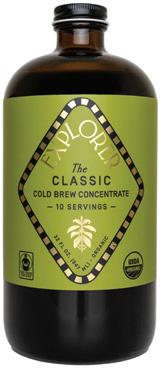





feature a white label to differentiate from the brand’s caffeinated line.
Lua Coffee, founded by Vietnamese immigrant Terri Nguyen, offers authentic flavors with RTDs like Cold Brew, Oat Milk Latte, and Vietnamese Style blends, plus Pour-Over and T-Bag Pouches! It is distributed through Pod Foods, KeHE, Sysco, and Chefs Warehouse. Their mission is to provide premium Vietnamese-style coffee that fuels your day while giving back to those in need. Every purchase supports their commitment to donating 1% of their gross proceeds to St. Jude’s Children’s Research Hospital.
Dice Coffee Ice Cubes is now available in select Los Angeles retailers and is preparing to expand into larger-scale retailers in the coming months. They also have a new flavor in development that is soon to be announced. Additionally, Dice was named a finalist in Beverage Digest’s 2024 Awards for Best New Drink Concept.
Copper Moon Coffee proudly introduces its Organic Swiss Water Decaf Single Cup Pods. Each medium roast, convenient single-serve pod delivers a rich, full-bodied flavor of nutty cocoa, sweet florals and a hint of spice, through a zero-chemical decaffeination process. The new product uses the Swiss Water process, which gently removes caffeine from arabica beans with pure water, delivering a coffee that’s 99.9% caffeine-free.
Chicagoland-based 3Legged Coffee Brewery introduced two new flavored nitro cold brew cans including Campfire S’more and Chocolate Mocha. The company is dedicated to crafting zero-calorie, all-natural cold brews that taste like treats without any junk.
Gaffle Coffee launched a new origin, ‘Colombia’. Its Colombia cold drip has notes of orange, ginger, licorice, and green herbs. It’s great to use in your favorite coffee drink or on its own. Gaffle’s bottles are singles serving and meant to be enjoyed on the go or on the rocks. The brand sells cases of 24 and its starter pack, which includes all 4 of its originals.
Black Rifle Coffee Company is making its first foray into the $20 billion energy drink category with its Black Rifle Energy line, slated to debut in January. Available in four flavors at launch – Freedom Punch, Wild Frost, Ranger Berry and Project Mango – the


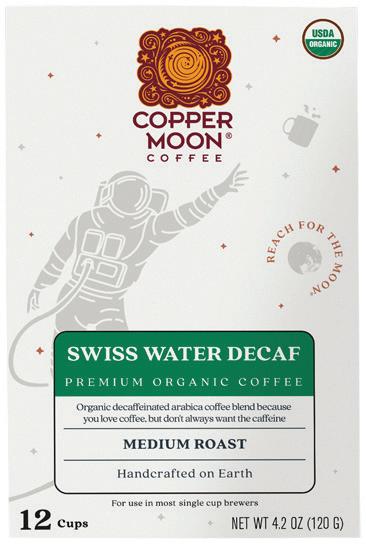



zero-sugar energy drinks are crafted with naturally sourced caffeine.
La Colombe has unveiled its newest canned draft latte flavor, Strawberry Mocha. The LTO, crafted with natural strawberry flavoring and real cocoa, contains 50% less sugar than the average RTD flavored coffee, according to the brand. La Colombe Draft Latte Strawberry Mocha is available at major retailers nationwide through April 15 with a SRP of $3.29.
Dunkin’ unveiled a new collection of seasonallyinspired at-home products, including Merry Mint Bark Iced Coffee and Winter White Razz Iced Coffee. The iced coffees are available in 40 oz. multi-serve bottles.
Super Coffee announced the return of Super Coffee Espresso, last seen in 6 oz. cans that launched in 2019 before falling victim to COVID supply chain challenges. The new version upgrades to an 11 oz. can (SRP $2.49) in three SKUs: Vanilla Espresso & Cream, Espresso & Cream and Espresso Black.
Specialty Vietnamese coffee brand Nguyen Coffee Supply headed to the mass market with a launch into 500 Target stores nationwide, a move that grew the brand’s footprint for its RTD robusta bean coffees by over 300% in 2024. Target carries the New York-based brand’s three canned flavors –Classic Black Cold Brew, Coconut Cold Brew, and Condensed Milk.
First introduced in 2016, ready-to-drink Starbucks cold brew is now available in 11 oz. cans in three new flavors: Vanilla Sweet Cream, Chocolate Cream and Salted Caramel Cream. The new drinks are crafted with a custom blend of Starbucks beans specifically selected to brew without heat “for a deliciously smooth taste,” according to the brand. Starbucks’ new cold brew cans are available for $3.59 each.
Two favorites from Starbucks — Brown Sugar Cinnamon flavored coffees and Cold Brew Concentrate -- return for a second year, bringing the flavors of the Starbucks Iced Brown Sugar Oatmilk Shaken Espresso home for another season. Coffee lovers can also spring into the season with returning favorite Starbucks Toasted Coconut Mocha Flavored Coffee.

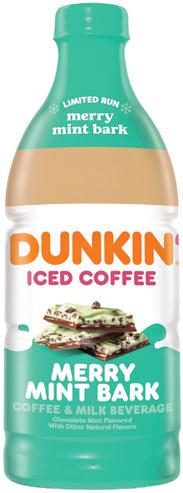
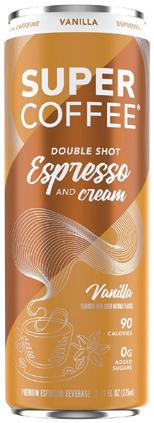


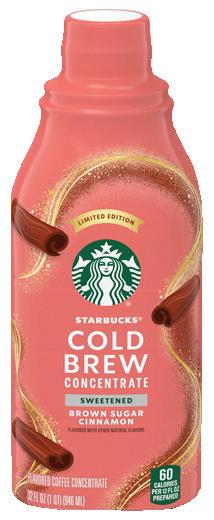


By Brad Avery
If you haven’t heard by now, word on the street is that consumers aren’t drinking so much alcohol these days. So in a world where booze is in decline, what’s a cocktail mixer brand to do?
According to Circana, a Chicago-based market research firm, the $794.2 million cocktail mix category declined by 8.8% in the 52-week period ending December 29, 2024 in U.S. MULO and c-store accounts. Within that set, liquid mixers were down 1% to $404.7 million, while tonic waters and club sodas dropped a steep 16.5% to $377.9 million; although the significantly

smaller powdered cocktail mix subcategory was up 26% to $11.5 million.
That slide in mixer sales is coinciding with a sharp rise in adult non-alcoholic (ANA) alternatives like zero proof spirits, non-alc beer, and the so-called “California sober” lifestyle with THC beverages. It’s also not just whether or not consumers are still drinking, but it’s also how they are drinking as those who still turn to alcohol to unwind are also adopting new products like ready-to-drink cocktails and spiked seltzers.
ANA is looking to become a $4 billion category by 2028, according to a report by beverage data firm IWSR – but just because some drinkers are going dry doesn’t mean mixer sales have to dry up as well.
Premium mixer brands have, for several years, embraced
a multi-faceted identity, from pitching their drinks as both cocktail ingredients and as standalone refreshment to adopting a mocktail-positive approach. Betsy Frost, CEO of premium brand Q Drinks, said that the category now needs to go beyond even the mocktail occasion, transforming from a product intended to “elevate the cocktail experience” into a product that will “elevate all drink experiences,” whether it’s an after-work margarita or turning the afternoon java break into a sparkling cold brew occasion.
“Even though alcohol purchases are going down, penetration against premium alcohol versus premium mixers is still one to four, essentially,” said Frost, who joined Q Drinks in December after two years as CEO of another ANA brand, HopTea producer Hoplark.
“People are drinking less across the board, [but] when they are drinking they want it to be a better experience,” she added. “There's still a lot of runway for premium mixers as it sits today.”
For Q, this new focus can extend the brand into new territory (and new channels), such as a partnership with Peet’s to serve the aforementioned sparkling coffees at the company’s brickand-mortar cafe locations.
By necessity, the rise of ANA has meant changes to the store shelf as retailers have embraced the trend and built new sets. For mixers, the shuffle has so far brought mixed results and varies from store to store, Frost said, but with change comes opportunity.
Brandy Rand, founder and CEO of advisory firm Thirstwell, told BevNET via email that most retailers still separate traditional mixer brands away from ANA sets, but “where the blur tends to happen is around NA canned RTDs that might have the same flavor profile as a line of more premium mixers.”
“Most adult NA brands promote being consumed on their own, many with functional ingredients, which is distinct from pure play mixer brands,” Rand wrote.
“What’s interesting is that a lot of consumers, especially Gen Z, report choosing adult non-alcoholic as a trade-up to soda or water,” she added. “This is where the premium aspects come into play – you want something that feels a bit more sophisticated for an alcohol occasion (but without the alcohol). And for those consumers who are replacing a glass of wine or beer or cocktail with adult NA, they want the flavor and feel of a ‘real’ drink. If we look at the impact premiumization has had on the alcohol industry over the past 20 years, it’s clear people are willing to pay more for quality beverage products as an affordable indulgence.”
Even if the premium products don’t have booze. At premium mixer brand Fever-Tree - which recently sold a minority stake to beer giant Molson Coors - Charles Gibb, CEO of Fever Tree North America, said that partnering with ANA spirits brands like Seedlip and Ritual Zero Proof has allowed it to more regularly showcase its mixers alongside those products in grocery stores.
“For us, the rise of non-alc and the growing interest in non-alc is, if you like, another string to our bow,” he said.
Beyond ANA, there’s even some competition for facings from emerging categories like functional CSDs, which are quickly eating up shelf space in conventional outlets. There’s also more competition from rising brands within the premium mixer set

such as Blake Lively’s Betty Buzz.
To keep up to date, the established brands have embraced new packaging: Fever-Tree has introduced cans alongside its classic glass bottle format, while Frost said that Q will be unveiling a new pack later this year.
“It really is about inspiring the making and the inspiration of the drink and the occasions,” Frost said of the forthcoming refresh. “It’s bringing that into new apertures to give people more inspiration to create at different times of the year.”
It’s not just NA that’s changing the game for mixers. The category must also now contend with the rise of alcoholic RTD cocktails which manage to provide an even more convenient form factor than canned mixers (after all, why open two containers when you could just crack open one?) In its RTDs Strategic Study 2024, IWSR reported that alcoholic ready-to-drink beverages “are increasingly viewed as an affordable alternative to spirits, beer and wine” and are on track to continue seizing share of the total beverage alcohol market in the coming years.
In the U.S., RTD volume sales are expected to grow at a CAGR of 3% between 2023 and 2028, with “hard tea, FABs [flavored alcoholic beverages] and cocktails/long drinks” expected to be the strongest volume drivers, even as overall growth of the segment slows and new innovation becomes less important to the set.
“While the pace of innovation has tailed off, volumes continue to grow as we see less reliance on innovation to drive performance, and consumers wanting to minimise risk on new products they do not know,” Susie Goldspink, Head of RTD Insights, IWSR, said in a statement announcing the report last year. “At the same time, effective flavour options and variety packs are helping to sustain growth in many markets, especially among younger consumers – and innovation remains key to engaging with this age cohort.”
Citing NielsenIQ data for the 52-weeks ending December 28, 2024, Brian Krueger, VP business development and portfolio strategy at Bump Williams Consulting, said that RTD cocktails grew 19.5% last year, while ready-to-serve drinks were up 8% –rising a total of $411 million to over $2.5 billion in retail sales in xAOC, liquor and convenience. That mounted up to a 1.3 point gain in market share of the total alcohol market, drawing primarily from whiskey (0.7 points) and vodka (0.6 points).
But does this segment pose any real threat for mixers?
While consumers are certainly slowing down their drinking – particularly beer – Bump Williams Consulting president Dave Williams said that the decline is not as dramatic as it’s sometimes been portrayed but rather what we’re experiencing is “more about shifting around what people are drinking.”
“I certainly think some of that ties into mixers because traditional spirits were sort of emerging as the winner in this beverage alcohol battle,” Williams said. “What we've been seeing recently, though, is that shift in how a lot of these consumers – whether they're traditional spirits drinkers or whether they're beer drinkers shifting into spirits – are going after more of these ready-to-drink and, to a lesser extent, readyto-serve type options.”
While premium mixer brands acknowledge the competition from RTDs, they feel strongly that in the end quality will win out over a slightly more convenient form factor.
According to Frost, Q recently completed a source of volume study which found that the mixer brand was actually taking consumers away from RTD cocktails, and suggested that some people may be introduced to cocktail culture through the convenient canned products but later become interested in mixing their own drinks at home.
“I think what you'll start to find is you don't get the full quality, or the most robust or full experience, in ready-to-drink,” she said. “There will be a moment where people come back and they're like ‘Oh, my God, it's not that hard to make my own. It's just two steps, or it's just three steps, and the experience I get is so much better.’”
At Fever-Tree, Gibb said that data shows alcohol RTDs primarily source volume “first from beer, second from wine and third from spirits,” retaining an edge for mixers, even as the convenience factor means it’s “definitely a factor that’s out there” when it comes to evolving habits, but it’s not yet a “major” factor for the brand.
“They're having an effect on the market, there's no doubt about that, because everybody's very excited about them,” Gibb said. “They're taking up an awful lot of space in retail. They're taking a lot of focus in retail. But again, when you look at the brands that are really working, there's really only one or two in each of those categories, and everything else is very small by comparison.”
Williams concurred that alcoholic RTDs are “certainly seeing more adds than deletes” in retail, but the slowdown in innovation has meant retailers are able to prioritize higher performing brands.
And although spirits like whiskey and vodka may be losing share, tequila continues to rise and top brands like Tito’s are holding steady, with vodka overall still performing well, he added – which presents one possible path forward for mixer brands when it comes to sorting their priorities.

Chuala Tonic Water completed the first full production run of its award-winning Chuala Pomelo, a vibrant grapefruit tonic water designed to offer a refreshing twist to traditional mixers. This addition complements Chuala’s existing lineup, which includes Chuala Proper, a classic tonic water; Chuala Modern, a botanical tonic; and Chuala Zero, a zero-calorie, zero-sugar option. With its bright citrus profile, Chuala Pomelo Tonic Water broadens the brand’s range, providing an exciting option for consumers seeking diverse flavors.
Brewt's, makers of all-natural mixers and canned cocktails, has taken its once limited-edition Lavender Margarita Mix, made with real squeezed Mexican lime juice, not from concentrate, orange blossom water, and real lavender buds, and added it to their always available line-up of allnatural cocktail mixers. The Lavender Margarita will make its retail debut alongside Brewt's Margarita and Brewt's Spicy Margarita in Walmart stores this spring.
Miche Mix, the #1 Michelada mixer in Mexico, is experiencing double-digit growth in the Mexican market. It sees a clear opportunity in the U.S. to attract new consumers to the Michelada mixers category through premiumization, modernity, better ingredients, and elevated presentation, enhancing the consumer experience.
Betty Buzz came out with two mocktails in 2024: Sparkling Apple Ginger Sour Cherry and Sparkling Oak Smoked Lemonade, available on Amazon. The former is a mouthwatering mocktail with a crisp, refreshing flavor of apple, a kick of ginger, and a dash of sour cherry. Crafted with sparkling water and real fruit juice for a healthier, non-alcoholic drink. The latter is a modern twist on classic lemonade with a squeeze of orange, a dash of butter, and light bubbles. Crafted with sparkling water and real fruit juice for a healthier, non-alcoholic drink.
Crafted Cocktails’ Brown Sugar Simple Syrup is a velvety blend that adds a rich, caramelized sweetness to cocktails, coffees, and more. The company has expanded distribution, making it easier than

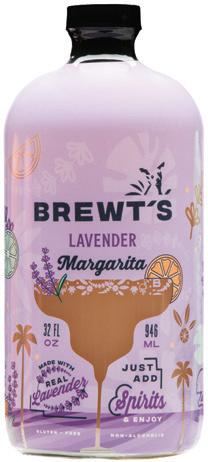



ever to stock up on Amazon, Target.com, Walmart.com, Faire, US Foods, Sysco, Specialty Foods, and Mable.
Natural Blonde is excited to begin 2025 production in February, harvesting directly from the farm as one of the only Bloody Mary mixes made with fresh yellow tomatoes. This year, the familyowned company is expanding into new markets, including Ohio – its home state – partnering with Superior Beverage Group for the launch.
Cheeky Cocktails has released two new products, Habanero Hot Honey Syrup and Decaf Espresso Syrup. The former offers a dynamic blend of heat and floral notes, perfect for enhancing everything from cocktails to marinades and desserts and is available in 2 oz, 4 oz, 16 oz, and 750mL bottles. The latter is expertly crafted in collaboration with Brooklyn’s renowned Partners Coffee and is available in 2 oz, 4 oz, 16 oz, and 750mL bottles.
Q Mixers has a new leader. The New Yorkbased premium cocktail mixer brand has named Betsy Frost as CEO, who brings over 20 years of CPG industry experience to the business. Frost takes the reins from outgoing CEO Bob Arnold, who joined the brand in 2022 after taking over from founder Jordan Silbert. The company called Frost’s appointment a “new chapter.”
Jordan Catapano and Jocelyn Dunn, sisters and owners of the celebrity bartending company This Girl Walks Into a Bar, announced the launch of two new flavors in their non-alcoholic cocktail mixer line from This Girl Walks Into a Bar: Mixers + Snacks. Joining their certified organic Margarita Mix is an organic Bloody Mary Mix and an organic Pineapple Mint Mojito Mix. The new flavors stay consistent with the brand’s commitment to sustainably sourced, low-sugar, low-calorie, non-alcoholic products.
Simple Times Mixers, a producer of cleanlabel ultra-premium cocktail mixers, has completed its people-owned manufacturing facilities expansion and signed a national distribution deal with KeHe putting Simple Times Mixers category-defining mixers on shelves across the country.




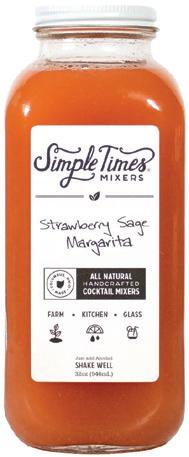

By: Ferron Salniker

From alcohol’s health halo dimming to a sales slowdown, there’s been no shortage of gloomy developments in spirits recently. But what are the overarching trends that will shape the industry in 2025, and what are the bright spots? Here are four drivers of change to look out for.
The 2023 destocking hangover is lifting, but retailers are still recalibrating their inventory strategies as they respond to a larger problem. Excluding RTDs, spirits declined -1.1% in value and -2.3% volume in the 52-week period ending December 28, 2024 compared to the prior year, according to NIQ.
That challenging sales landscape has changed how retailers are buying, said Amandra Hale, senior vice president of supplier business development for spirits at distributor Breakthru Beverage Group during the Wine & Spirit Daily Summit in January. Instead of taking the deepest deal with a large quantity that’s going to “hold them over for a couple of months,” retailers would rather buy moderate quantities more frequently, she said.
With SKU rationalization intensify ing, retailers will also continue to be “di rect about what they're taking in from an innovation standpoint,” she added.
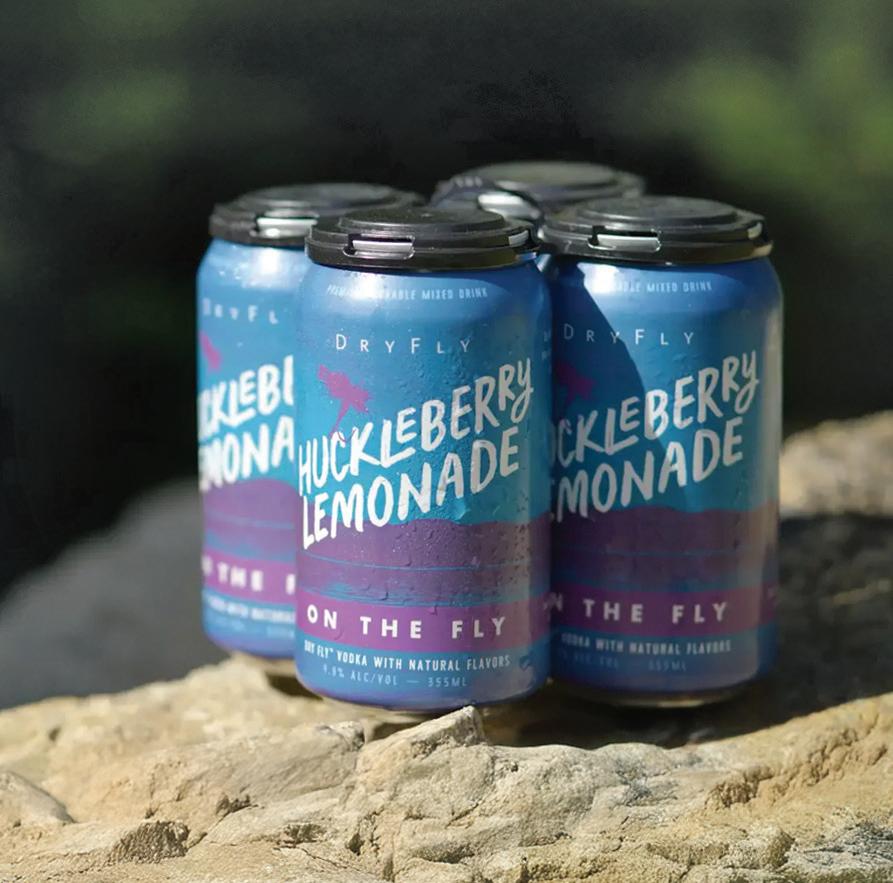
There are bright spots: expect convenience to continue to create opportunities for innovation in pack size and marketing, said Hale.
Another subchannel opportunity? Online sales in grocery chains are picking up, according to Emily Xu, senior vice president of e-commerce and marketing at Republic National Distributing Company (RNDC).
“Still a very low percentage, but definitely double digit growth compared to the rest of the industry,” she said.
Distributors like Breakthru Beverage still have high inventory levels, meaning that they’ll prioritize fast-growing categories this year. That includes adult non-alc (ANA) – which is now closing in on the $1 billion sales mark off-premise – as well as select premium spirits.
Total Beverage Ambitions Could Spark More M&A Investment activity in 2024 centered on portfolio optimization, with major strategics picking up specialized subcategories such as RTDs and non-alc, while many global bev-alc companies divested from their non-core brands. Mid-size bev-alc companies have also begun to take on the role as acquirers: Uncle Nearest scooped up Square One Organic Spirits while Heritage Distilling Co expanded its reach with the purchase of Thinking Tree Spirits. Others, such as kombucha company JuneShine or wine group Charlie Wagner have made their way into spirits-based RTDs with purchases of Flying Embers and Dry Fly Distilling, respectively. As strategics look to make up low numbers for shareholders, they may also continue to turn to acquisitions that complete their total beverage aspirations.
“I do think that there are going to be a lot of interesting brands for sale, and just depending on what their performance has been like in the last 12-18 months, it will be interesting to see some of the price tags,” said Trevor Hague, founder of brand-building firm TBD Ventures. “I think the supplier is gonna realize that it's an opportunity to go shopping and get some pretty good deals over the next year.”
Adult non-alc (ANA) RTD acquisitions may be on the list, said Hague – those products are easily added to current RTD distribution routes and make up the top growth segment in total RTDs (+167% in 2024 off-premise). Investors across the board may also
continue to boost their total beverage portfolios with more functional wellness ANA and THC-related products. After a run on premium-plus spirits deals, Hague expects to see more investment now in the mid-tier. Still, the latest NIQ numbers show premiumization is holding steady, with super premium spirits representing over a third of spirits dollar share most of the year.
Speaking of fancy, as the roster of celebrities without their own spirit brand dwindles, Samyr Laine, managing director and general partner of Freedom Trail Capital is bullish on more microinfluencers joining A-listers in the future of CPG.
“You get these people that have a really strong connectivity to the demographics you're trying to reach, and sometimes those people transact and convert better than your typical movie stars,” he said.
Yet sustained success for any celebrity-backed venture will still hinge on the brand’s intrinsic appeal.
“What we like is a great product and a great company that's investable on its own, that just so happens to have an authentic partnership with someone who can reach the masses and decrease customer acquisition costs and decrease marketing costs, and help you get a leg up as a consumer business,” said Laine.
Simmering tensions came to a boil in 2024 amidst an industry-wide slowdown and as closures of craft distillers accelerated. Smaller to medium-sized distillers have ascribed their struggles largely to the consolidation of distributors, who are reshaping the power dynamics in the industry.
Federal agencies have caught on to the power struggle too, and distributors are now under increased legal scrutiny. The Federal Trade Commission (FTC) ended last year with a bang by suing Southern Glazer’s Wine and Spirits (SGWS), the nation’s largest alcohol distributor, over its pricing practices. The suit argues that the distributor gave large chains drastically better prices in the form of steep discounts than those offered to small independent retailers.
Margie A.S. Lehrman, CEO of the American Craft Spirits Association, welcomed the crackdown on anticompetitive pricing practices “that hurt small independent retailers who are invaluable partners for craft distillers.” The wholesale market is now not designed for low-volume brands that are not national in scope, she argues. Some antitrust lawyers agree, and predict that the drive for market share is consolidating the spirits industry across all three tiers.
“It's not in Total Wine’s [Total Wine & More] interest to do single barrel picks and allocated bourbons and small runs like that – that's not where they're going to make their money,” said Ethan E. Litwin, antitrust partner at Shinder Cantor Lerner. “They're going to make their money on things that they can buy in huge volume, and that's going to put
pressure on these smaller distillers, and they'll be gobbled up.”
The fate of the case is unclear: it’s unusual for a change in administration to result in active litigations being voluntarily dismissed, but it may not be pursued with vigor by the new Republican-led FTC chair. But the larger question behind the FTC’s move points to how an industry that has flourished over the last decade – largely thanks to the innovation of smaller and craft distillers – will change under increased pressure.
Small to mid-size distillers have complained they aren’t able to access distributors, are dropped with low sales, or given insufficient attention. All this is happening as the largest dis tributors are facing “tighter margins, higher costs and shifting consumer preferences,” read a statement from RNDC in response to its January layoffs in California.
The result of the FTC’s lawsuit may have major repercussions that bleed into the larger grocery sector. Regardless, as bev-alc chains aim to raise their market share and gain more concessions from distributors, the pressure on smaller distillers is likely to continue.
“You'll just get more and more consolidation at the distiller level again, and that will lead to less consumer choice, which could lead to lower quality, but will certainly lead to less choice,” said Litwin.

“An opportunity for brands is through flavor innovation and offering products which perhaps introduce consumers to the category a little bit more”
“As of now, not only are they [the TTB] not requiring or even suggesting or intimating that there will be any type of additional warnings, they said ‘if you try to do something like that, we're going to reject your COLA [Certificate of Label Approval] application,’” said Larry Waks, a partner in the Entertainment and Media Industry Group at global law firm Reed Smith who advises domestic and international bev-alc clients.
Waks is watching California and New York, often on the forefront of regulatory development, in case there is any federal preemption.
However, the TTB has answered calls for more transparency by proposing new rules in January for nutrient and alcohol content labeling on wine, beer, and spirits. Separate rulemaking projects will soon address allergen and ingredient labeling as well.
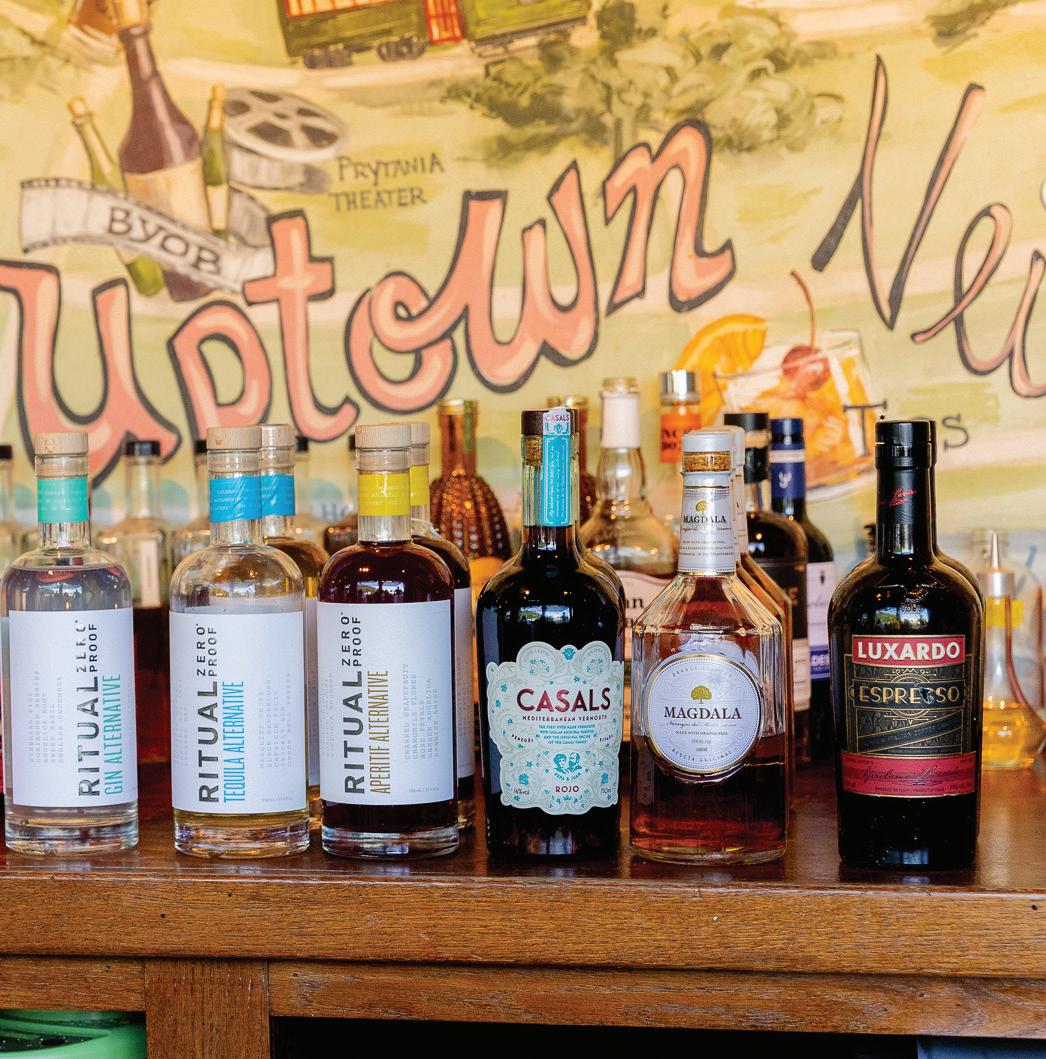
A new era of alcohol consumption has arrived: as the bevalc industry grapples with anti-alcohol headlines and Gen Z’s moderation, suppliers are also facing changes in the positioning from federal agencies on alcohol and health.
Trade groups are paying close attention to a controversial process for the Dietary Guidelines for Americans (DGA), which will be updated this year. The DGA will serve as the federal government’s official word on alcohol consumption, which could potentially lead to a shift in thinking around tax and marketing policy for the industry in the future.
The U.S. Surgeon General Dr. Vivek Murthy also issued an advisory calling for the addition of warning labels of the risk of cancer to be added to alcoholic beverages. That pronouncement would engage the U.S. Treasury Department’s Alcohol and Tobacco Tax and Trade Bureau (TTB) and isn’t likely to come to fruition anytime soon.
The changes point to the expectations of a new generation of consumers. Right now Gen Z represents 9% of buyers and only 5% of bev-alc dollar sales, as compared to all other generations whose dollar spend ratio is equal or higher.
One of the main reasons for Gen Z’s reduced alcohol consumption is an increased awareness of their own health and well-being. But nearly 30% also just don’t like the taste of alcohol, according to a survey by consumer research platform Attest. That’s not an impossible challenge for brands to overcome.
“An opportunity for brands is through flavor innovation and offering products which perhaps introduce consumers to the category a little bit more,” said Ben Attenborough, lead spokesperson for Attest.
Price remains a key factor for about 30% of Gen Z, as do expectations for brand values to align with their own – from transparency to quality ingredients to social responsibility. But how do brands check all those premium boxes for a budget-conscious generation? It's less about hitting all the markers, said Attenborough, and more about speaking to a generation that is particularly sensitive to transparency.
“It’s a difficult thing to be a value brand with great, premium ingredients, that also stands for something,” he said. “But what really annoys these consumers is if you are ingenuine about one of those things and you’re pretending to be something that you’re not – that’s the key,” he said.

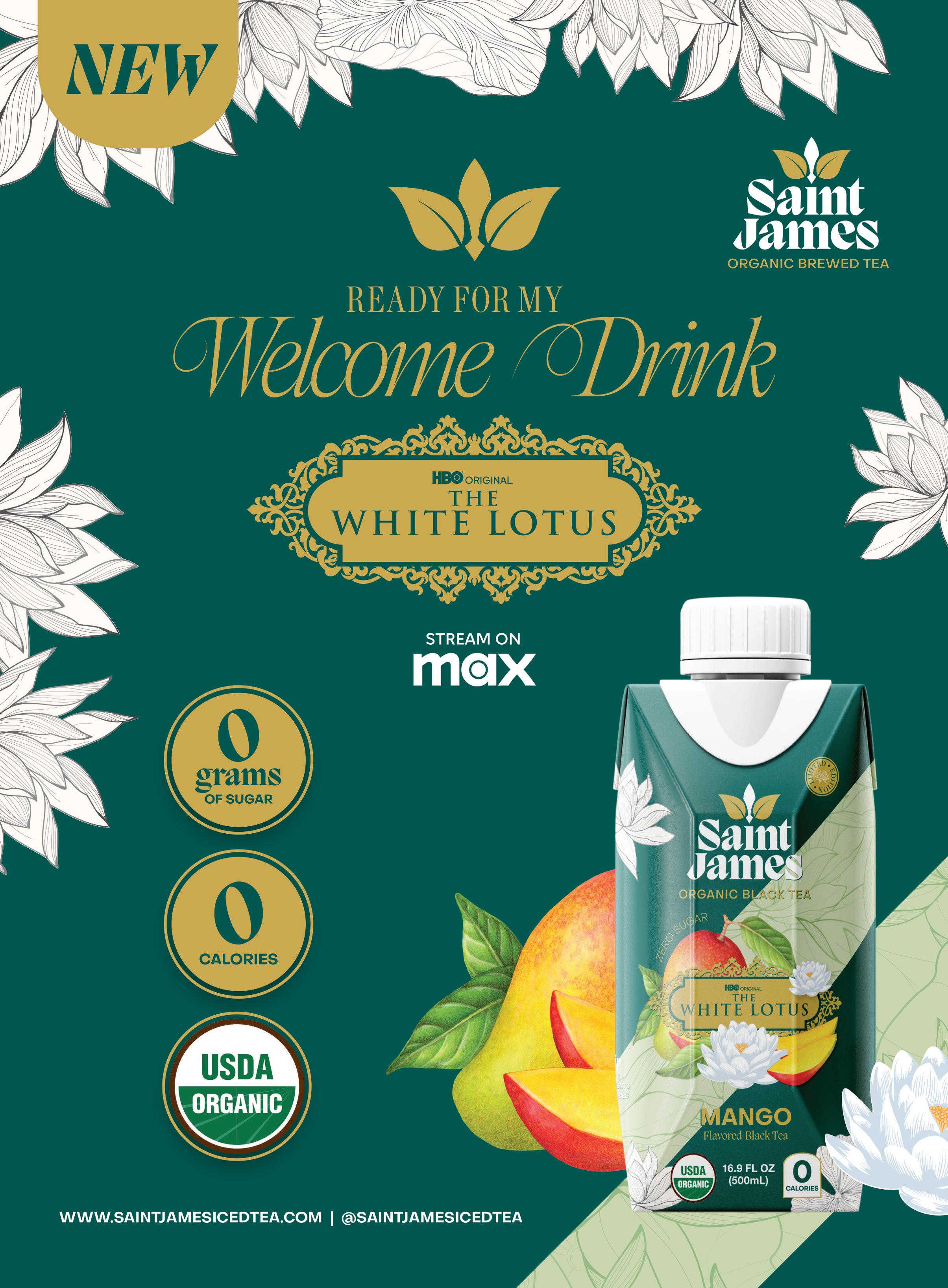

For Brands, Manufacturers, Novel Uncertainties Still Can Be Overcome by Old-Time Communication

By Mark Murphy
With consumers proving to have an increasingly strong thirst for innovation, not to mention for higher quality and consistency, brands are growing bolder in their ambitions - and in turn putting more pressure on co-packers to deliver. The 2025 economic outlook is typically uncertain as concern over rising input costs and labor challenges is putting many on the defensive. So how are co-packers planning for the year ahead, and what should emerging and growing brands expect when engaging with a co-packer?
From both a manufacturing and a packaging standpoint, beverage is highly dependent on the co-packing model. But beyond straight production, brands look to co-packers for not just manufacturing scale but advice as well. But what kind of questions should brands be asking before picking up the phone?
The first item on the agenda is scale, says Zach Malin, Senior Vice President of Business Development, Krier Foods. “I think the most important thing for growing brands or new brands is finding an appropriately sized co-packer. I get calls from startups and their first initial annual volume will be 50,000 units and they’re super excited. This is a huge volume for them, but for a large scale co-packer it doesn’t meet the minimum order quantity and I can run that in 65 minutes. It’s the wrong fit, and will lead to frustration for the brand and the co-packer.”
Yet for Malin it’s about the customer, and the potential they may come knocking again in the future. “I often will make an email introduction to one of my quote-unquote competitors, but have truly become more like peers now, because we just
don’t compete with the same customer base, or product size. I’ll often make an introduction if somebody calls me and Krier is not a good fit.”
Another important bullet point is understanding the onboarding requirements and production cycles of your co-packer. Like turning up to a job interview, if you haven’t done your homework - expect to see some frowning faces.
“An onboarding process can take anywhere from 30 to 90 days,” says Greg Carranza, President, Well Above Bottling and Canning. “That really depends on how much the customer has together. As a production facility do we need to buy any type of change parts or their type of bottle?”
Whether you’re a new brand looking to enter the market or a growing brand seeking a new partner, the approach doesn’t change. Moving to a larger co-packer, or one closer to your input sources, is as careful a play as your first line run.
“Let’s say a customer says ‘I want to go from an oval shaped bottle to a round bottle,” Carranza muses. “I’m producing this oval bottle. I’m going to need to change parts to go to this round bottle, and this round bottle I can probably use in the future. So what I’ll do is I’ll have them make the investment, and then we give them a case discount. If it’s something that we’ll never ever use, or we don’t ever see bringing into our portfolio of different types of bottles, or whether it’s a specific capping machine, then we’ll say ‘you own that equipment and if you decide to go somewhere else, you can take that with you.’ We can work something out.”
“Our plant specifically is geared towards emerging brands,” says Connor Roelke, Founder & CEO of NOBL Beverages. “So typically, what we say is, if there’s nothing specifically unique or challenging in ingredients or in specifications or with new materials, any co-packer should be able to give a pretty reliable estimate of how successful the first production run is going to be.”
“We specifically have a very short onboarding cycle,” continues Roelke. “But the caveat there and the real meat of your question is it’s almost more about the brands. We’ve quite literally onboarded and gotten brands up and running inside of three weeks before, but that was because that specific brand had every asset they needed. They’ve got labels, they’ve got formulations.”
“Looking carefully at your own roadmap before even engaging, or being upfront and honest about how much work is remaining with the co-packer before you start is important,” he adds. “It just helps.”
What are some best practices for a brand to help maintain that relationship with their co-packers? What’s the gold standard?
“Communication,” says Carranza, of Well Above.
“It’s a true partnership,” agrees Roelke of NOBL Beverages. “If anybody is working with a co-packer transactionally - send [purchase order], receive product - there’s just no way for that to succeed on a long term basis, because those parties don’t know the other.”
“If you’re communicating and having regular check-ins and pre-run calls and post-run calls,” Roelke adds, “then almost all the problems will go away immediately, which is what everybody wants.”

The Great Resignation of early 2021 redrew the employment landscape across the country. Manufacturing was most acutely impacted – as of December 2024, there were 410,000 manufacturing job openings overall in the U.S., according to the Bureau of Labor Statistics. Surely that makes co-packing factories ripe for automation?
“I think it’s something that everybody’s looking at every day,” says Malin, of Krier. “The entire U.S. is going through a labor shortage, and more specifically, a
“Customers want to hear that.”
“It depends,” says Vimal Semplay, Senior Director Supply Chain & Commercialization, Saphineia Manufacturing Partners. “If you go to some of these large CPG brands where you’re making 2-300 million units of the same product for the same brand. You would automate - it makes complete sense.”
Scale, it seems, is everything. “By the time you set the machine up with robotics, it takes time to guide it,” says Semplay. “Then like your production run is probably finished, right? So you don’t really get the efficiency out of it, you’ve mainly had the inefficiency from the startup of the line.”

qualified labor shortage. So being able to automate jobs that are redundant or are more prone to injury, or that have a higher risk for injury, are great jobs to automate. Employee safety is number one, and should be in every manufacturing facility.”
Malin also suggests a trend towards partial automation, where a person is removed from the physical labor yet remains employed to oversee the processes, as a potential solution to ongoing labor issues.
“What we’re trying to do is we’re trying to automate and actually integrate AI into the production, which will help with manual labor,” adds Carranza. “When checking bottles, checking materials, we’re having a lot more camera automation - from putting bottles on the line, blowing the bottles, or filling the bottles; we’re trying to move more towards automation.”
“I know people don’t want to hear that,” admits Carranza.
“It’s something that everybody’s looking at every day,” continues Malin, of Krier, when asked about the practicalities of line automation. “There’s costs associated with automation - and also automation doesn’t allow as much flexibility. If you automate for a very, very, very specific product or pack size, then in the co-manufacturing world, you don’t have control over your customers. For a co-packer to heavily automate some very, very specific products? It’s more difficult.”
From a consumer standpoint, there’s few topics hotter in 2025 than discourse around economic tariffs. The new federal administration has made no secret of its intentions to impose import tariffs from countries like China, where many raw materials for beverage brands are sourced. Are co-packers concerned?
“It’s concerning, but less for us and more for the industry as a whole. The beverage industry traditionally runs on very, very tight margins,” says Roelke, of NOBL Beverages. “It’s going to be difficult to pass price through to consumers without having an impact on velocities.” While many co-packers specialize in just that - packing of materials - there are plenty who offer turnkey services as well. With that raw materials input (from bottles to boxes to liquid formulations), some may feel particularly exposed to price changes. “The copacker might say, I’m just here for tolling, and you bring your materials in, you do the research on finding materials to save five cents here, ten cents there,” says Carranza. “That’s definitely a concern for co-packers that are doing turnkey.”
It’s a thought shared by Semplay of Saphineia: “Unless you’re doing the full turnkey model, I’m not really concerned. The concerning thing is that ultimately they [the costs] get passed on to the consumer.”
Nevertheless, Semplay is bullish on the prospects over the coming year – and the investment environment around copacking facilities is one of the things driving that outlook.
“We’ve seen a huge amount of traffic in M&A deals that might be coming across versus a year ago to two years ago,” he said.
“I think there’s been a lot of dry powder sitting there with a lot of private equity guys, and they’re all itching to get deals done.”


Advanced Ingredients

Since 1989, we have provided novel clean-label solutions to tackle the most difficult beverage industry challenges. Reduce sugar content with AllSWEET®, the premier Non-GMO certified allulose source in the marketplace. Or add a fiber claim with our prebiotic FiberSMART® Soluble Tapioca Fiber. Contact us today!
Sweeteners & Sugar-Reduction
Ingredients

Apura Ingredients delivers sweetener solutions including custom blends, exclusive SteviaMAX™ stevia sweetener, flavor modulators, and Desugared™ fruit technologies. Our formulation expertise spans plant-based sweeteners Stevia, Monk Fruit, Allulose, and high-intensity sweeteners. We specialize in sugar reduction and offer technical assistance in formulating foods and beverages without sugar.

Neutral Low pH Plant Proteins
Axiom Foods
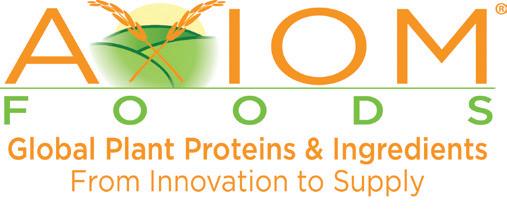
Axiom Foods does it again, innovating not only the 1st great tasting CLEAR RICE & PEA PROTEINS, ideal for low pH electrolyte & fruit juice beverages, and the only WHOLE GRAIN Certified OAT & RICE MILKS -- but is launching new lower-cost options for smooth SOLUBLEgrade ORYZATEIN® Rice Protein that’s patented for sports nutrition, plus proprietary NEUTRAL VEGOTEIN™ N Pea Protein made in N. America.
BeerTrail.com

With over a decade of experience, we help breweries and craft beer events connect with beer-loving people. Our turn-key ticketing and marketing services, along with our popular Field Trip Passport program, drive taproom visits, increase attendance and boost sales. Think of us as more than just a service provider—we’re your partner and an extension of your team. Let’s see what we can brew together!
Packaging, Custom Solutions & Value-Added Services

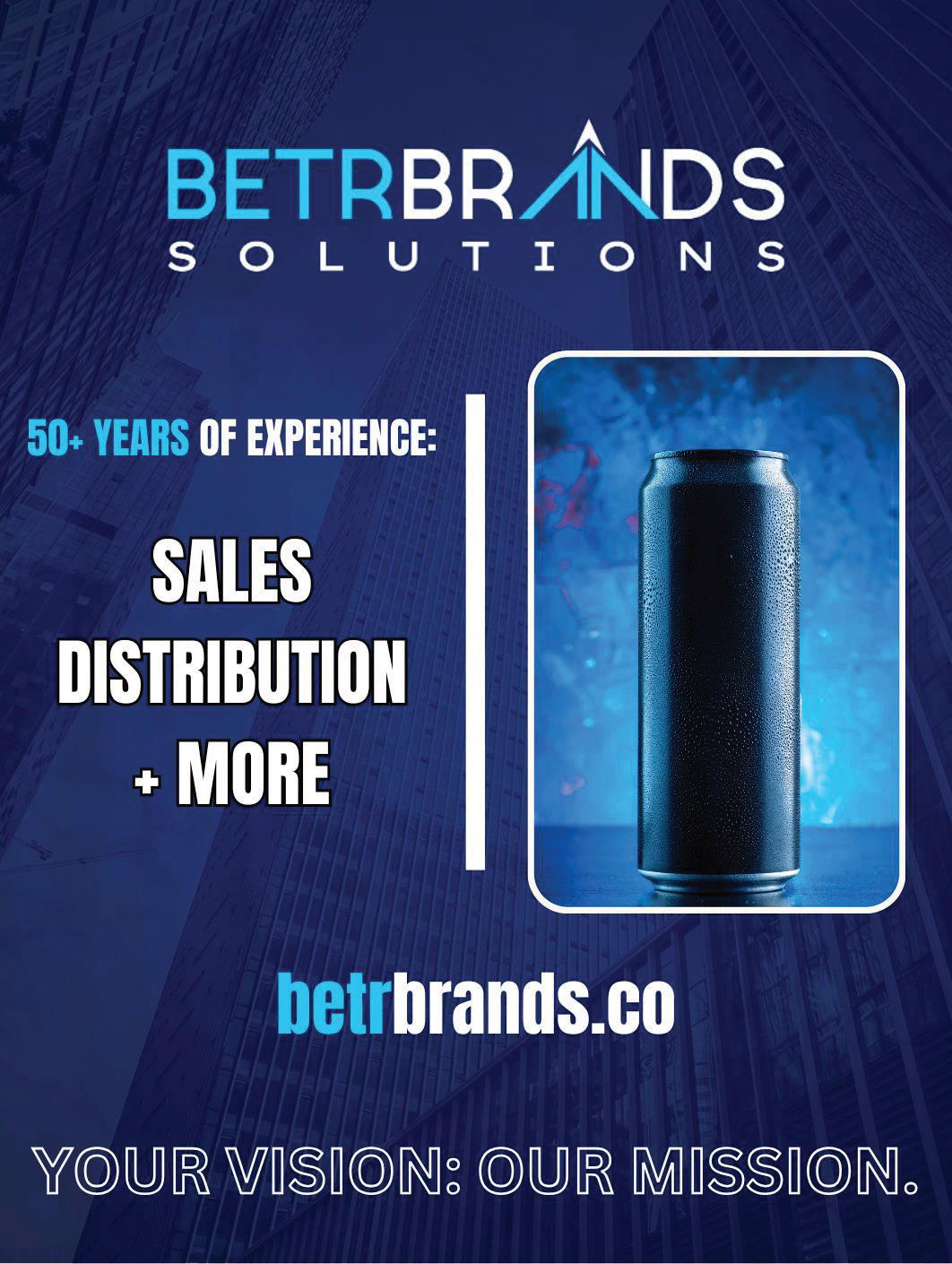
& Co-Manufacturing

Co-packer & private label manufacturer in the Northeast for small to established brands. From carbonated & still beverages to energy drinks, RTD's, and spirits, we have the solutions and infrastructure to help grow your business. Capabilities include but not limited to: variety of canning and bottling capabilities, cartoning, tunnel pasteurization, lab testing, warehousing, & vacuum distillation.
Advantage

We are trusted by entrepreneurs & established brands alike to commercialize their beverages. Our product development & commercialization knowledge, manufacturing relationships & global sourcing capabilities provide the expertise your brand needs to succeed. Whether you’re looking for ingredients & packaging, or need support with development, regulatory, pilot production or more, we can help.

Superior Botanical Extracts
Bio-Botanica, Inc.

Enhance your beverage formulations with BioBotanica’s high-quality botanical extracts. From energy to wellness, our USA-made ingredients deliver reliable performance backed by 50+ years of expertise. Partner with us for uncompromised quality and proven results. Family-owned since 1972.
Western Partner Manufacturer

Blue Chip Beverage is your RTD canned NA Beverage Manufacturing partner, based in Salt Lake City, Utah, the ideal location to service the Western U.S. due to great shipping rates. Our facility is SQF, NSF, Kosher and Organic Certified. With multiple can sizes, in-line sleeving and capability to pack in trays, cartons and variety packs, we are ready for your project!
Game-changing, Branded Ingredients
Bioenergy Life Science (BLS)

We’re re-imagining functional beverages with Bioenergy Ribose and RiaGev. Our patented ingredients deliver more, and they do it better. Bioenergy Ribose provides a natural, non-stimulant energy boost by supporting ATP production—helping consumers feel revitalized without jitters or crashes. With over 30 years of expertise, we create specialty ingredients and solutions for energy, sports, metabolism, healthy aging, and more. We also offer value-added services like formulation, custom premixes, private/white label options, and small-pack solutions. BLS is your Total Solution Provider—let’s take your products to the next level!

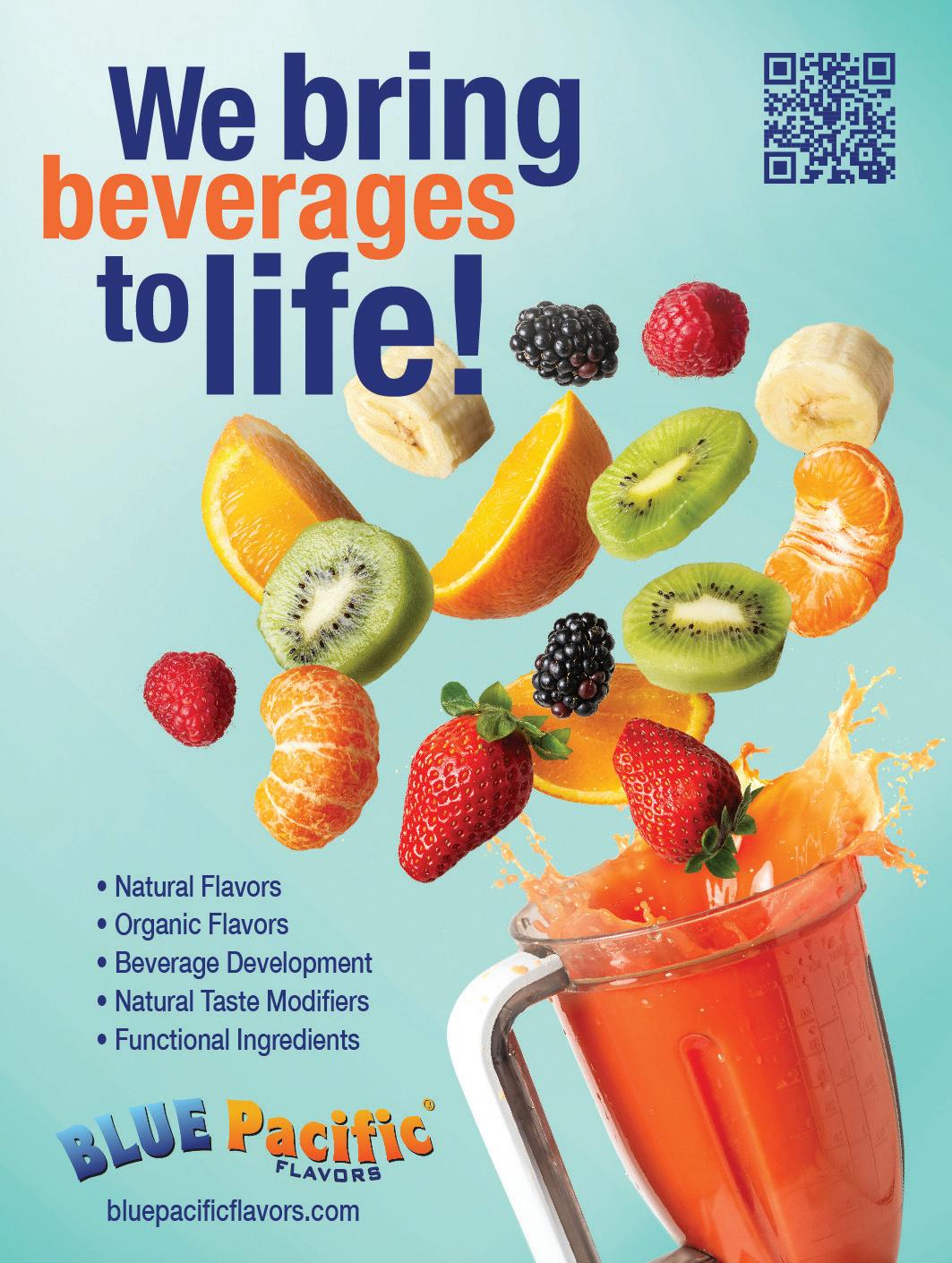
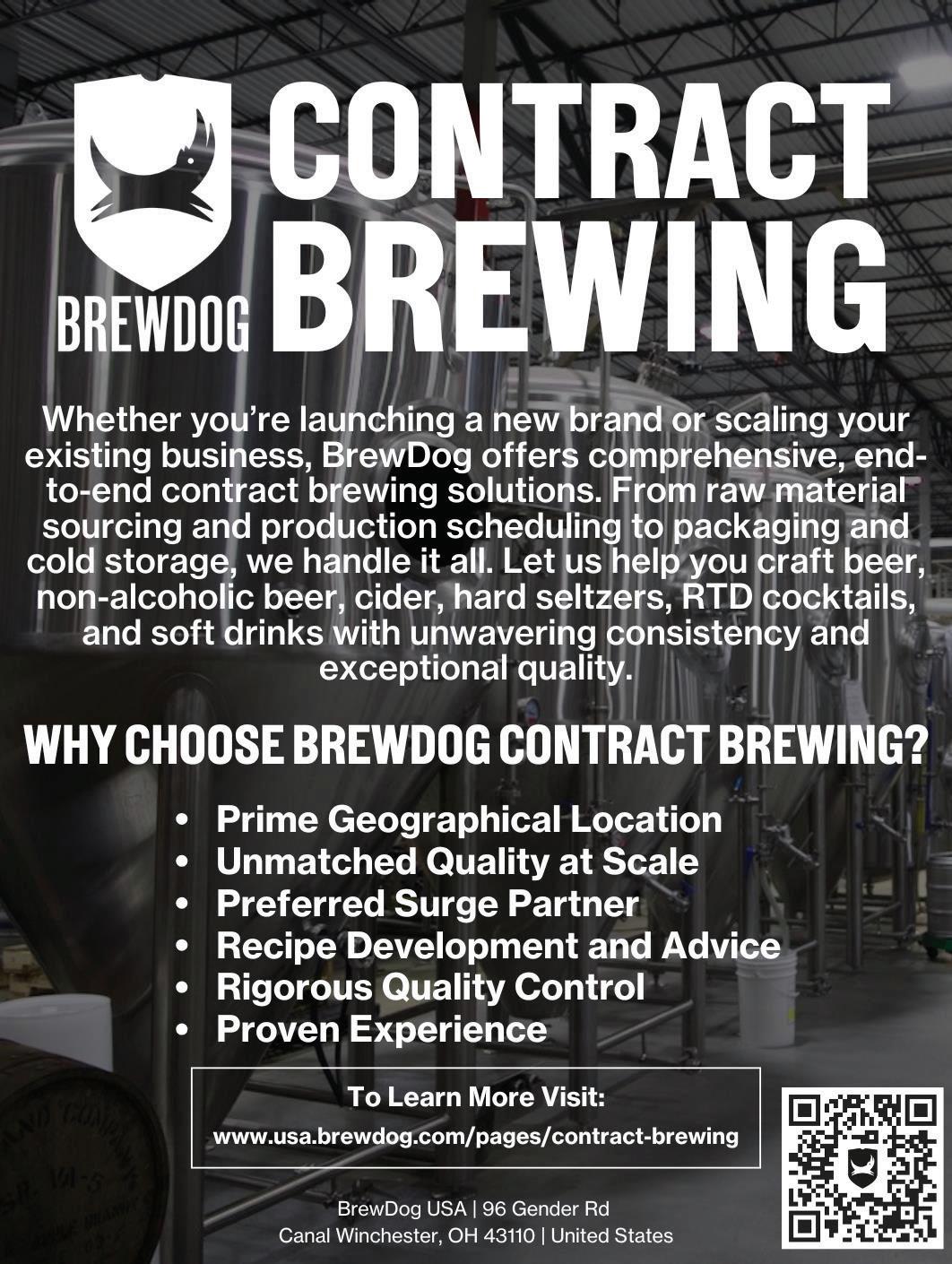



Launching an established brand in Canada? Or starting something new? Bullseye is your Western Canadian specialist in AB & BC for:
· Variety pack assembly
· Bundle/shrink wrapping
· Kitting
· B2B + D2C order fulfillment (non-alc)
· Friendly, attentive customer care. Rely on our 15+ year record of success.
Consulting Services
Solutions

Catena Solutions is dedicated to the F&B industry with 30+ years of expertise supporting local, national, and global CPG brands. We provide a customized approach to meet your needs, advising and executing on initiatives in the areas of Change & People, Project & Program Mgmt, Insights & Analytics, Strategic Growth & Innovation, Marketing, RGM, Supply Chain Ops, O2C, and Food Safety & Quality.

Custom Label specializes in premium custom packaging solutions, including printed labels, flexible packaging, folding cartons, and shrink sleeves. Our digital presses ensure vibrant colors, sharp details, and quick turnarounds— perfect for short runs, intricate designs, or seasonal updates. For larger production needs, our flexographic presses deliver cost-efficient, consistent quality packaging.
Co-Packing Experts in L.A.

Delta Bev is your trusted beverage co-packing partner in Los Angeles, specializing in non-alcoholic, infused drinks, and functional beverages. We offer flexible solutions for bottles, cans, shots, and variety packs with a focus on quality and efficiency. Let’s help you grow your brand!
Aluminum Beverage Can Supply - Nationwide CanSource LLC







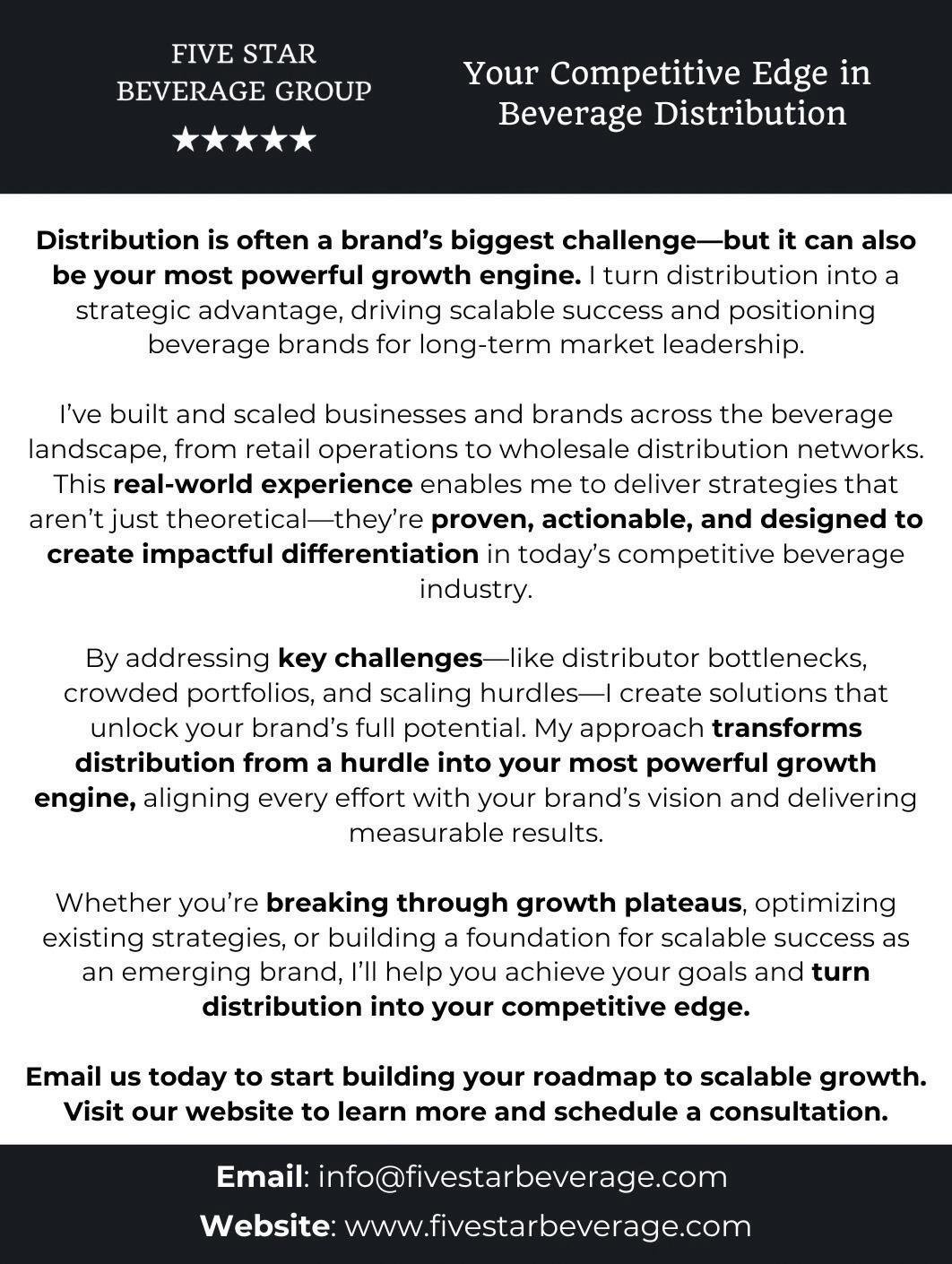

Döhler is a global producer, marketer and provider of technology-driven natural ingredients, ingredient systems and integrated solutions for the food, beverage and nutrition industry. Our comprehensive portfolio includes natural flavors, colors from natural sources, end-to-end solutions and more. Sustainable by nature, Döhler helps to nourish the world better: Good for people - Good for planet.®

Farbest Brands helps you meet the demand for clean-label ingredients with a full range of dairy and plant proteins, gum acacia, vitamins, sweeteners, natural colors, organic, and NONGMO Project Verified ingredients. No matter your budget, application, label claim we can guide you to the ingredients that are right for you.

Have a great idea for a beverage? Flavorman can help you bring it to life. Own your custom formula and benefit from value-added services and resources designed for your success—everything from R&D and shelf life testing, to regulatory assistance, pre-production planning, and more. With over 30 years in the business, Flavorman is the best partner to help you change what the world is drinking.
Beverage Flavor Solutions

FlavorSum helps your brand grow with the flavor solution expertise and infrastructure required to keep pace with the changing needs of beverage buyers. We make flavor sourcing more efficient, effective, and enjoyable with best-in-class responsiveness, competitive lead times and thousands of flavors in water and oil soluble formats. Let’s create the delicious beverages your customers crave.
Your Beverage Solutions Partner Fogg Filler

Since 1958, Filtec has helped some of the world’s most iconic companies protect their customers by bringing innovative packaging inspection solutions for PET, glass, aluminum cans, filling, and full cartons to their production lines. We strive to develop innovative quality inspection technology for the packaging industry that supports digital connectivity, efficiency, and sustainability.
Flavor Dynamics, Inc.

Flavor Dynamics, Inc. is a perfect choice for your food and beverage flavors. We are guided by a commitment to creating innovative products of consistent, superior quality. Our “AA” BRC audit grade represents our commitment to food safety and quality assurance. Our extensive library of sweet and savory flavors includes clean label, natural, organic, vegan and Non GMO options. Contact us.

At FFP, we provide naturally sourced solutions to clean label challenges. With over 70 years of expertise, our clean label experts connect formulators with real ingredients and innovative ideas. Our premium portfolio and manufacturing capabilities help you deliver the flavor and function your customers love, with the clean label they demand.
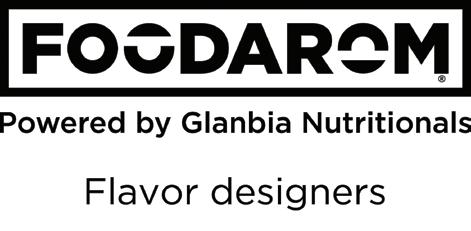
We create flavors that make your brand unforgettable. As a Glanbia Nutritionals division, we bring a global reach, unique skills and capabilities to the food, beverage and nutraceutical industries. Our international team is well equipped and excels at designing flavors specifically tailored to your product.Your brand deserves to stand out, let's make it happen.


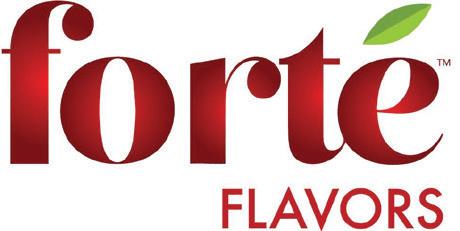
Team up with Forté and let us help you create a flavor that compliments your unique beverage and vision to perfection! With our deep flavor knowledge and unwavering passion for excellence, our flavorists are ready to collaborate with you to bring your flavor ideas to life. Let’s join forces and transform your beverage dream into a flavorful reality!
Beverage-Ready Possibilities
FutureCeuticals

At FutureCeuticals, we are focused on discovering and delivering new possibilities through plant-based nutrition that positively impacts people's lives. We bring nature and science together through clinical research and ingredient innovation to offer customizable solutions for functional health and wellbeing beverages.
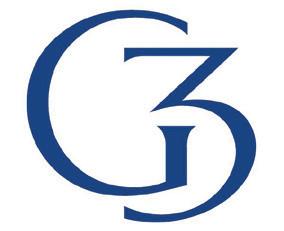
G3, a leading packaging and logistics provider, offers cans and ends with brite cans sold by the pallet and printed by full truckloads. We have fast turnaround times as cans are sourced domestically from multiple manufacturing facilities: 8oz std, 10oz sleek, 12oz std & sleek, 16oz std, 19.2oz std, 24oz std & specialty sizes 250ml and 330ml sourced internationally. Cans
Create the Future of Beverages

Looking for inspiration for your next project? At Givaudan Taste & Wellbeing, we harness the curiosity of our people and our extensive knowledge of food ecosystems to create innovative beverage experiences. By applying the latest science, technologies, and consumer insights, we deliver tailored solutions for you, driven by creativity and innovation.


It doesn't feel right to let big distributors and retailers take your money, but deductions are a real pain to manage and fight. Fast-growing CPG brands (like Lil Bucks, Cure, Supernatural) automate the entire deductions process with Glimpse. Our AI identifies invalid chargebacks, submits disputes, and actually follows up until you get your money back... because you've got better things to do.
EXBERRY® Plant-Based Colors
GNT USA, LLC

EXBERRY® by GNT is the leading brand of natural colors for the food and beverage industry. Our colors are non-GMO and derived solely from fruits, vegetables, and edible plants through a process of chopping, pressing, filtering and blending. Our team of technical specialists are available to guide customers through each stage of the formulation and upscaling process.
Gotham -Grow your Brand in NYC
Gotham DSD
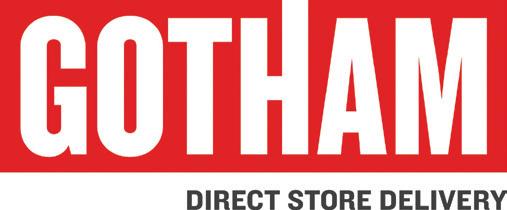
Gotham DSD (Direct Store Delivery) provides a Dedicated Sales Team, Delivery Trucks and Warehouse to get your brand accelerated into the NYC marketplace. Gotham DSD succeeds by working with only a few select food and beverage brands at a time. With limited brands to manage, we can focus on executing the needs of each brand while giving each brand the ability to grow. info@gothamdsd.com
Natural Health and Wellness
hidell international

Hidell International is a 57 year old, global Bottled Water and Beverage Consultancy. The company specializes in identifying water resources, completing hydrogeological investigations and developing health and wellness ingredient formulations for beverage clients. We have specialized in collagen and energy based products.

Global Essence, Inc. is a supplier of premium-quality ingredients to the flavor, fragrance, consumer products, personal care, food, beverage, health & wellness, functional beverage, aromatherapy and allied industries. We specialize in essential oils, aroma chemicals, citrus products, absolutes, natural custom blends, Certified Kosher materials, NOP Organics, and other flavor and fragrance blending. Our United States headquarters includes sales and support staff, four designated warehouses, regulatory department, and on-site full-service QC and analytical lab. The Global Essence executive team represents over 150 years of experience in the global Flavor and Fragrance industry, including all aspects of its supply chain.
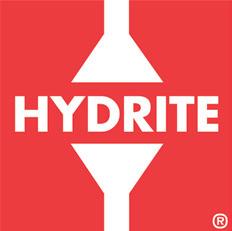
Hydrite offers expertise in manufacturing/ distribution, offering a variety of liquid and dry food/beverage ingredients, food/beverage plant sanitation, processing aids, commodities, foam control and water treatment chemistries. Hydrite provides creative solutions by offering an extensive product line coupled with technical support to address food safety and help maximize efficiency and quality.
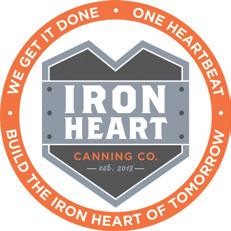
IHC is your solution to guide you through the canning process! With over 250 MILLION cans filled to date, IHC offers unmatched Experience and Expertise. We service the Eastern US and deliver Quality you can count on – Guaranteed seams, All beverage types, All can sizes, Materials sourcing, & Co-Packaging Partners –whatever your situation we can get your product canned. IHC is your one stop shop!
Ingredient Supplier
IFPC

Elevate your beverage formulations with Jungbunzlauer's innovative biodegradable ingredients. Our solutions help you deliver exceptional taste and functionality while prioritizing safety and sustainability. Perfect for a variety of beverages, our eco-friendly ingredients meet the highest quality standards. Craft drinks that respect the planet—one sip at a time.
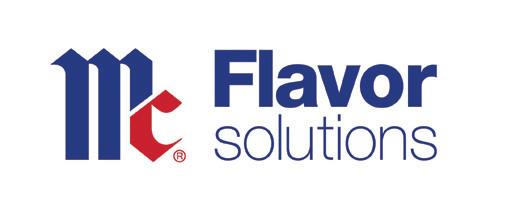
Consumers today want it all—you’re balancing the demands of great taste, supply chain challenges, regulatory hurdles and consumer acceptance. The experts at McCormick Flavor Solutions can help. From ideation to launch, we can create a seamless, winning path for you. Design, develop and scale up using our Beverage Innovation Studio in Geneva, IL or Hunt Valley, MD.


IFPC is your go-to source for high-quality ingredients and custom blending solutions for food, beverage, and dairy manufacturers nationwide. Our expert team is here to offer strategic purchasing insights, create tailored ingredient blends that boost efficiency, and enhance your formulas for the best food and beverage results. IFPC partners with dairies across the country supplying quality ingredients, creating custom solutions, & providing expert advice. Our in-house R&D team is experienced at achieving exceptional texture, taste, and nutrition, all within your processing standards and price. Aviator, our best-in-class manufacturing facility, is GFSI, Kosher, USDA Organic, and Grade A certified with small batch flexibility. With distribution centers strategically located nationwide and a state-of-the-art manufacturing facility in St. Louis, MO, we make ingredient sourcing a breeze. But we don’t just stop at supplying ingredients. We’re dedicated to supporting your product development and reformulation needs, ensuring a smooth and innovative partnership every step of the way. Count on us to be more than just a supplier. We are the industry’s exclusive Ingredient Concierge™. Your partners in creating delicious and successful products.
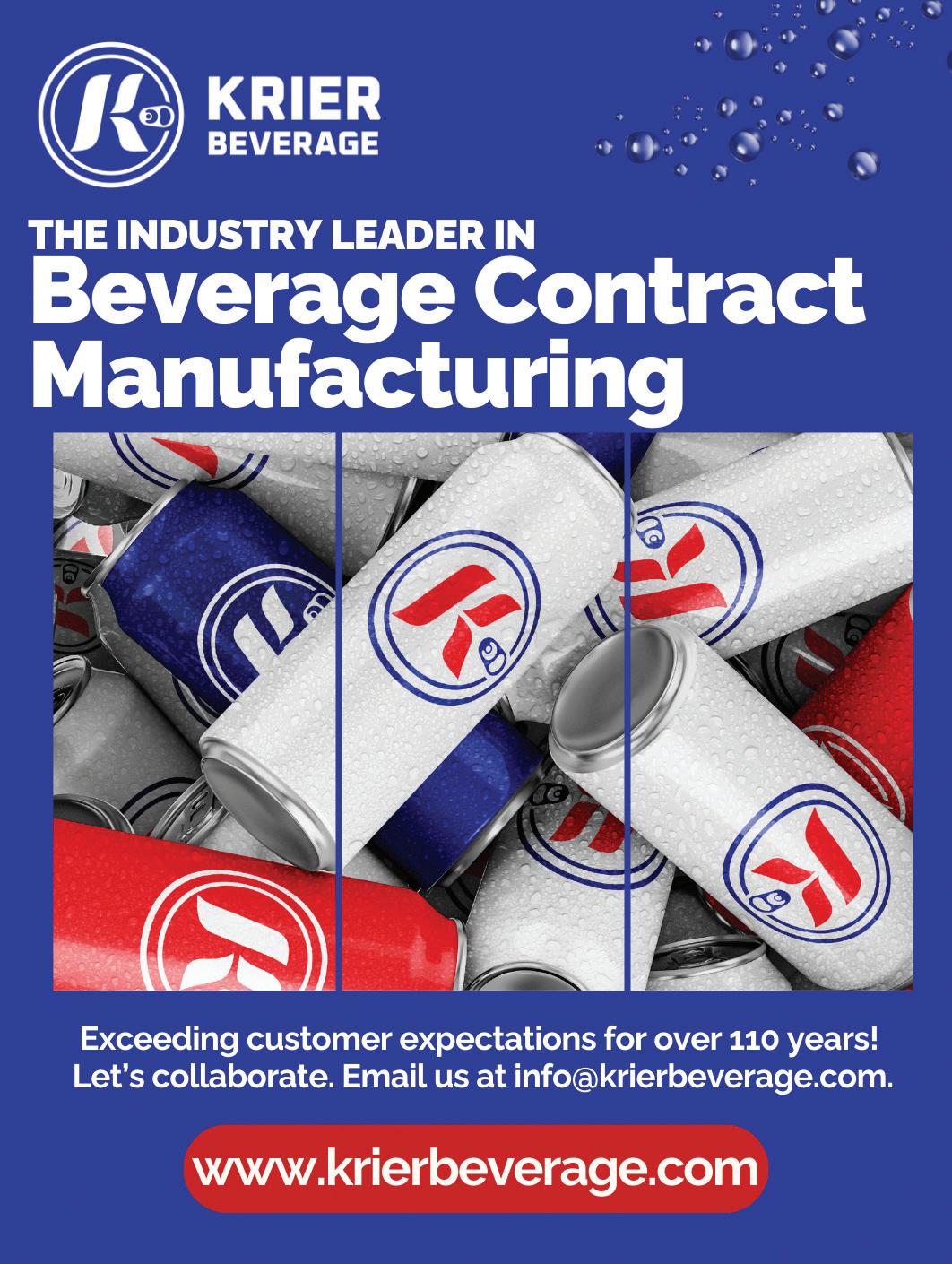
Looking to safeguard the quality and shelf-life of your beverage and eliminate chilled chain distribution needs? LANXESS Corporation offers two unique and innovative technologies, Velcorin® and Nagardo®, which provide microbiological protection in a wide variety of beverages.
Velcorin® (Dimethyl Dicarbonate) is a cold sterilization agent that kills microorganisms during production, resulting in cleaner and more stable beverages.
Benefits of Velcorin® include:
- No impact on sensory profile
- Clean label solution
- Compatibility with all types of common packaging
- Cost-effective
- Application-specific advice and services from Velcorin® team
Nagardo® (Dacryopinax Spathularia) is a natural guardian that protects against beverage spoilage to secure and prolong shelf life.
Benefits of Nagardo® include:
- Achieve natural & consumer friendly claims
- Efficient control of a broad range of spoilage organisms
- No impact on sensory profile
- Broad application in a variety of beverages
- Easy integration into production process
- Application-specific advice and services from Nagardo® team
LANXESS Corporation hopes to conveniently meet all of your microbiological protection needs with our widely applicable technologies and services.
For more information on Velcorin®, please visit Velcorin.com.
For more information on Nagardo®, please visit Nagardo.com.
Quality New & Remanufactured Beverage Filling & Packaging Equipment
Linker Equipment Corporation

Linker Equipment is a provider of new and remanufactured beverage equipment since 1958. With our facilities in Hillside, NJ and Tyczyn, Poland, Linker provides auditing, engineering, installation and commissioning services for individual machines & complete production lines. We specialize in building & servicing filling, capping, seaming & process equipment, as well as conveying systems, line automation and packaging equipment for glass, aluminum & pet bottles and beverage cans. We work with customers small and large, stateside and abroad, and look forward to connecting.

Flavor it... Naturally.

We’re the new kid on the block, bringing premium fruit purees crafted with quality and flavor in mind. At Mighty Fruits, we offer a wide range of purees made from the finest fruits—perfect for the beverage industry. Sustainably sourced and processed to lock in peak freshness, we deliver consistency and affordability. Discover the best quality at unbeatable prices with Mighty Fruits!
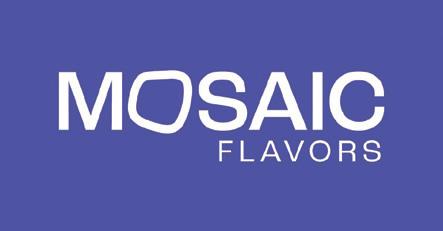
At Mosaic Flavors, we're dedicated to offering flavors that are as intricately designed as the natural world. We aim to provide the best flavor solutions in the industry and deliver elevated flavor experiences shaped by artistry and delivered through science. One of the key advantages of working with Mosaic Flavors is our ability to provide shorter lead times and faster shipping to our customers.

Beverages today must quench thirst while being healthy, energizing, and exciting. Our flavors are available in natural, natural and artificial, and artificial formulations. Our commitment to high standards has made us an industry leader in regulatory compliance. Whether you're developing a Dry Mix Beverage, RTD, TTB, Coffee, or Tea, Mother Murphy's Flavors is your premier flavor partner.

Are you thinking about rebranding? We specialize in optimizing brands. Our process begins with a detailed analysis of your current branding to pinpoint areas for improvement, all backed by empirical evidence. Using consumer psychology insights, we create solutions that elevate your brand’s perception while enhancing how your product is experienced—including its perceived taste.
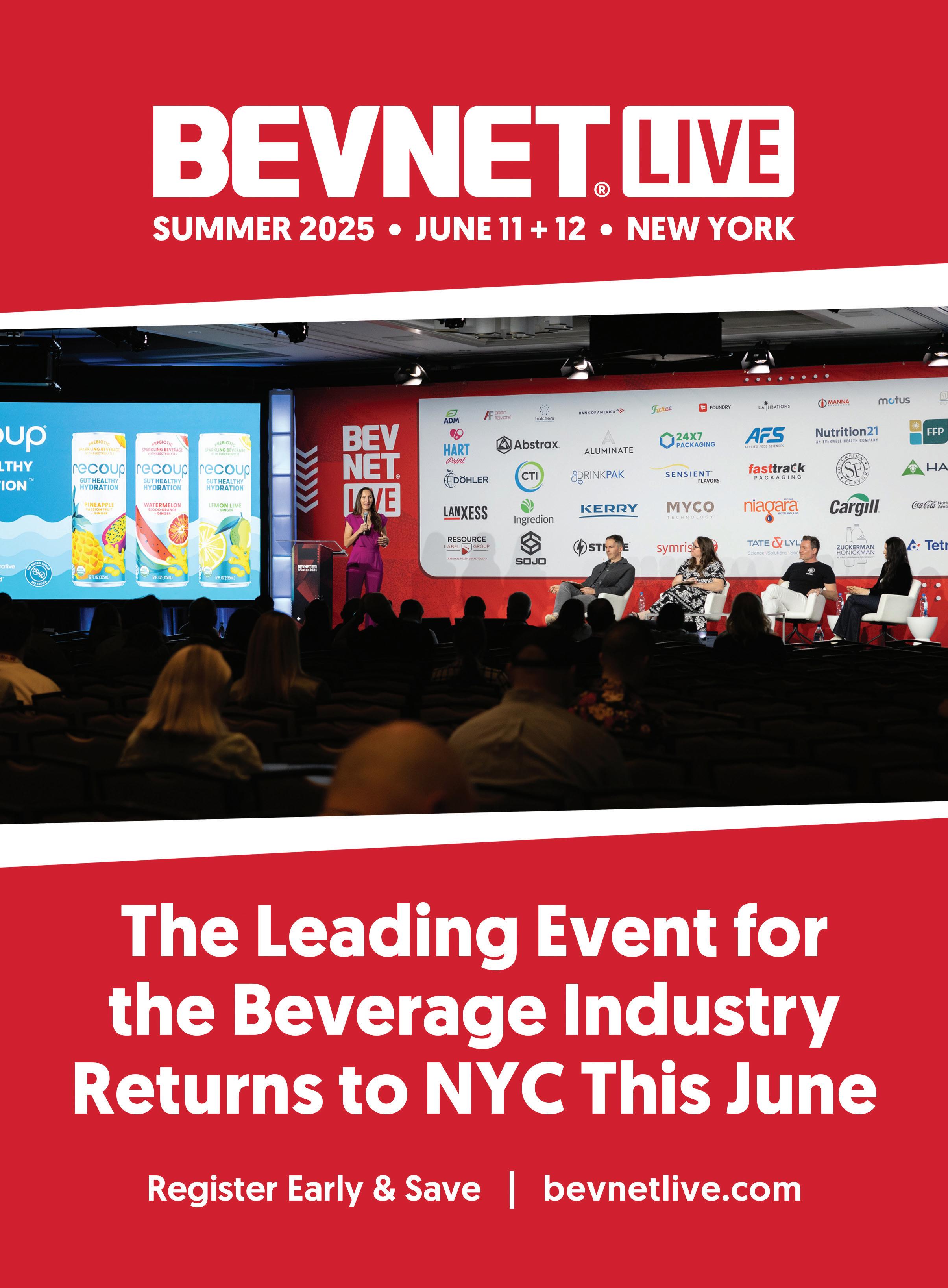
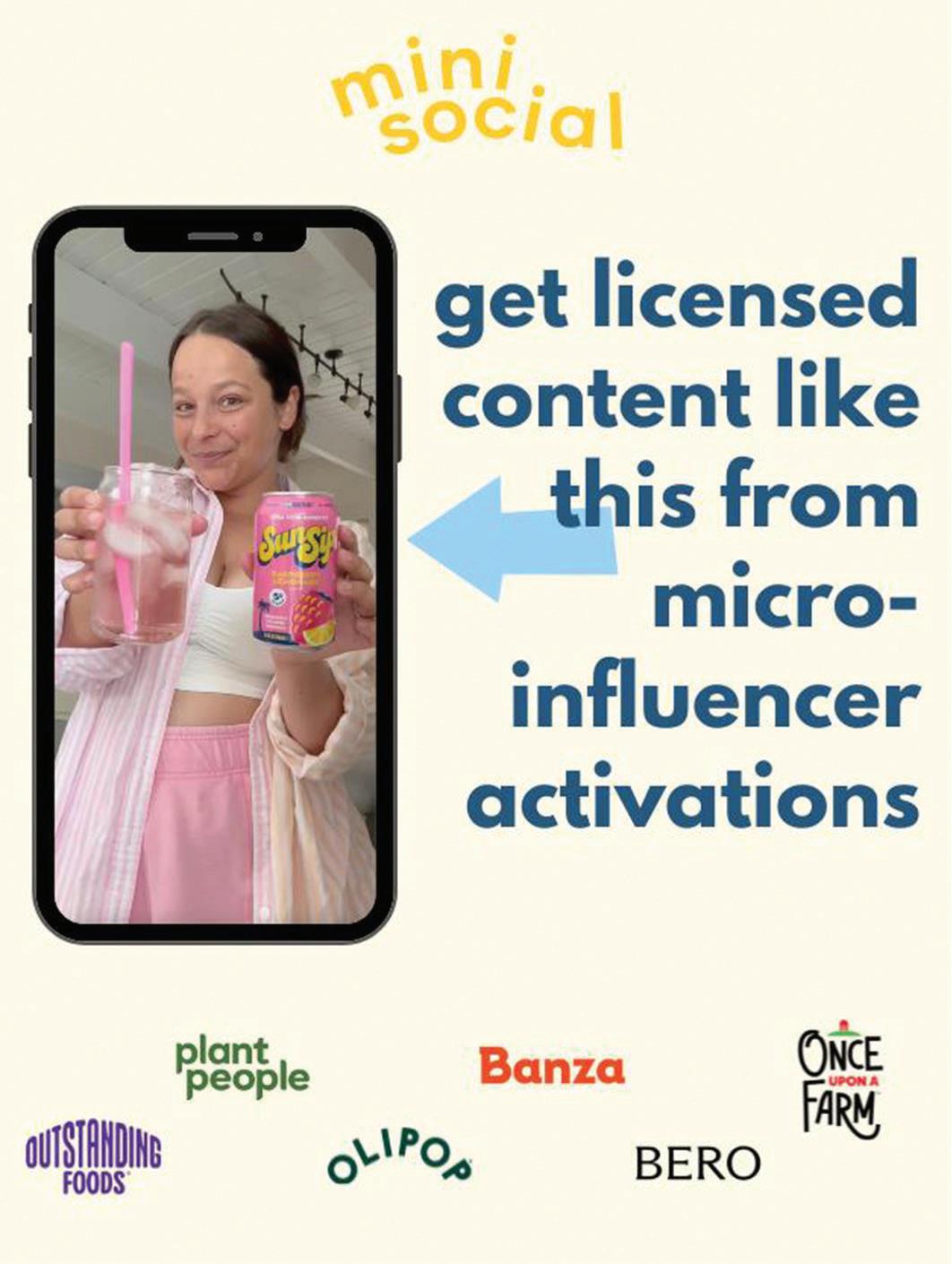


Founded in 1912 in Bourges, France, and proudly family-owned for three generations, Monin is synonymous with gourmet flavor excellence. As a trusted partner in the beverage and hospitality industries, Monin offers a portfolio of over 200 premium flavors, including syrups, purées, sauces, and energy beverage concentrates. Every product is crafted with the finest ingredients, embodying Monin’s unwavering commitment to quality and innovation. With manufacturing facilities across three continents and distribution in more than 150 countries, Monin is a global leader in flavor solutions. From coffeehouses and restaurants to bars and kitchens, Monin inspires creativity and delivers exceptional taste experiences worldwide. Monin Americas, based in Clearwater, Florida, supports sales and operations throughout North America, South America, and the Caribbean with a dedicated team of over 350 employees. As the hospitality industry evolves, Monin continues to lead with innovation, customer focus, and a passion for great flavor.
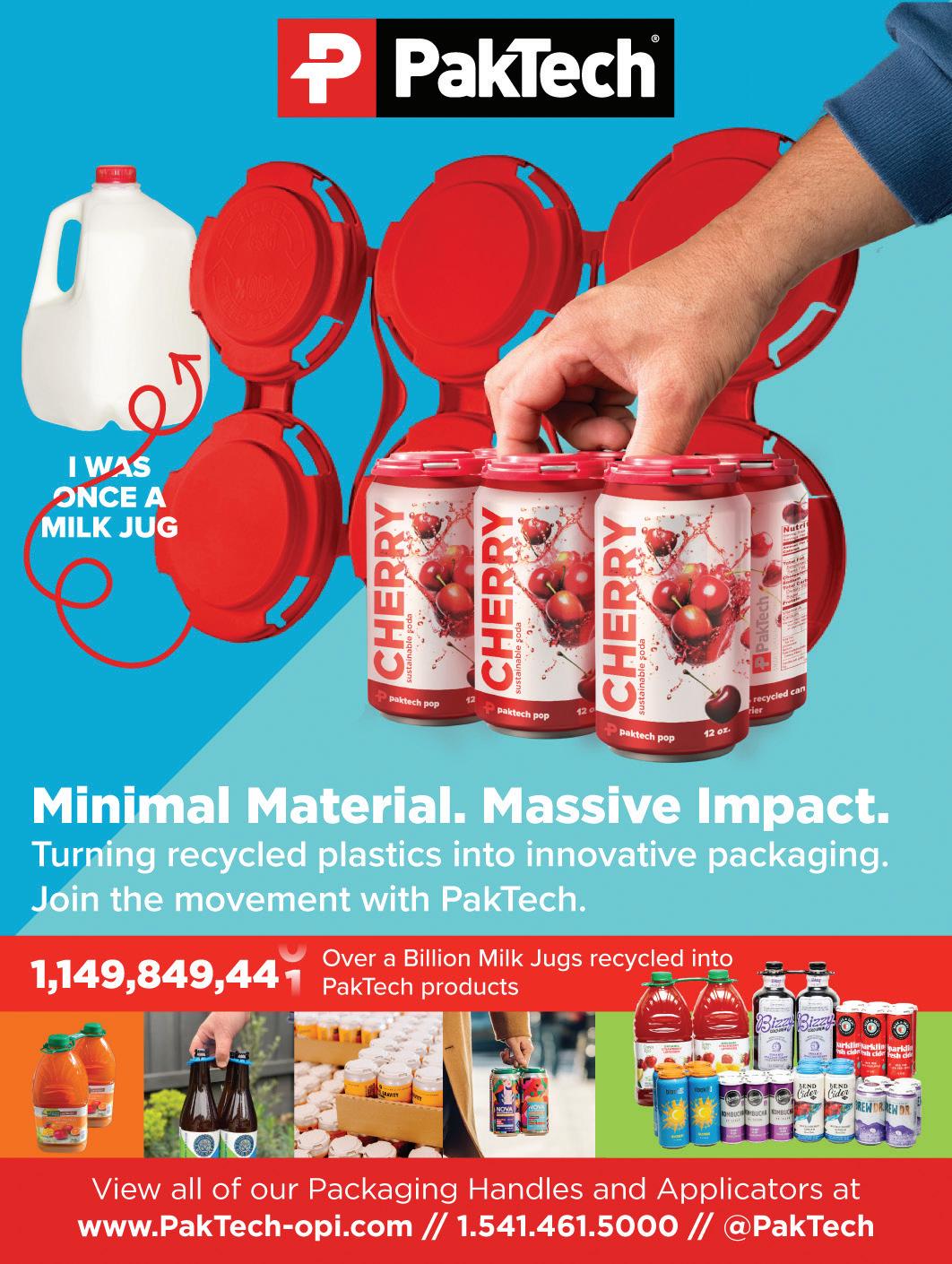

Versatile Cartoning Solutions
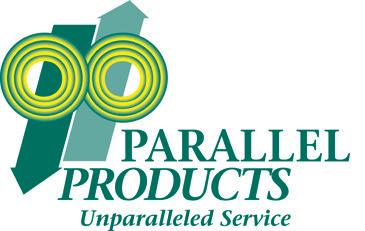
Parallel Products specializes in comprehensive beverage product destruction and recycling services to provide sustainable recycling/ recovery and brand protection for your products. In addition, our TTB Compliance & Tax Recovery Department can assist you with the recovery of your Federal Excise Tax, which can have a dramatic impact to your profitability.

Pick Direct Steam Injection Liquid Heaters offers unique advantages to the food and beverage industry for applications including tank filling, CIP, pasteurizing, product cooking, heating jacketed kettles, can and bottle warming, and industrial wastewater treatment.

Offering variety packs, direct shipping to retailers, and more, let Premier Packaging elevate your beverage packaging process. Our specialties include automatic cartoning, variety pack rework, and gift sets. From in-house ISTA testing and creative services to sustainable solutions, we take pride in exceeding customer expectations by maintaining the highest level of quality control.
Beverage Architects

proBrau brings German brewing tradition and expertise to the world with consulting and engineering services tailored for the beverage industry. From process optimization to facility design, we support breweries of all sizes. With a strong foundation in German Brewmaster training and a dedicated office in Chicago, we combine craftsmanship with modern solutions to help you brew success.



Buy or Lease full functioning Co-packing facility. Capable of 4 million cans a month with minor investment, currently capacity at 2 mil a month. Licenses are Beer, Wine, Spirits. Pasteurization, Velcorin dosing. Canning, Bottling its all here complete with customer base. Approximately 45,000 Sq. foot facility.

PTM Food is the ultimate product development and manufacturing support firm that offers unparalleled expertise, creativity, and development services to help you achieve a distinct competitive advantage. We leave no stone unturned in our quest to uncover critical industry insights and develop products that are truly cutting-edge. Our team is more than capable of delivering successful results.
Your partner in Variety Packs

RAD Packaging, located in the Los Angeles area, specializes in variety pack solutions for alcoholic and non-alcoholic beverages. We offer tailored repacking services, scalable warehousing, and streamlined logistics to meet your unique needs. Trust RAD to deliver efficient and reliable solutions for your beverage brand's success.

Saxco is a full-service packaging solutions supplier. We have served the distiller, wine, and craft beverage community for more than 90 years, combining our expertise, passion, and commitment to your success with modern packaging technologies. Contact us today to receive a FREE consultation from a dedicated packaging expert.

Situated in Denver, we are the only dedicated contract brewery & beverage facility in the Western US. Founded in 2015 to address the shortcomings of the contract production model, SGBC emphasizes: quality, customer service, location & size. As a dedicated, turnkey contract outfit, your products are our singular focus. We produce beer, spirit based RTDs, hemp, NA beer, hard seltzer & NA beverages.
Sailor Plastic Bottles: Quality Containers, Endless Possibilities!
Sailor Plastic Bottles



We work with specialty beverage manufacturers and importers covering a wide variety of beverage types to include, alcoholic, non-alcoholic, functional, energy drinks and supplements. Policy types include General Liability, Product Liability, Excess Liability, Property, Product Recall and Ocean Cargo. Very familiar with wholesale and retail insurance requirements for vendors.

Established in 1857, Stevens Point Brewery produces world-class beverages. We specialize in craft brewing and batching of beer, hard cider, soda, ready-to-drink beverages, teas, hard seltzers, and more. We offer competitive co-packing rates on traditional cans, longneck bottles, kegs, and more. Visit www.pointbeer. com/co-packing for detailed information.
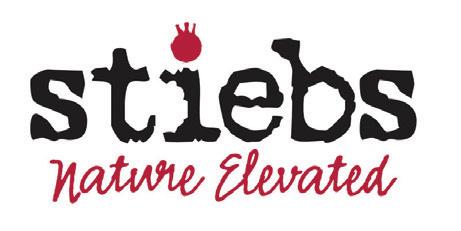
Stiebs, since 2005, has been devoted to sourcing, processing & delivering the world's finest plant-based products. We offer a full line of fruit & vegetable based ingredients as Single Strength Juice, Juice Concentrates, Purees and IQF Cubes. From the beginning stages of product development to delivering an on-going supply of premium natural products, our team is here to help you succeed.

The fastest way to grow your business is to acquire another! We broker acquisitions and business sales, perform valuations, source investors, and use Endgame Value Planning to a) proactively strengthen the drivers of higher value, and b) mitigate the business risks, to maximize your value for a future liquidity event.
Statco-DSI Process Systems

Statco-DSI has a longstanding reputation in the industries we serve. We offer an extensive portfolio of sanitary equipment, systems and services to provide start-to-finish support for your next project. We’re recognized as one of the largest process equipment distributors and systems integrators for the sanitary processing market in North America. With eleven sales and engineering offices strategically located throughout the United States, our nationwide network of more than 150 seasoned sanitary process professionals are in your backyard and ready to get to work. Our project engineering and design team is second to none. Your project will benefit from working with some of the most experienced and well-rounded engineers in the industry. The tenure of this team is evidence of its cohesiveness. Open lines of communication and willingness to share information helps ensure that every project and every challenge is handled effectively. Our sales staff has a vast knowledge base and taps into the technical expertise of our engineering staff when needed. Many of our sales team have in-plant experience working for various factories within the industry. They are factory trained on a regular basis to keep up-to-date on the latest products, innovations and specialty applications.





Built on technology, Takasago has an extensive innovation platform including true to nature VIVID® Natural Flavors, taste modulating INTENSATES® Flavors, Consumer Insights and Market Research, etc. Vertically integrated in citrus, coffee, tea, mint, and vanilla to drive quality and sustainable raw materials for flavor creations, we promise to deliver impactful flavors for your product development.
POS/POP Merchandising
TAP PRODUCTIONS

Are you ready for 2025? Branding Solutions for Everyone! We do the sourcing and production for your Team. Print POS: sell sheets, brochures, table tents, IRC coupons, standees, static clings, danglers, channel strips, pole signs • Apparel & Promotional Material • Tradeshows & Special Events: tents, flags, table covers, pop-up banners, large scale banners • Presentation Boxes • Displays and more.

The Tierra Group is a leading producer in the blue agave industry, providing a wide range of blue agave-based ingredients and alcohol products spanning across both the food and beverage industry. With a consistent supply and a streamlined purchasing process, The Tierra Group makes it easy to source a wide range of high-quality agave products direct from our US warehouses.

THI is a leading supplier of premium plantbased, non-GMO fibers, prebiotics, functional mushrooms & proteins - offering top-quality, competitively priced solutions, sourced globally. Our meticulously tested functional ingredients, coupled with exceptional customer service, product development support, and logistics management, empower brands to innovate and succeed. Ask us how we can help!

Organic Ingredients to Elevate your Beverages

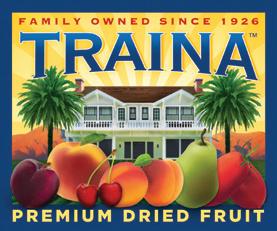
99 years at its family ranch in California's Central Valley, Traina Foods grows, sun dries, and packages premium fruit and sun dried tomatoes for Ingredient, Foodservice, Flavor, & Private Label customers (Bulk, Bags, Jars, Bottles). Sun drying is a sustainable form of food preservation. Halves, Diced, Double Diced, Granules, Powders, & Pastes introduce intense, real, healthier flavor.
Making the world taste better
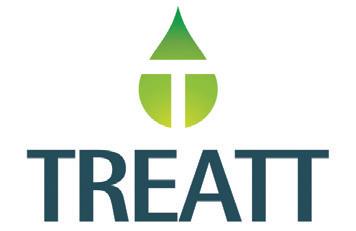
We are a global team of innovative scientists, ground-breaking technologists and creative thinkers, delivering exceptional natural extracts and ingredients enjoyed by millions of people, every day. Whether it’s a natural fruit extract, a water-soluble citrus emulsion or a sugar reduction solution we know what it takes to shape, create and deliver what consumers will love now and in the future.

California based grower and processor. Refreshingly sweet, healthy, and hydrating. We at Van Groningen & Sons look forward to becoming the farm to you supplier for Frozen Watermelon ingredients including NFC Juice, Puree and Concentrates, both Organic and Conventional. For more information or samples of our products and availability contact us!

WaterSurplus delivers custom water treatment solutions for bottlers across the country. Since its founding in 1989, innovation and service have driven WaterSurplus. Today, that means sustainable water rooms, high-efficiency reverse osmosis systems, PFAS treatment, filtration equipment, and a vast rental fleet for temporary or emergency treatment.


Super Blend® custom nutritional premixes can help overcome nutrient processing obstacles by delivering performance and stability in a customer’s end product. Our premixes respond remarkably well under certain processing conditions. Our SuperBlend® premixes:
- Combine nutrients into a quality assured ingredient
- Mix coated SuperCoat® ingredients with uncoated nutrients
- Simplify ingredient procurement through one supplier for cost savings
- Better particle homogeneity by carefully blending ingredients
- Decrease warehousing and inventory costs
- Excellent flow properties for easy dispensing and packaging

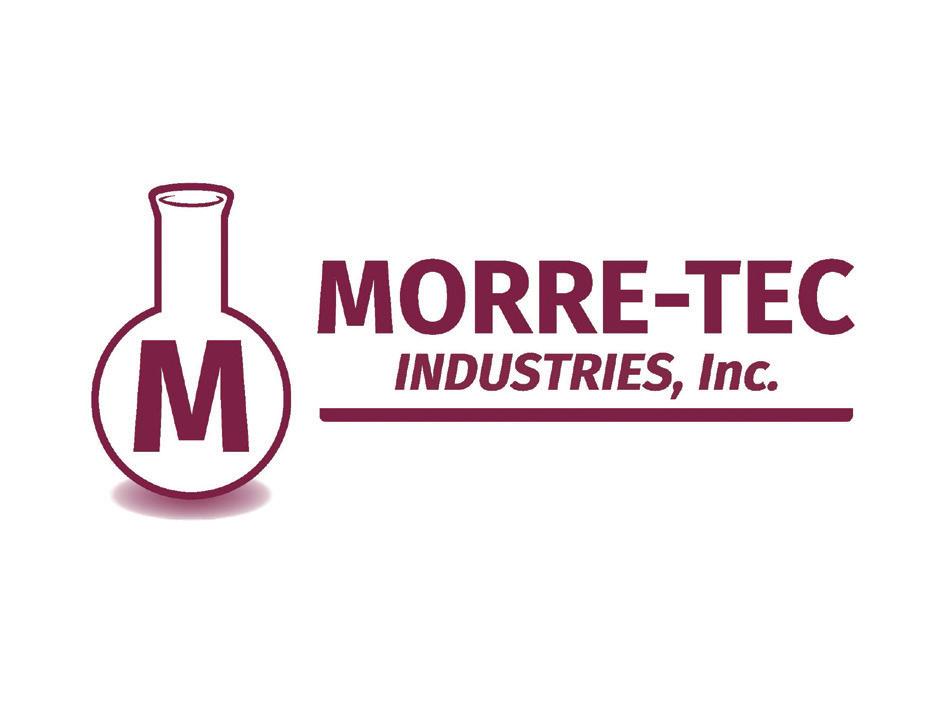
MORRE-TEC Industries Inc., founded in 1987, has established a leading position as a global supplier of specialty vitamins and mineral supplements for the nutrition, beverage and personal care industries. With the acquisition of the Vitacyclix business and the company gained a unique patented technology for the production of water-soluble formulations for fat-soluble vitamins, which is especially useful for the fortification of dairy products, functional beverages as well as other food and nutritional applications. A complete selection of vitamins, minerals, bioflavonoids, fibers and proteins, as well both vegan and kosher options are available. We welcome the opportunity to develop custom formulation of blends for your specific needs. Our range of ingredients include freeze dried fruit powders and pieces, shelf stable, clinically proven probiotic, plant-based proteins, fiber ingredients with functionality, salt and sugar reduction products. Contact us to learn about our latest product technology capabilities and new product lines. Call 908-688-9009 or email us at sales@morretec.com

Drain and compress filled or empty cans in one easy step with WEIMA! WEIMA America, Inc.

WEIMA packaging presses, can presses, recycling presses and beverage drainers reduce the waste volume and the disposal costs for liquids. The E- and G-Series drainage press from WEIMA offer an efficient way to drain cans of their contents in one easy step, increasing quality control and decreasing waste. Drainage press technology allows for rejected cans to be directly ejected into the machine’s hopper, which punctures them so the contents can be drained into its collection bin. The machine can also be hand-fed if necessary, and all rejected cans are easily compressed into Ø200mm discs for convenient recycling. The compressed discs of aluminum take up significantly less space than partially filled cans, maximizing valuable floor space between trips to the recycler and increasing the value of the aluminum due to its compressed form. The modular nature of these machines makes them easily integrated into existing canning lines. For breweries and other packaging/canning operations, WEIMA’s drainage press technology allows more time to focus on what matters most: sustainably creating a delicious, quality product.
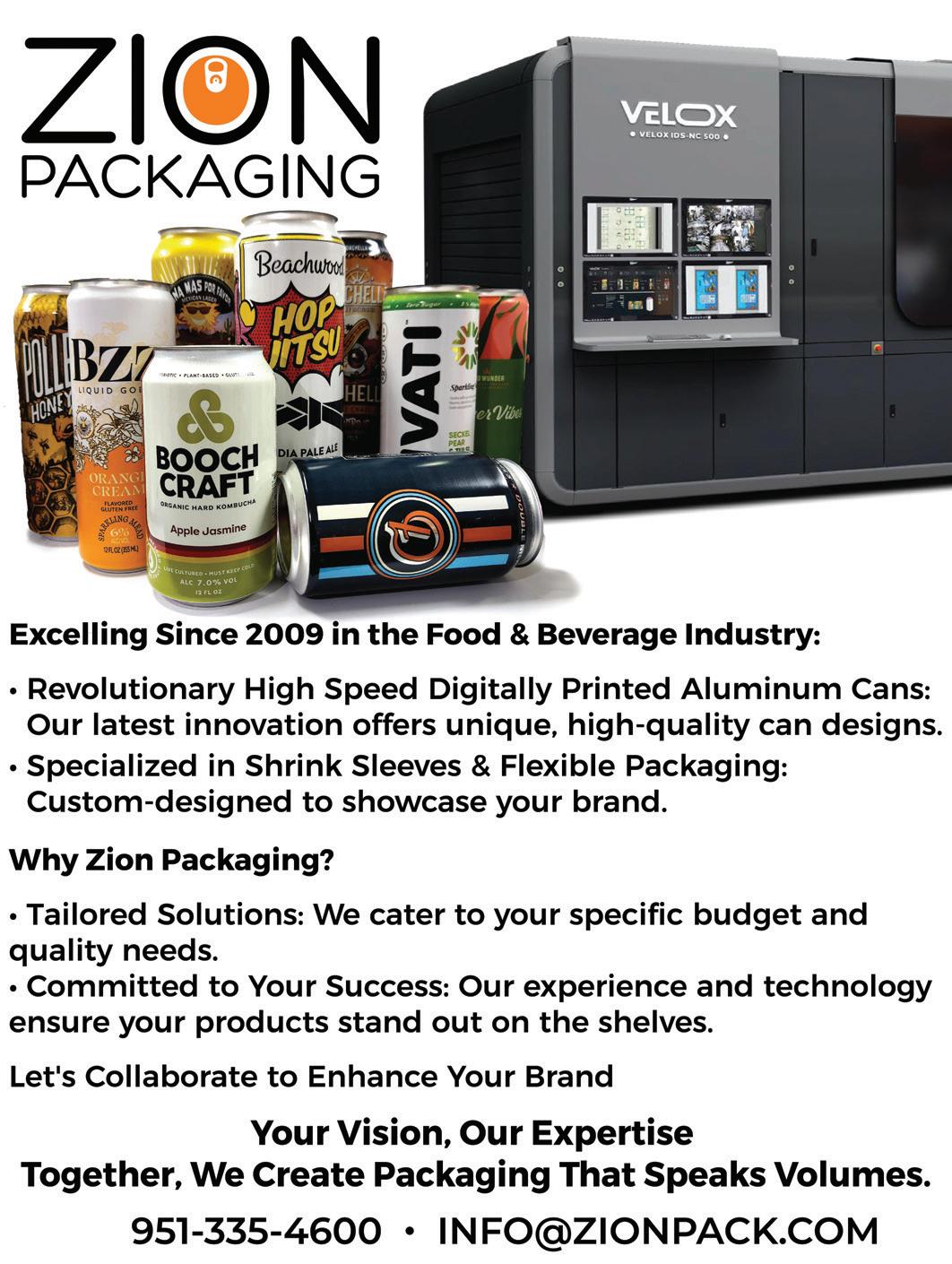

AIBMR Life Sciences
Anderson Advanced Ingredients
Apura Ingredients
Axiom Foods
Jared Brodin Seattle WA (253) 286-2888 aibmr.com
John Jarmul Englewood CO (917) 747-4877 advancedingredients.com
Katharina Pueller Las Vegas NV (949) 603-4143 apuraingredients.com
Rick Ray Los Angeles CA (916) 813-1878 axiomfoods.com
Balchem Corporation - Montvale NJ - balchem.com/human-nutrition-health
BeerTrail.com
Berlin Packaging
BETR Brands, LLC
Beverage Venture Group
Kevin Mardorf Norwalk CT (800) 801-3378 beertrail.com
Berlin Packaging Chicago IL (708) 272-7046 berlinpackaging.com
Sam Wilson Corona CA (909) 477-0288 betrbrands.co
Chip Nolan Middlebury VT - beverageventuregroup.com
BevSource - Saint Paul MN (866) 956-4608 bevsource.com
BevWrap LLC
Bio-Botanica, Inc.
Bioenergy Life Science (BLS)
Black Apple Group
Blue Chip Beverage
Ralph Drozt Elk Grove Village IL (847) 979-8193 bevwrap.com
Jason Katsoris Hauppauge NY (631) 231-5522 bio-botanica.com
Marianne McDonagh Ham Lake MN (763) 745-7003 bioenergylifescience.com
Chip Rovello College Station TX (832) 348-9646 blackapplellc.com
Steve Finn Salt Lake City UT (800) 999-1863 bluechipbev.com
Blue Pacific Flavors Roya Sayyah, Lori Banks-Keller City of Industry CA (626) 934-0099 bluepacificflavors.com
BrewDog Brewing Company LLC
Brunswick Bierworks
Bullseye Packaging Services
CanSource LLC
Caporale Consulting
Catena Solutions
CMC
CO2Sustain
Crstl
Custom Label
DELTA BEV
Döhler North America
Drink Labs
Due North Corp. Minus Forty QB
Farbest Brands
FILTEC
Five Star Beverage
Flavor Dynamics, Inc.
Flavorman
FlavorSum
Florida Food Products (FFP)
Fogg Filler
Keith Bennet Canal Winchester OH (614) 400-9594 usa.brewdog.com/pages/contract-brewing
Scott Cooper Toronto - (303) 802-7374 brunswickbierworks.com
Eira Braun-Labossiere Calgary - (403) 970-7155 bullseyepackaging.ca
Robert Renfro - - (870) 329-4990 cansource.com
Mark Caporale Middletown CA (707) 987-9703 caporaleconsulting.com
Sara Drake Chicago IL (312) 572-6020 catenasolutions.com
Adam Kozisek Nashville TN (615) 490-1510 choosecmc.com
Jonathan Stott Leeds - (044) 426-4601 co2sustain.com
Teva Vogelstein San Francisco CA (443) 509-0511 crstl.so
Marygrace Quigley Livermore CA (510) 876-0000 customlabel.com
Delta Bev Los Angeles CA - deltabev.com
Kristy Ellenson Kennesaw GA (470) 334-9858 doehler.com
Dennis Morales Simi Valley CA (310) 770-9888 thedrinklabs.com/about-us/
Randy Skyba Rockwood - (416) 317-7684 duenorth.com
Tracey Jordan Park Ridge NJ (201) 573-4900 farbest.com
Filtec Sales Torrance CA (888) 434-5832 filtec.com
Shane Lohman Pittsburgh PA (310) 462-4465 fivestarbeverage.com
Colleen Roberts South Plainfield NJ (908) 822-8855 FlavorDynamics.com
Creighton Benoit Louisville KY (502) 400-9720 flavorman.com
Rachel Zawistowski Kalamazoo MI (800) 525-2431 flavorsum.com
Kelsey Anderson Lake Mary FL (224) 330-5932 floridafood.com
Karl Walby Holland MI (616) 786-3644 foggfiller.com
Foodarom Powered by Glanbia Info Foodarom Montréal - (888) 866-3683 foodarom.com
Forté Flavors
FutureCeuticals
Janet Guzman Valencia CA (818) 307-4062 forteflavors.com
Charlie Lockwood Momence IL (888) 452-6853 futureceuticals.com
G3 Enterprises Liz Curtin Modesto CA (510) 421-7935 g3enterprises.com
Gamer Packaging, Inc. - Minneapolis MN (612) 788-4444 gamerpackaging.com
Givaudan - Cincinnati OH - givaudan.com
Glimpse
Global Essence, Inc.
GNT USA, LLC
Gotham DSD
Hedgify
hidell international
Matt Holden New York City NY (432) 517-8150 tryglimpse.com
Oliver Neale Hamilton Township NJ (732) 677-1100 globalessence.com
Jeannette O'Brien Dallas NC (704) 469-5555 exberry.com/en/
Trent Moffat Long Island City NY (877) 931-3030 gothamdsd.com
Ariel Weiss Givatayim - +972507400558 -
Henry Hidell Accord MA (781) 749-8040 hidellinternational.com
HYDRITE Jeff McShane Brookfield WI (262) 792-1450 hydrite.com
IFPC
Iron Heart Canning Co
Adrian Williams St. Louis MO (800) 227-8427 ifpc.com
Brian Casse - NH (973) 342-1388 ironheartcanning.com
COMPANY
Jungbunzlauer
Alex Merlos Boston MA (774) 327-8352 jungbunzlauer.com/en/ KHS USA, Inc.
David Darbant Waukesha WI (262) 797-7200 khs.com/en/ Krier Beverage
Lanxess Corporation
Linker Equipment Corporation
Zach Malin Random Lake WI (920) 994-2469 krierbeverage.com
Veronica Aboujaoude Pittsburgh PA (412) 523-3854 Velcorin.com
Yael Linker Hillside NJ (908) 353-0700 linker.com.pl/us Matcha.com Nick - - (520) 273-2110 bulk.matcha.com
McCormick Flavor Solutions
Mighty Fruits
minisocial
Monin
Mosaic Flavors
Mother Murphy's Flavors
Nitid Studio | Neuropackaging
NJOY Beverages LLC
Chloe Morris Hunt Valley MD - mccormickfona.com
Diego Escobar Woods Cross UT (801) 824-0286 mightyfruits.com
Kirsten Baumberger New York NY (614) 579-8902 minisocial.com
Monin Customer Support Clearwater FL (727) 461-3033 monin.com
Crista Schafer Chino CA (714) 283-5287 mosaicflavors.com
Michael Oden Greensboro NC (800) 849-1277 mothermurphys.com
Fernando Arendar
Ciudad De Buenos Aires TX (549) 116-1866 nitidstudio.com
Neville Christian Las Vegas NV (602) 475-5100 -
PACTEON - Brewerton NY (314) 439-9871 schneiderequip.com/pacteon-directories
PakTech - - - (541) 461-5000 PakTech-opi.com
Parallel Products
Pick Heaters, Inc.
Pizzey Ingredients
Premier Packaging
proBrau
PTM Food
R.A Jones
RAD Packaging
RTD Co-Pack
Sailor Plastic Bottles
Saxco
Sleeping Giant Brewing Company
Sovereign Flavors Inc.
Specialty Food Beverage-PCI
Statco-DSI Process Systems
Stevens Point Brewery
Stiebs
Stoak Technologies
Stony Hill Advisors
Monica Lurie - KY (502) 471-2456 parallelproducts.com
Stephanie Crass West Bend WI (262) 338-1191 pickheaters.com
Mary Ekman - - (651) 797-3168 pizzeyingredients.com
Rachel Kaye Pico Rivera CA (818) 292-6117 premierpkg.com
Andreas Miller Chicago IL (171) 777-5473 probrau.com
Don Rodgers Wall Township NJ (888) 736-6339 ptmfood.com
Rich Clifton Covington KY (859) 669-1618 rajones.com
Alexander Said San Fernando CA (661) 992-2252 radpackaging.com
Dave Mobley Oceanside CA (760) 703-0433 Rtdcopack.com
Trevor Heeren Adrian MN (800) 380-7429 sailorplastics.com
Lindsay Boudreaux Fairfield CA (877) 641-4003 saxco.com
Matthew Osterman Denver CO (303) 859-1484 sleepinggiantbrewing.com
David Ames Santa Ana CA (714) 437-1996 sovereignflavors.com
Tom Wallace Clifton Park NY (866) 461-0709 specialtyfoodbeverage.com
Randy Smith Huntington Beach CA (714) 375-6300 statco-dsi.com
Joe Martino Stevens Point WI (414) 861-3200 pointbeer.com/co-packing
Brad Drumhiller Madera CA (559) 661-0031 stiebs.com
Chris Barrow Santa Monica CA (310) 567-7075 stoaktechnologies.com/madeva/
Fred Kaplan Ambler PA (215) 867-8001 StonyHillAdvisors.com
Sunland Nutrition Inc - Aliso Viejo CA (714) 575-8998 sunlandnutrition.com
T. Hasegawa
Takasago International Corp
Tap Productions
The Forest Farmers
The Tierra Group
Top Health Ingredients
Tradin Organic
Traina Foods
Breanna Jackson Cerritos CA (714) 736-7128 thasegawa.com
Walter Crawley Rockleigh NJ (201) 767-9001 takasago.com
Terry Peterson New York NY (917) 880-8427 tapproductions.net
Michael Farrell Lyon Mt NY (518) 637-7000 theforestfarmers.com
Austin Jacobs Maple Plain MN (763) 479-0788 thetierragroup.com
Bruce Wagner Edmonton - (780) 439-1425 tophealthingredients.com
Tradin Organic Aptos CA (831) 685-6565 tradinorganic.com
Tony Varni Patterson CA (209) 892-5472 traina.com
Trans-Atlantic Preforms Jim Chisholm Edwardsville - (902) 563-7618 tapl.ca
Treatt
TWG Health & Nutrition
Van Groningen & Sons Inc.
Vitacyclix, Div. of MORRE-TEC
WaterSurplus
WEIMA America, Inc.
Well Above Bottling & Canning
Zion Packaging
Emma Bowles Lakeland FL (863) 668-9500 treatt.com
Mike Lawrence Lafayette LA (337) 783-3096 twghealthandnutrition.com
Teri Lovdal Manteca CA (209) 663-9799 vgandsons.com
Len Glass Union NJ (908) 688-9009 morretec.com
Andy Zaske Loves Park IL (800) 919-0888 watersurplus.com
TJ Van Thullenar Fort Mill SC (803) 802-7170 weima.com
Greg Carranza Roseville CA (949) 375-9362 wellabovebc.com
Gary Martin Corona CA (949) 842-1458 zionpack.com
The Sparkling Ice brand, crafted by Talking Rain Beverage Company, announced the return of Emmy Award-winning actress Annie Murphy as Sparkling Ice’s “Chief Flavor Officer.” The fresh campaign places Sparkling Ice Caffeine in the limelight and builds on 12 months of momentum with target Zillennials.
In 2024, the “Anything But Subtle” brand character debuted. In the campaign’s new iteration, Murphy’s character expands her quest for intense, bold flavors and invites consumers to enjoy “Yes You Cans” of Sparkling Ice Caffeine, which deliver just the right amount of naturally-derived caffeine – in an aluminum can – to make it through the afternoon slump.
Sparkling Ice Caffeine is a full-flavor sparkling water with just 70mg of caffeine, zero sugar, vitamins and antioxidants. The perfect “perk me up” for any time of day, the product neatly fills the void between coffee and energy drinks. The brand’s social content also highlights consumers’ tired relationship with traditional soda and supports their resolution to “dump soda” in the New Year.
Across the Sparkling Ice line of beverages, investments in creative, media and
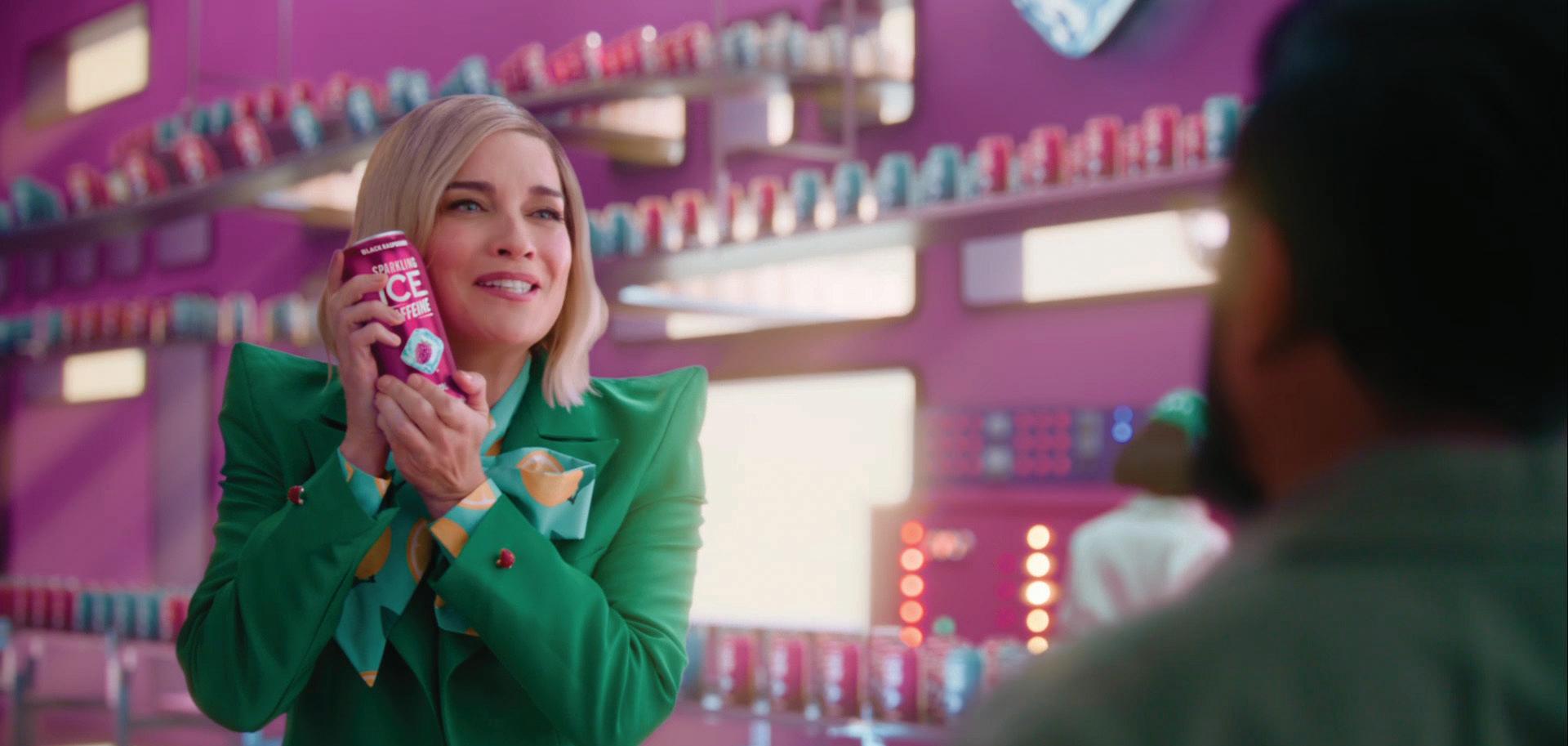
consumer touchpoints that resonate are sure to set consumers buzzing in 2025.
“We’re focused on listening and understanding our consumers so that we can create meaningful cultural connections,” said Rich DePencier, Chief Growth Officer at Talking Rain Beverage Company. “Last year we sent Sparkling Ice ‘To The Moon’ in Meghan Trainor’s music video, recreated the taste of the STARBURST original fruit chew candy in our signature zerosugar beverage, and became the official ‘sparkling refreshment’ of the Seattle Sounders FC. This year, there’s even more to explore in the Flavor Lab.”
The Anything But Subtle campaigns aim
to spark awareness, familiarity, trial and advocacy among Millennials and Gen-Z consumers. Last year’s campaign spiked unaided brand awareness, quadrupling the number of consumers who reported Sparkling Ice as a “top of mind” brand. Consumers responded, purchasing 14% more Sparkling Ice than they did the year before and strengthening the brand’s position at the top of the category.
Looking ahead, Sparkling Ice’s planned moves are bigger and bolder than ever. How does the team and its Chief Flavor Officer maintain their momentum? As Murphy says, “It’s just one fruit in front of the other.”
Hemp-derived THC beverage brand Wynk recently completed its most extensive Dry January campaign yet, called “Dry January Doesn’t Have to Be So Dry.” The campaign tapped into the rapidly growing movement of mindful drinking, amplified by a full year of hemp-derived THC beverages becoming widely available in the mainstream. It spotlighted Wynk’s zero-calorie, zero-sugar, alcohol-free, 1:1 ratio of THC to CBD beverages as a social, balanced way to participate in being more conscious about alcohol consumption over the course of the month.
“At Wynk, we see Dry January as an opportunity to recognize balance and choice without sacrificing the fun of socializing,” said Angus Rittenburg, CEO & Co-Founder of Wynk. “Our mission is to offer a refreshing, alcohol-free alternative that delivers great taste, meaningful connection, and an uplifting buzz.”
The “Dry January Doesn’t Have To Be So Dry” campaign comprised a mix of marketing channels—including sweepstakes, outof-home advertising, influencer partnerships, digital media ads, promotional discounts, and retail collaborations—reinforcing Wynk’s commitment to meeting consumers wherever they are.
• The campaign featured out-of-home advertising like eye-catching billboards, car share wraps, and digital out-of-home displays in key markets including Atlanta, GA, Chicago, IL, Daytona Beach, FL, Jersey City, NJ, and Stamford, CT.
• Retail partnerships included Co-branding with Total Wine & More and Binny’s, which included sampling and retail-driving OOH advertising.
• Wynk’s Dry January Sweepstakes offered a chance to win a memorable getaway to kick off the new year.
Dymatize, a sports nutrition brand, has expanded its roster of all-star athletes with the addition of tennis professional and Bronze Olympian Tommy Paul.
Paul joins the Dymatize Squad, a group of elite athletes and fitness professionals who fuel their training and recovery with Dymatize’s portfolio of scientifically backed products. Squad members give fans an inside look at what it takes to pursue strength-training and fitness at the highest level through exclusive content on social media.
“I’ve been working extremely hard to level up my game, and when it comes to nutrition, I prioritize using high-quality brands that sweat the details. If I’m all-in, I need products that are all-in,” said Paul. “That’s why I am teaming up with Dymatize; the brand is relentless about their formulas and helping athletes recover from intense training and ultimately, perform at their best.”
Dymatize is also partnering with Tommy’s trainer, Franco Herrero and the FRWD Gym. Herrero plays a key role in determining Tommy’s nutrition and is a champion of the Dymatize portfolio. In particular, Dymatize ISO100 – which contains hydrolyzed whey protein isolate and is designed for faster absorption and muscle recovery for gym-goers and athletes alike who strive to be at the top of their game. ISO100 will be available in the FRWD Gym – a strength and mobility training gym owned by Franco – for use by all athletes.
The partnership is an extension of the Dymatize “Formulated for More” campaign that launched in January of 2024 featuring Dymatize Squad member and all pro running back, Christian McCaffrey. Dymatize will amplify the two-year partnership with Paul and Franco through owned, earned and paid support.
